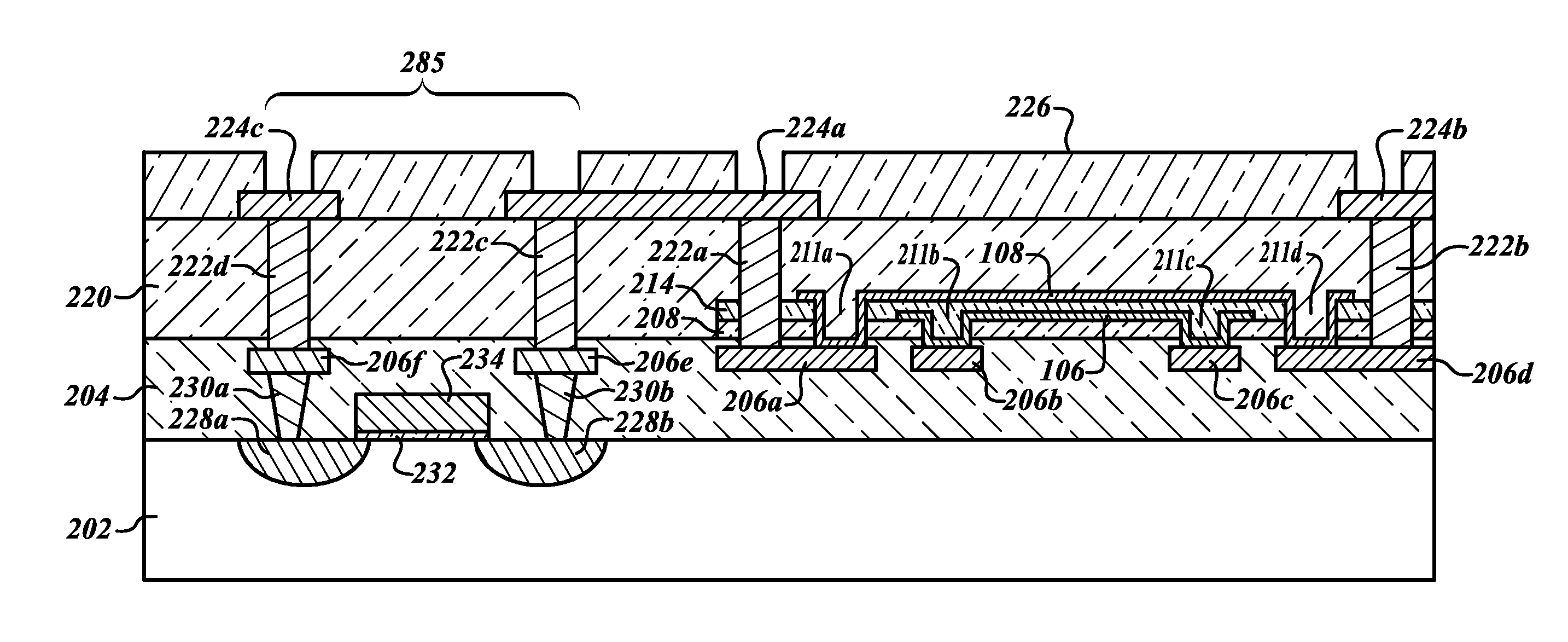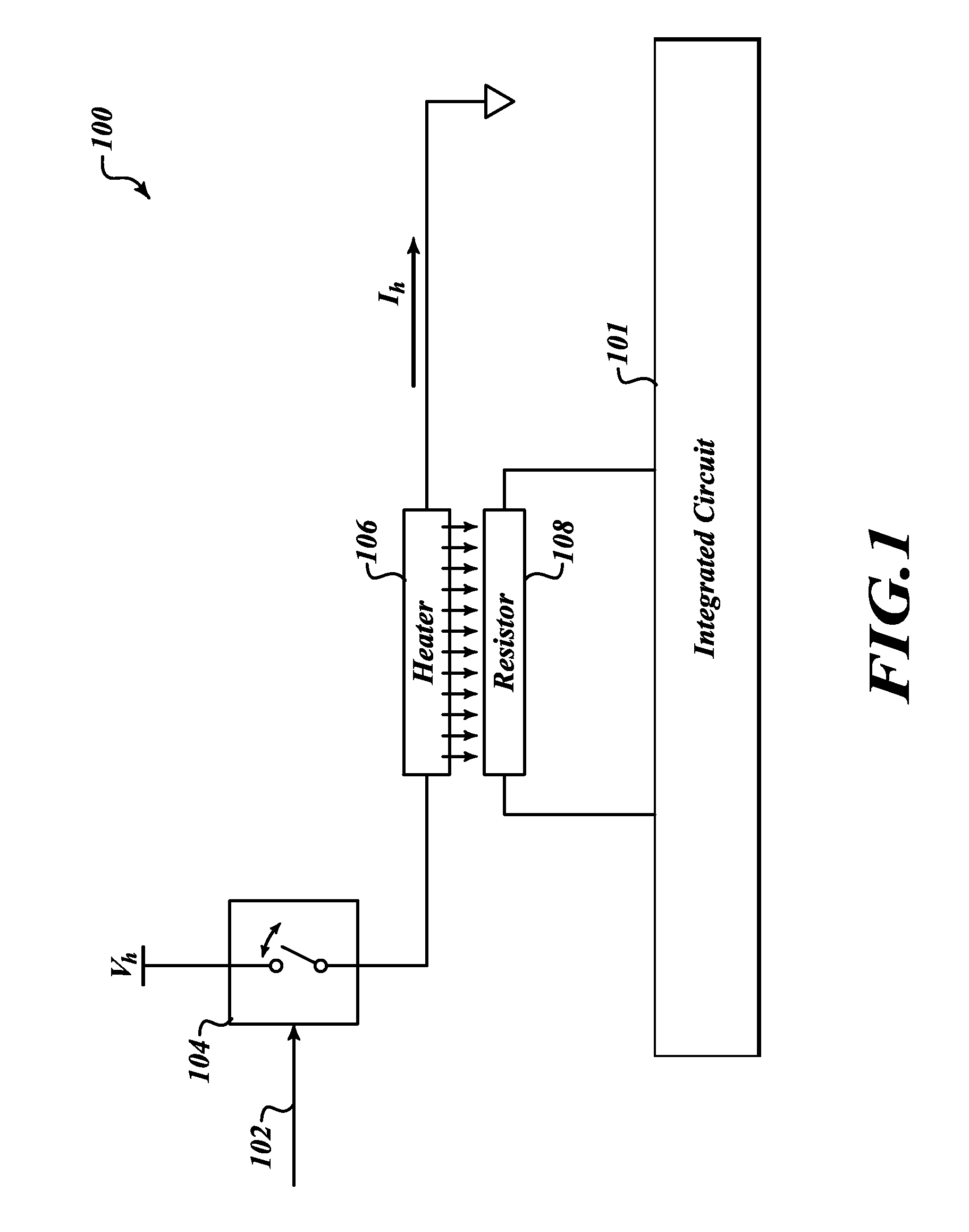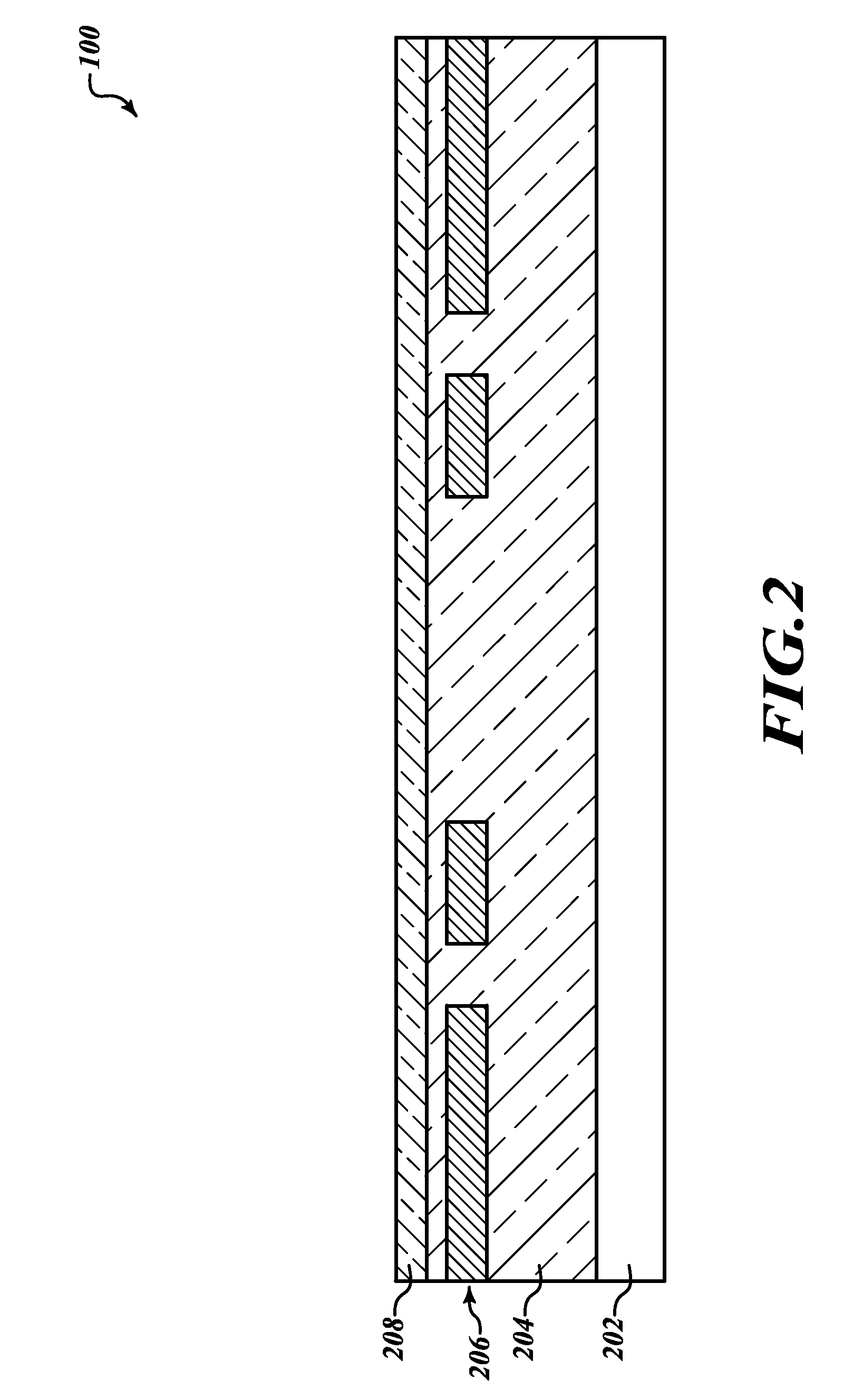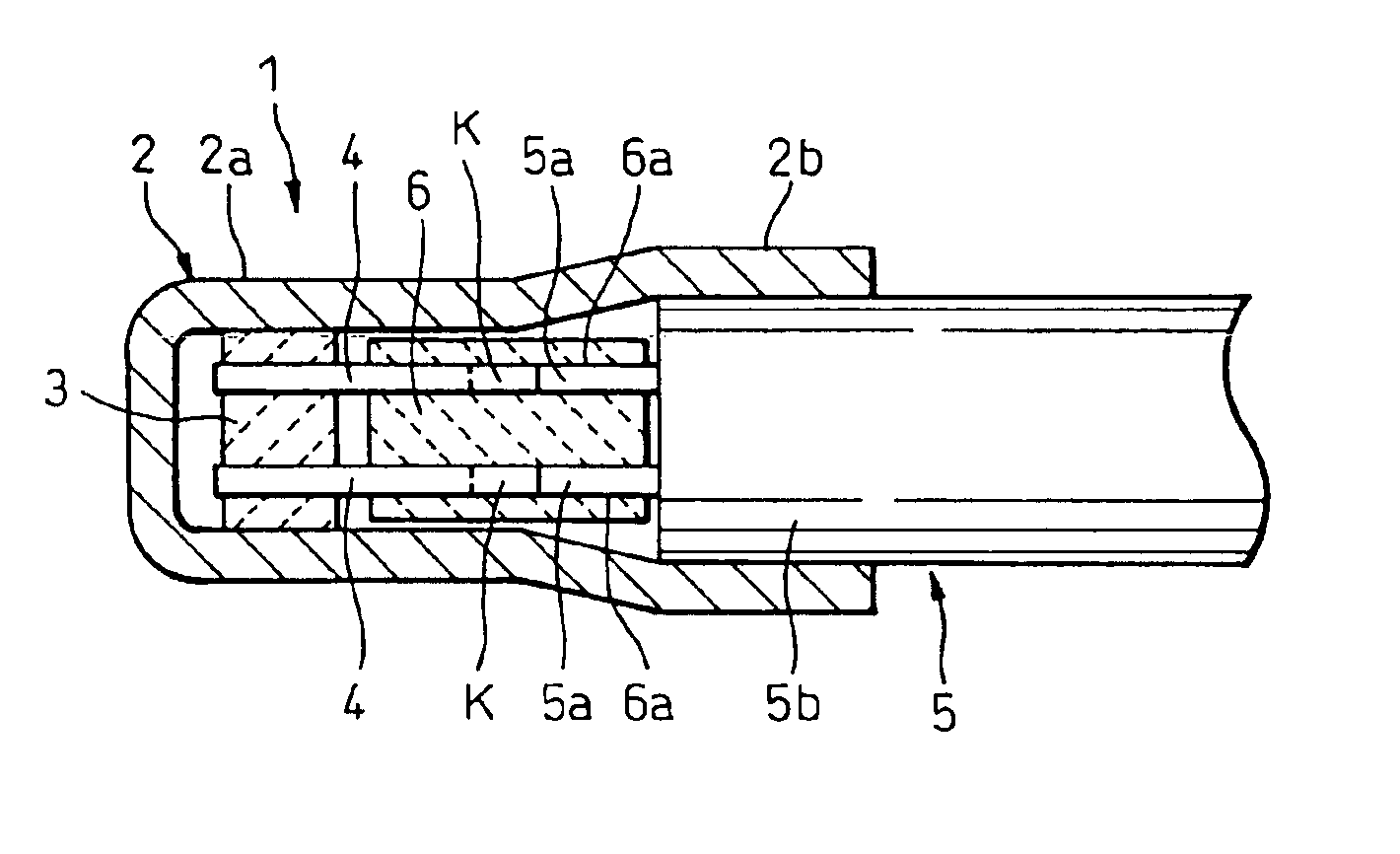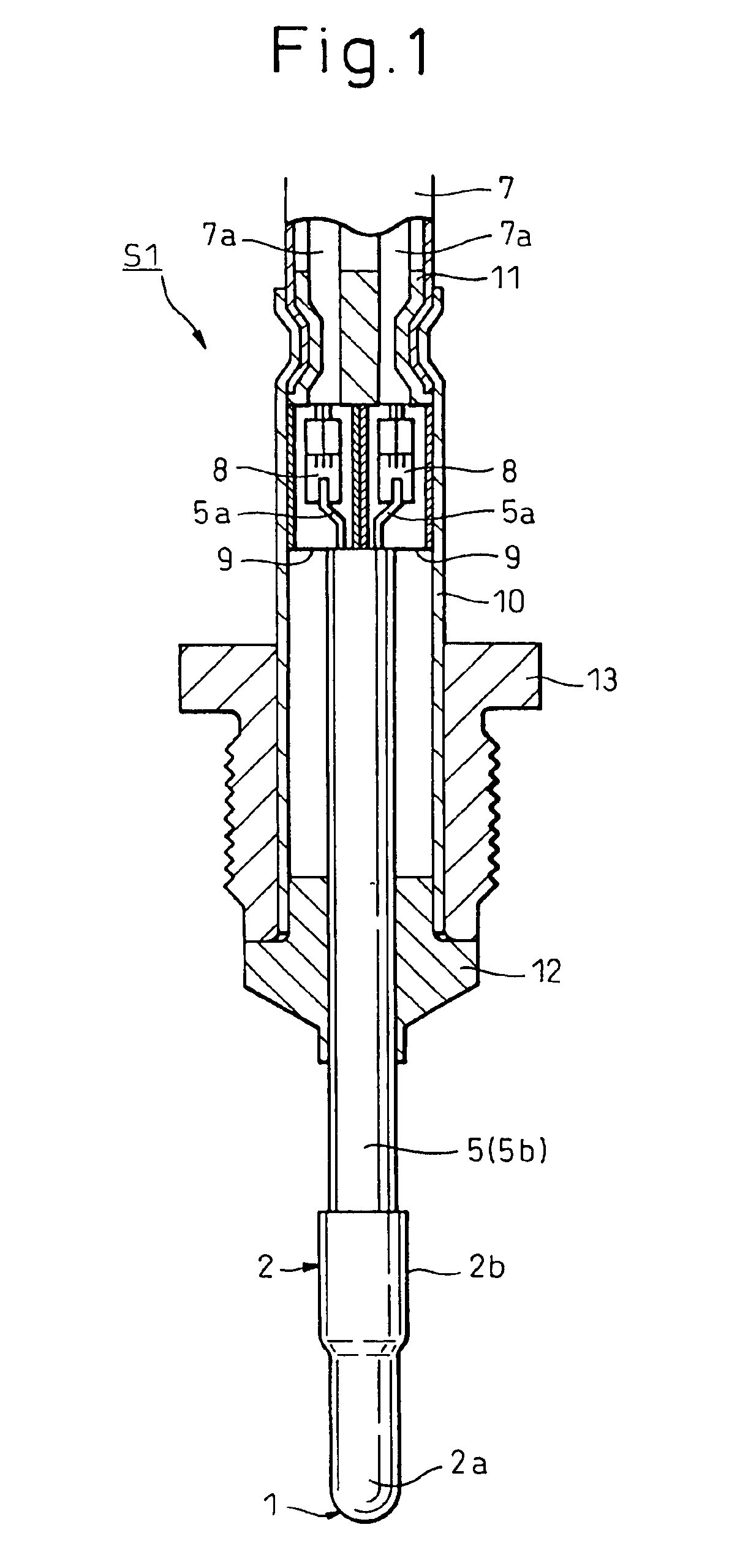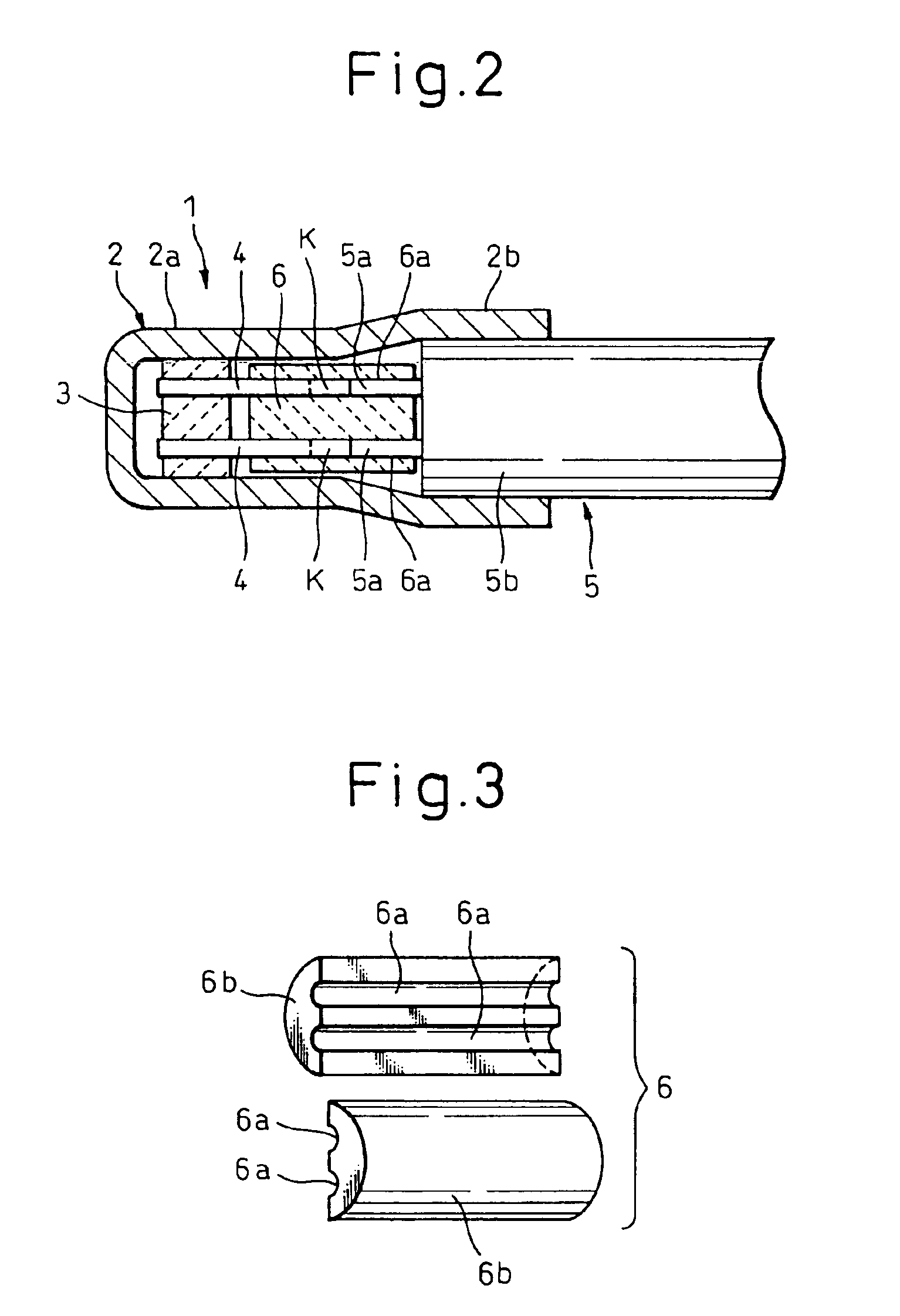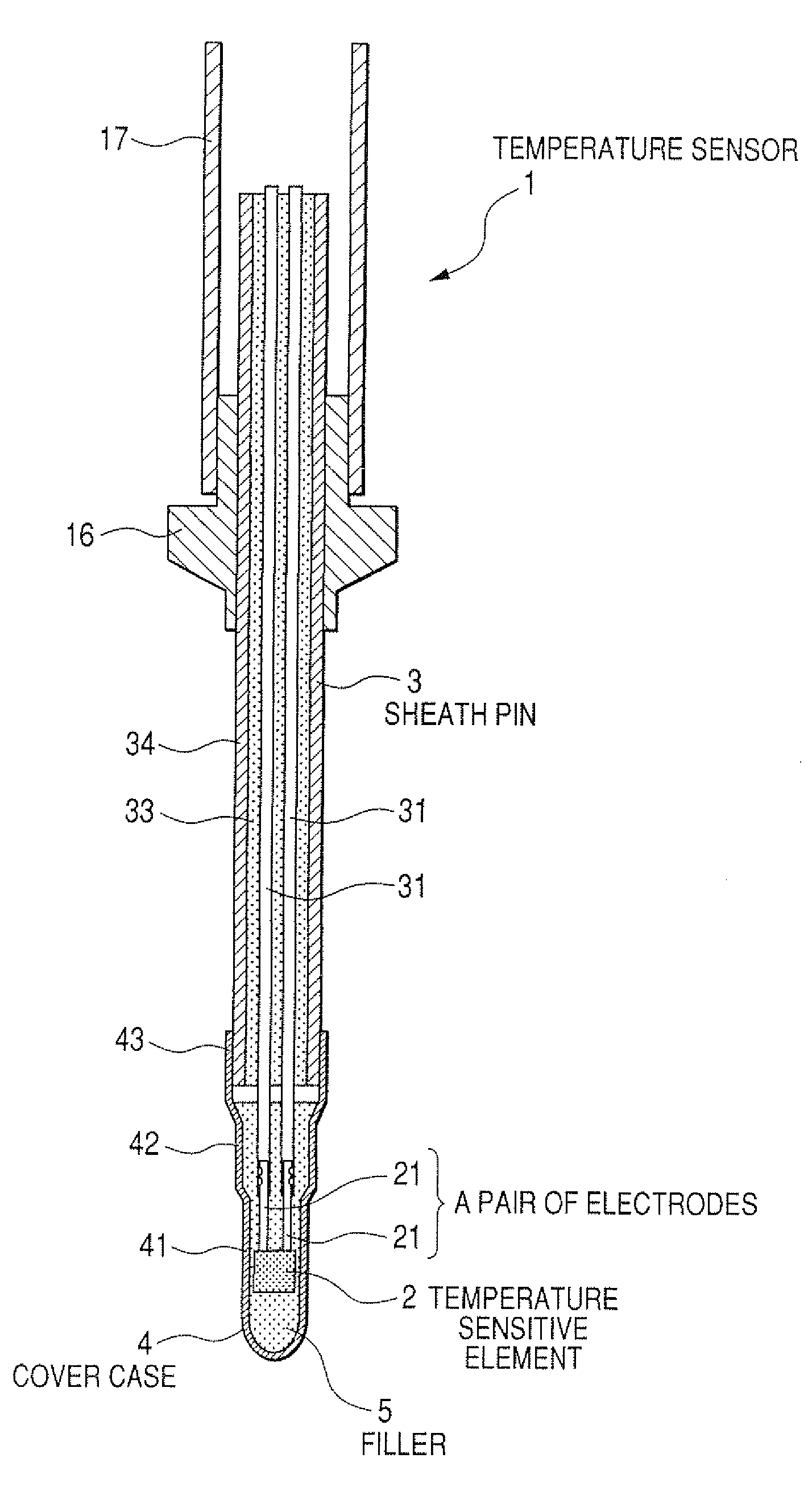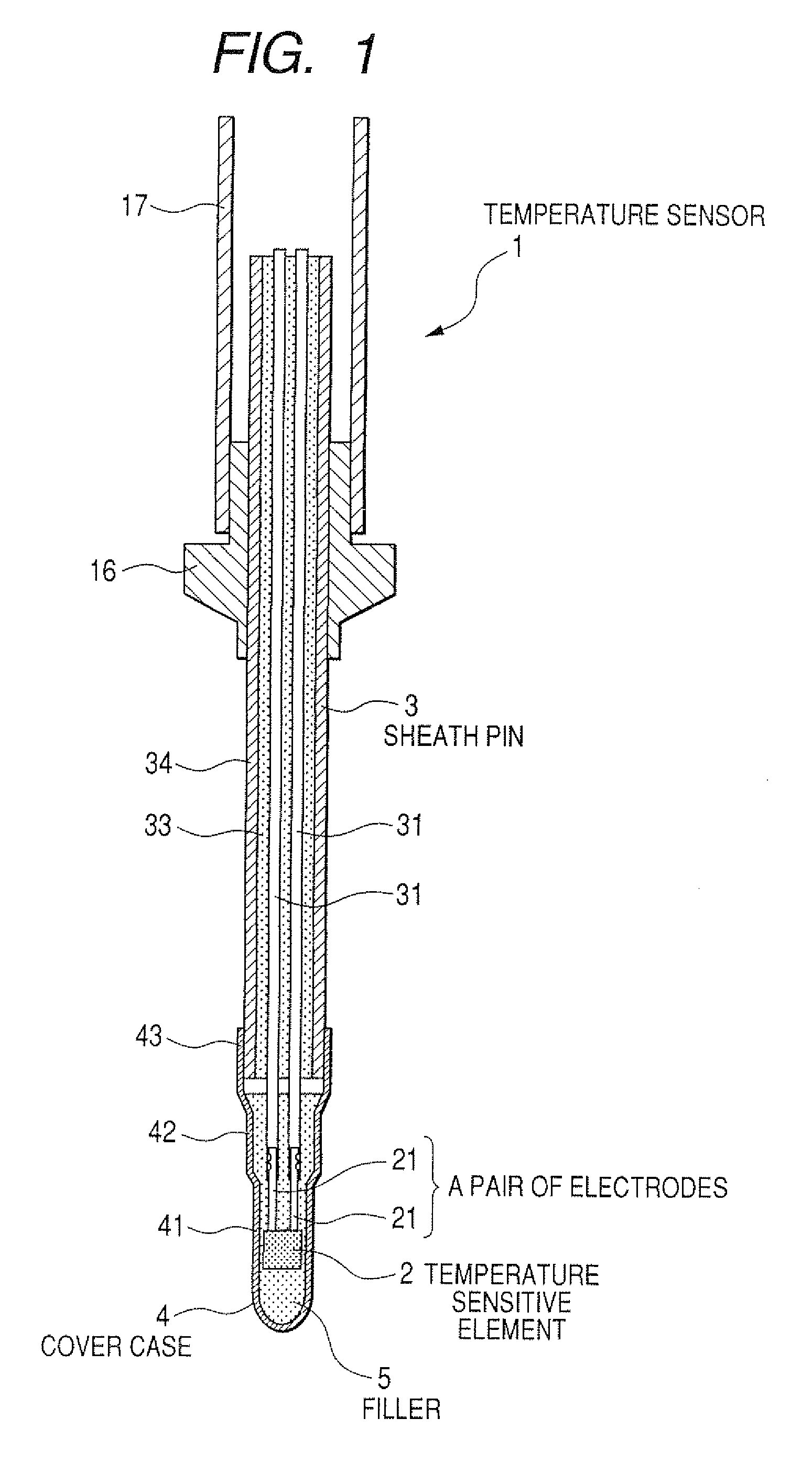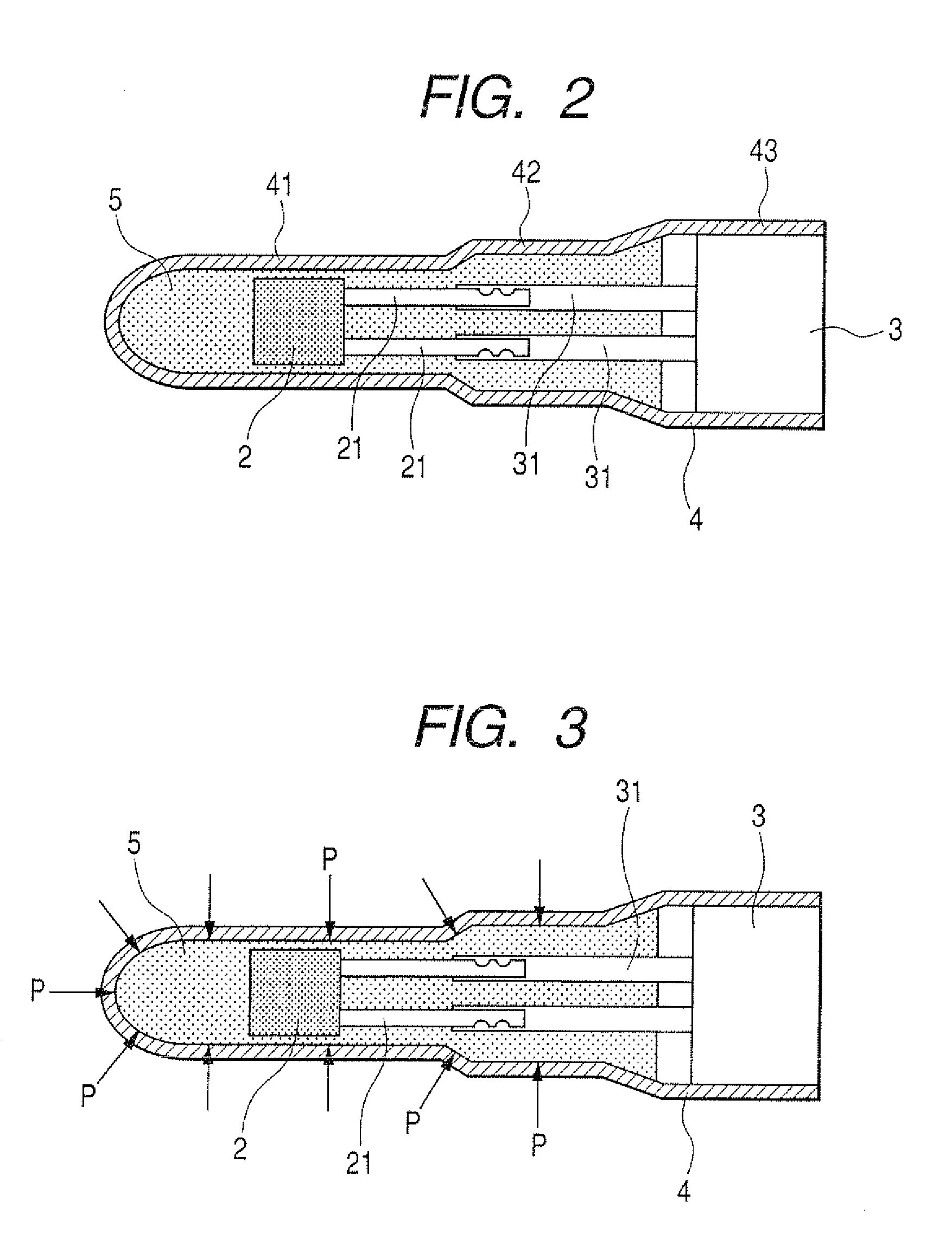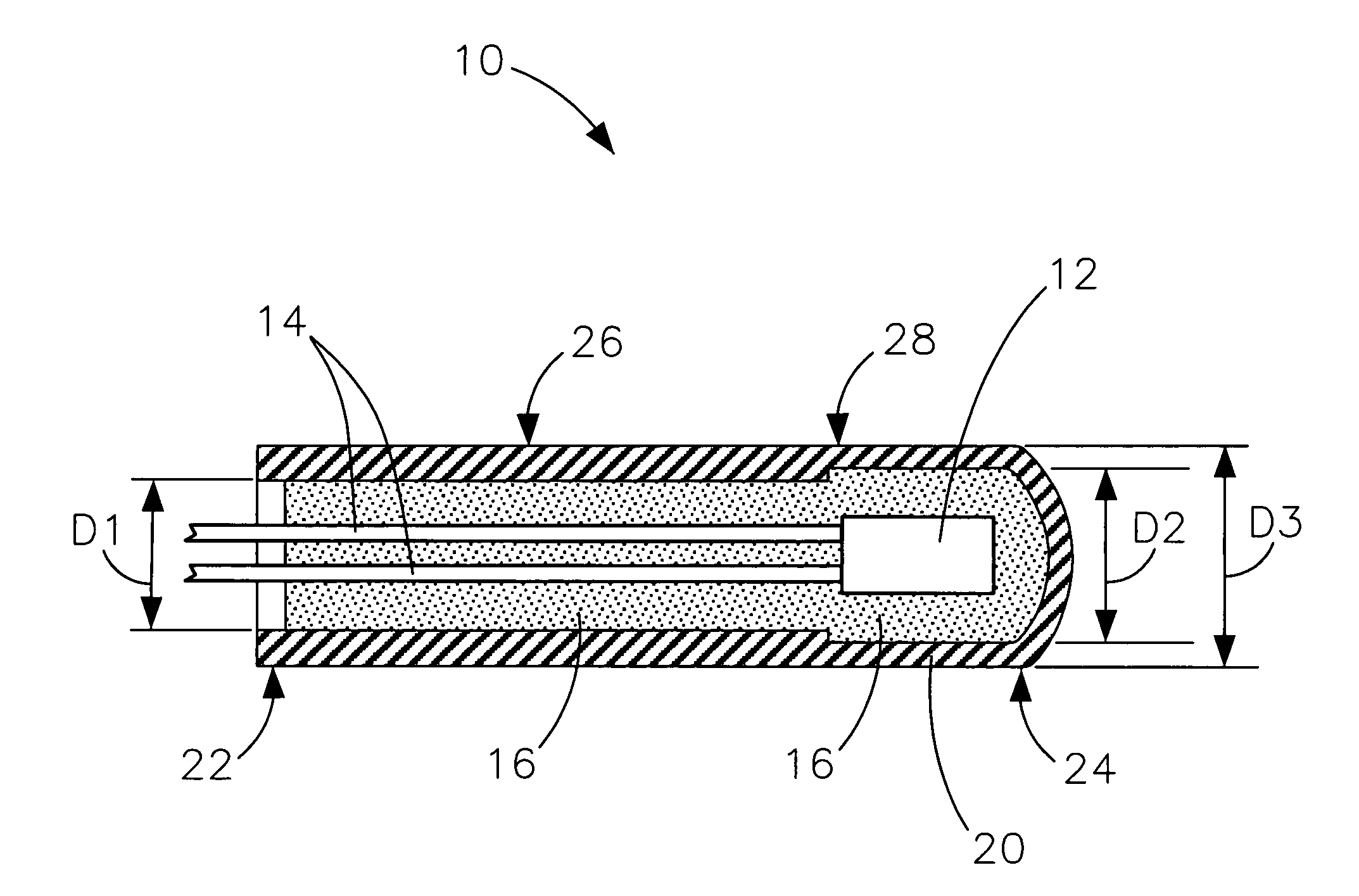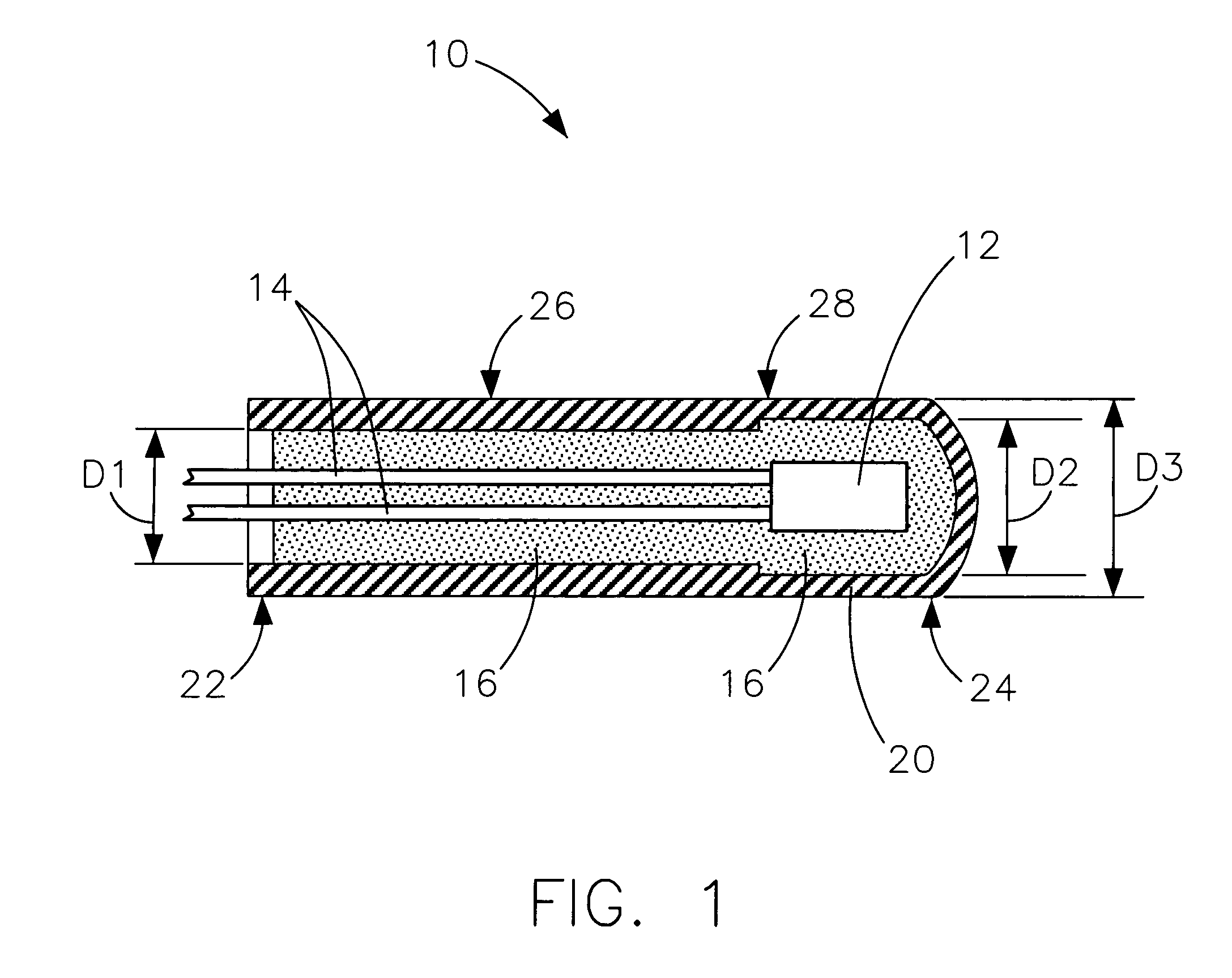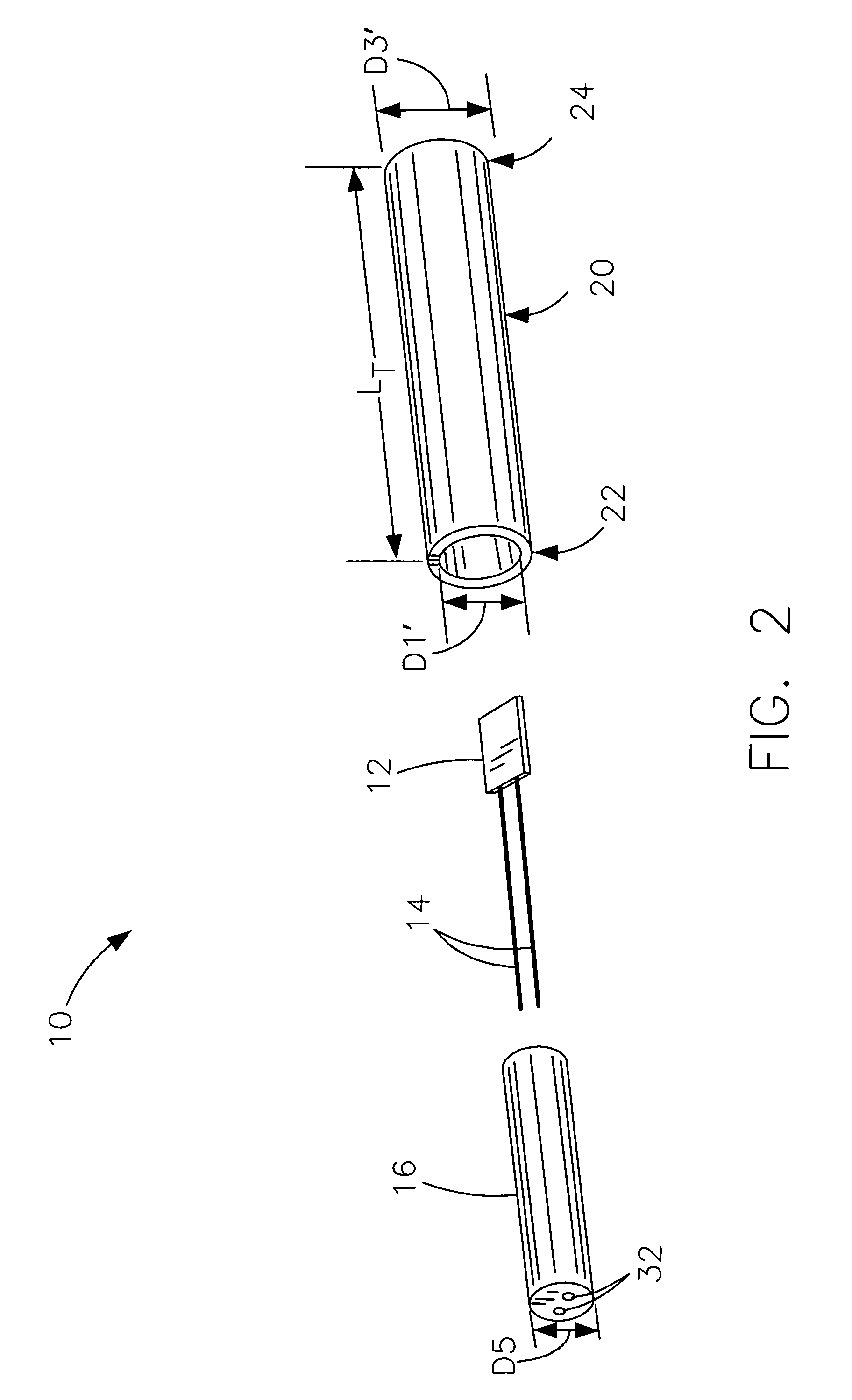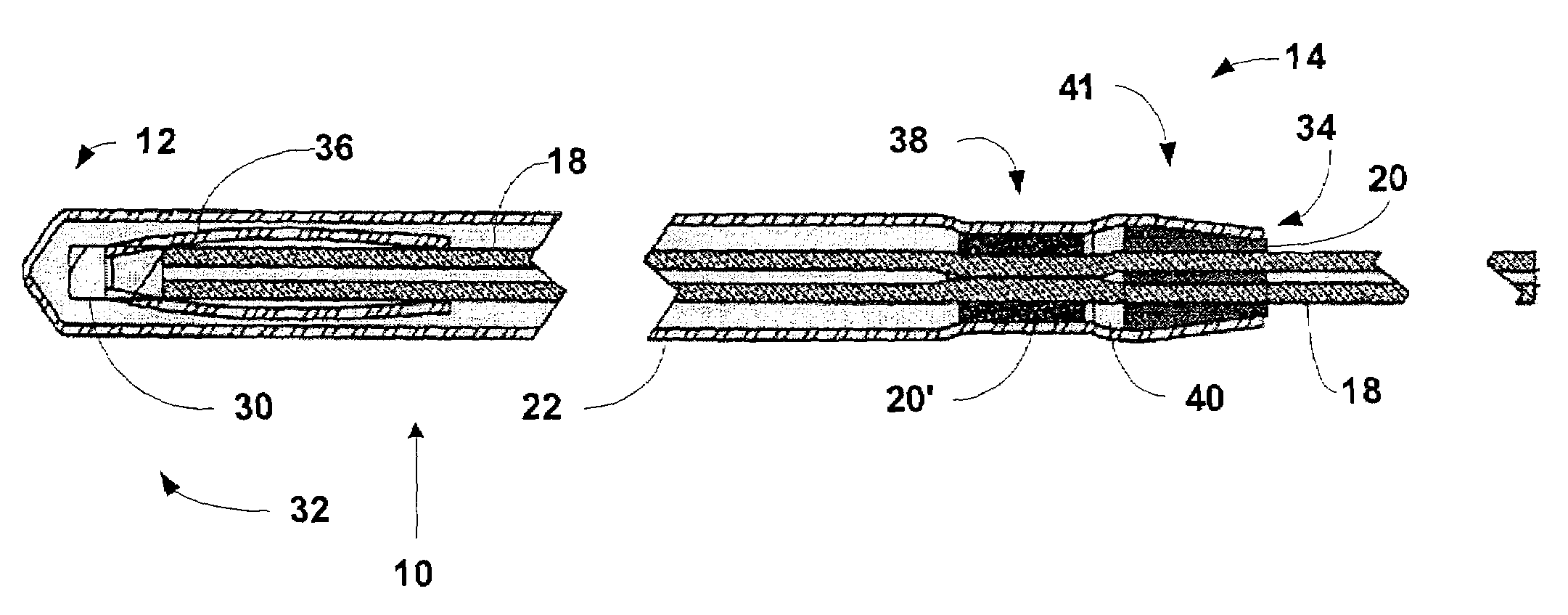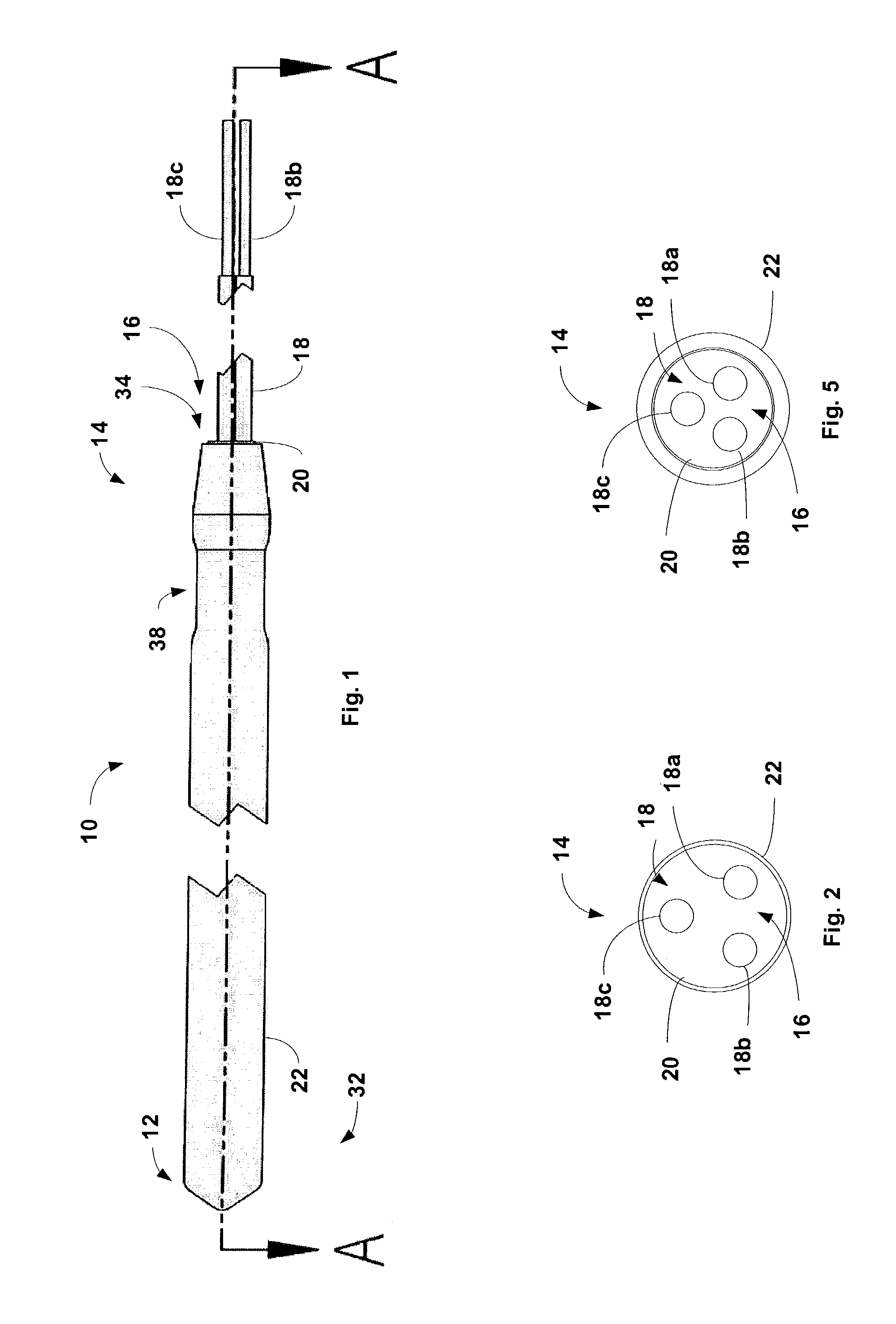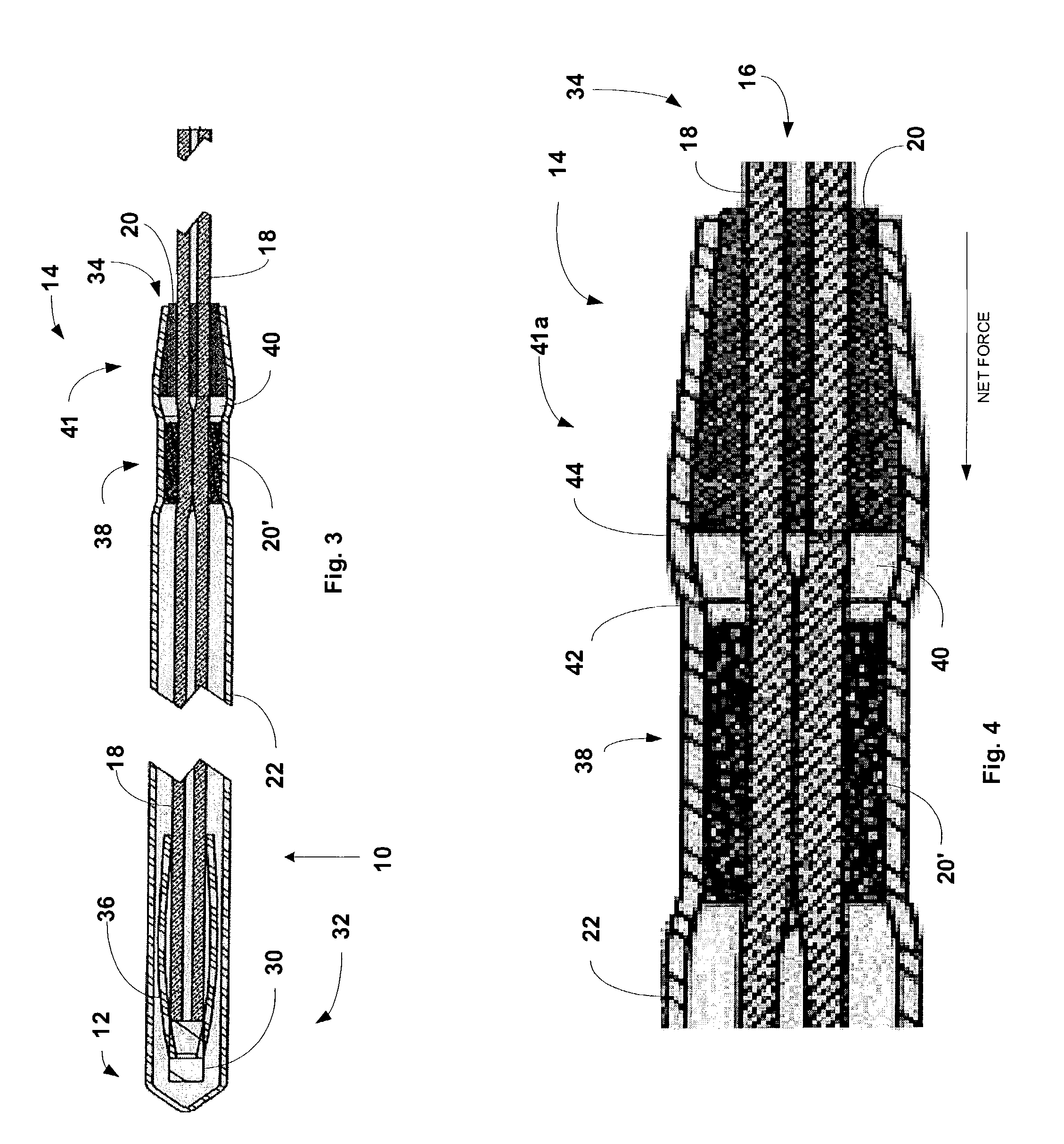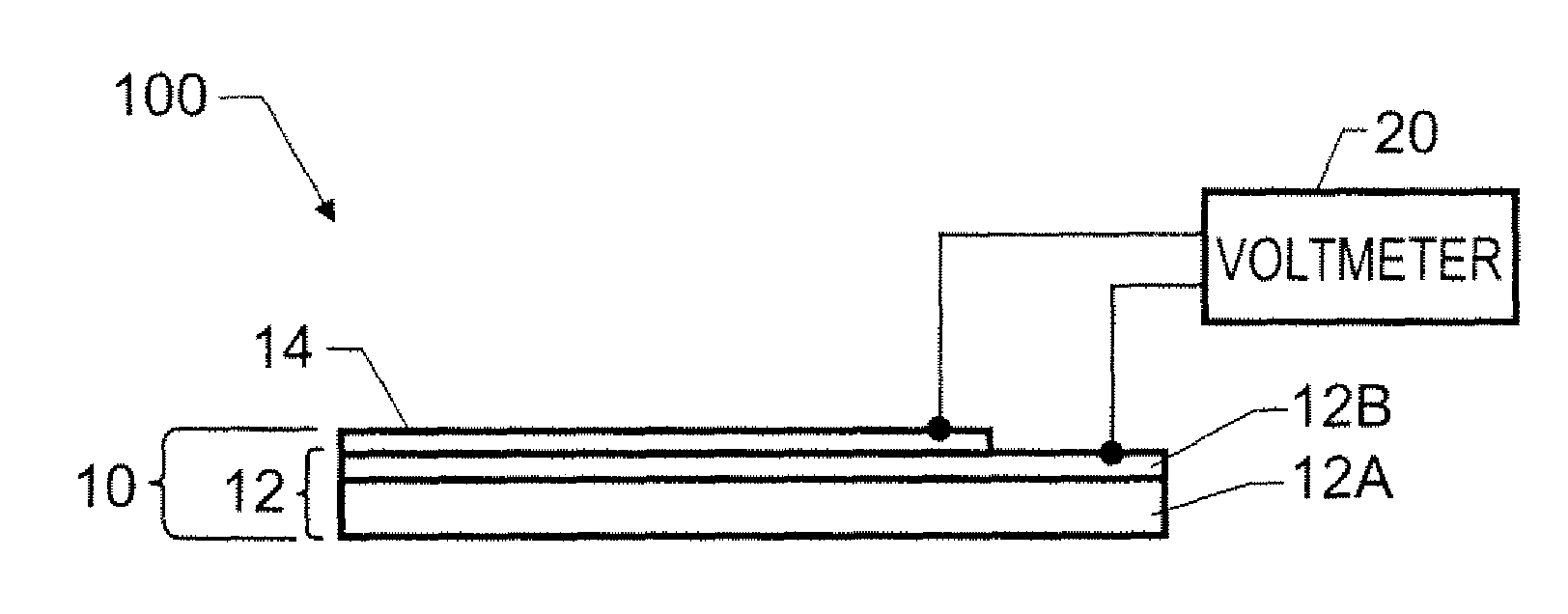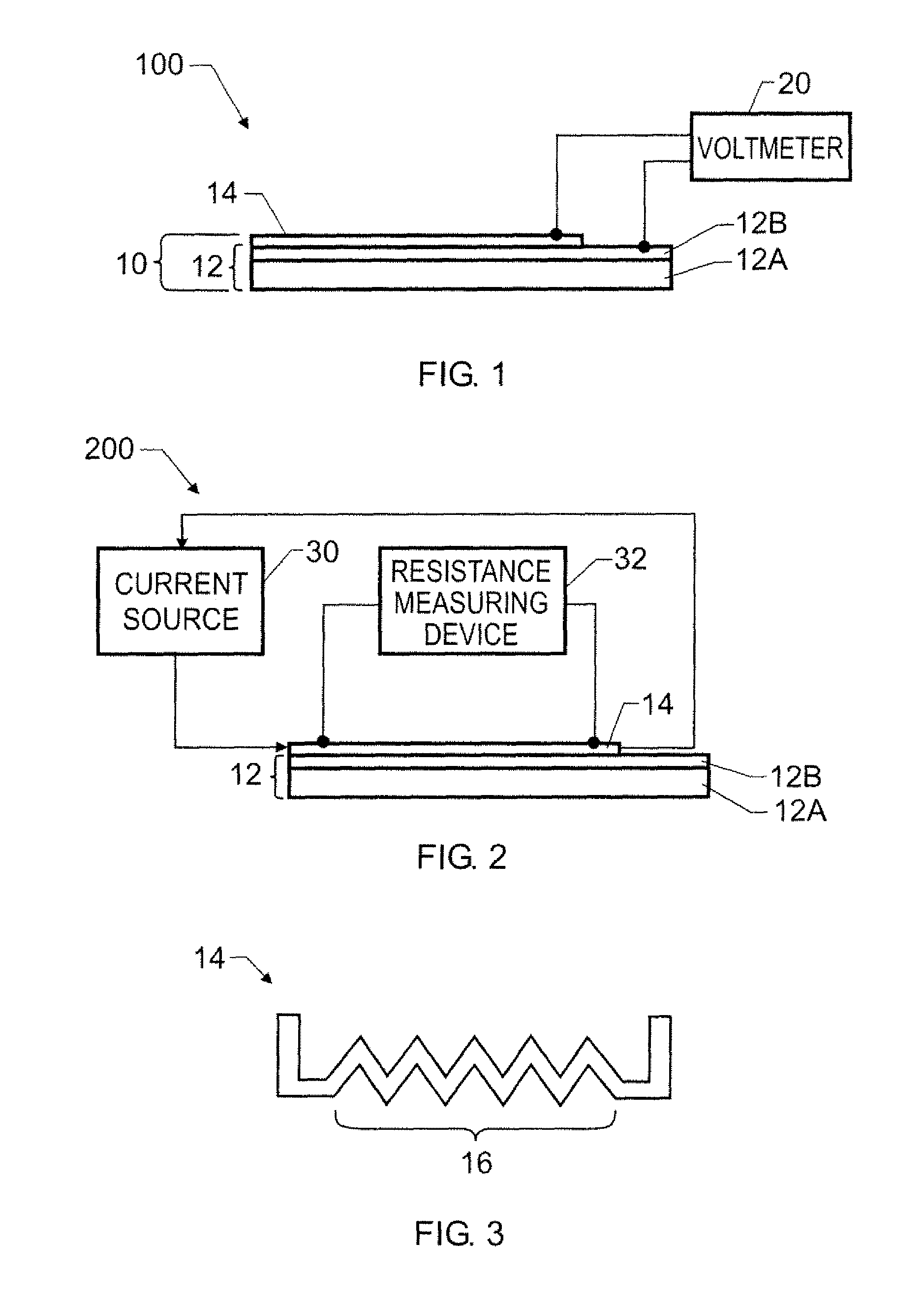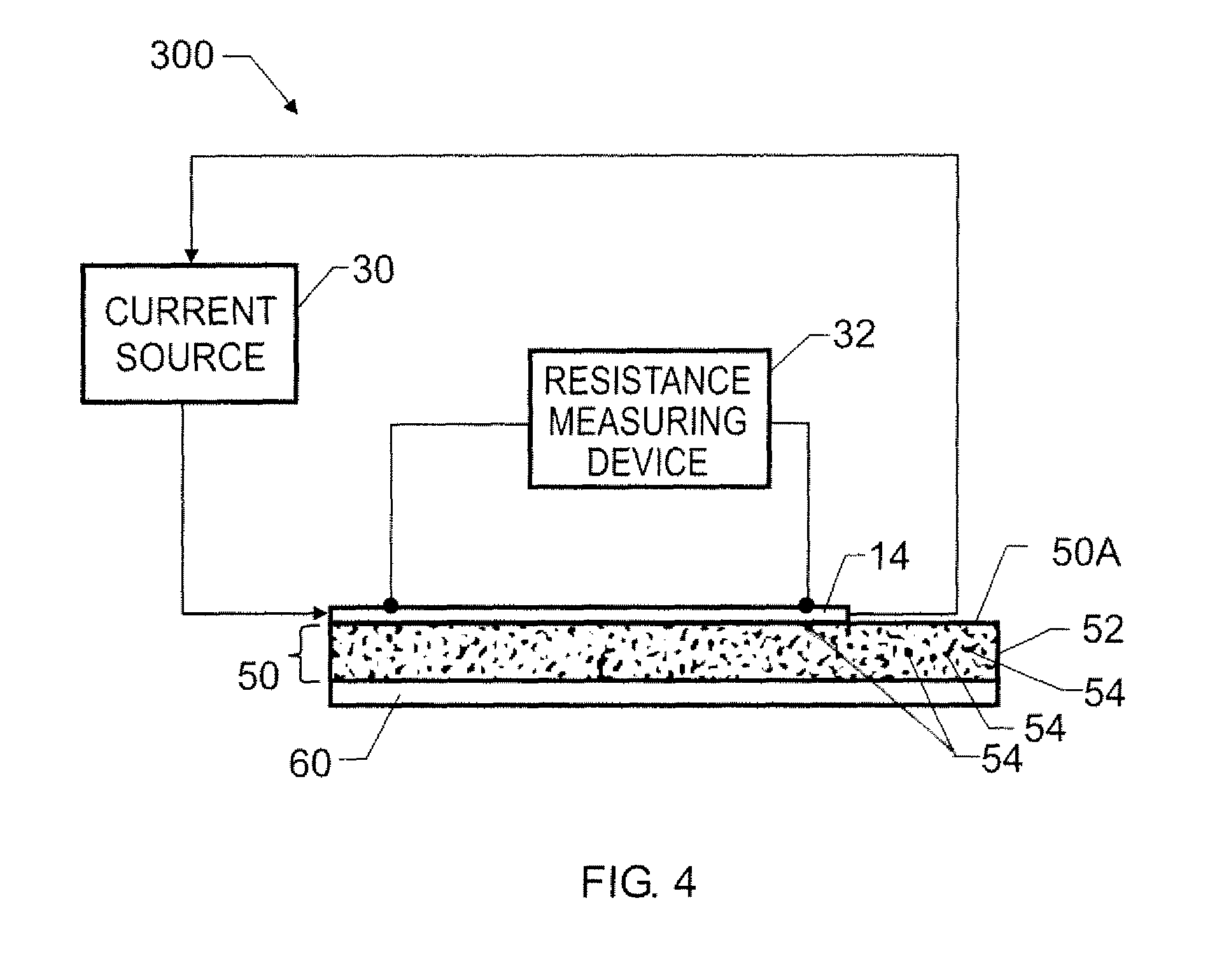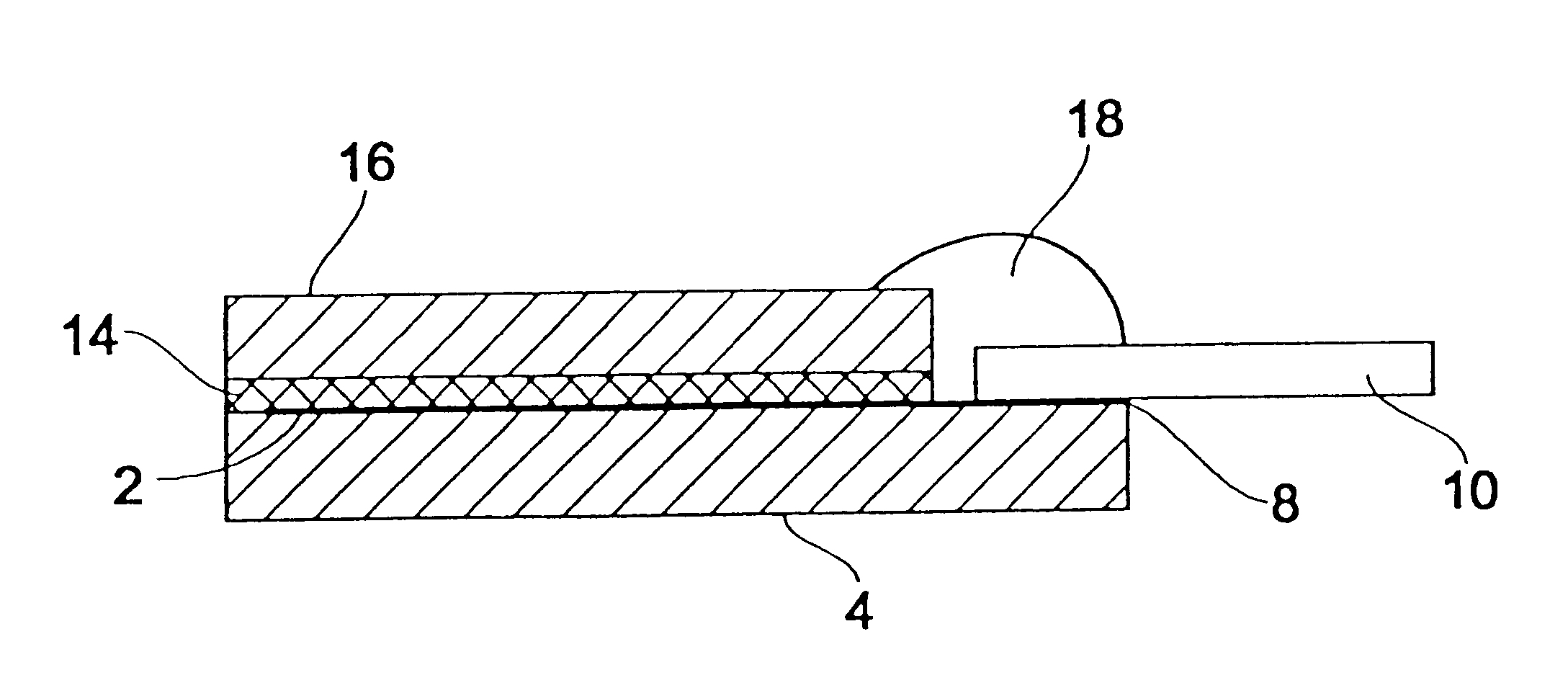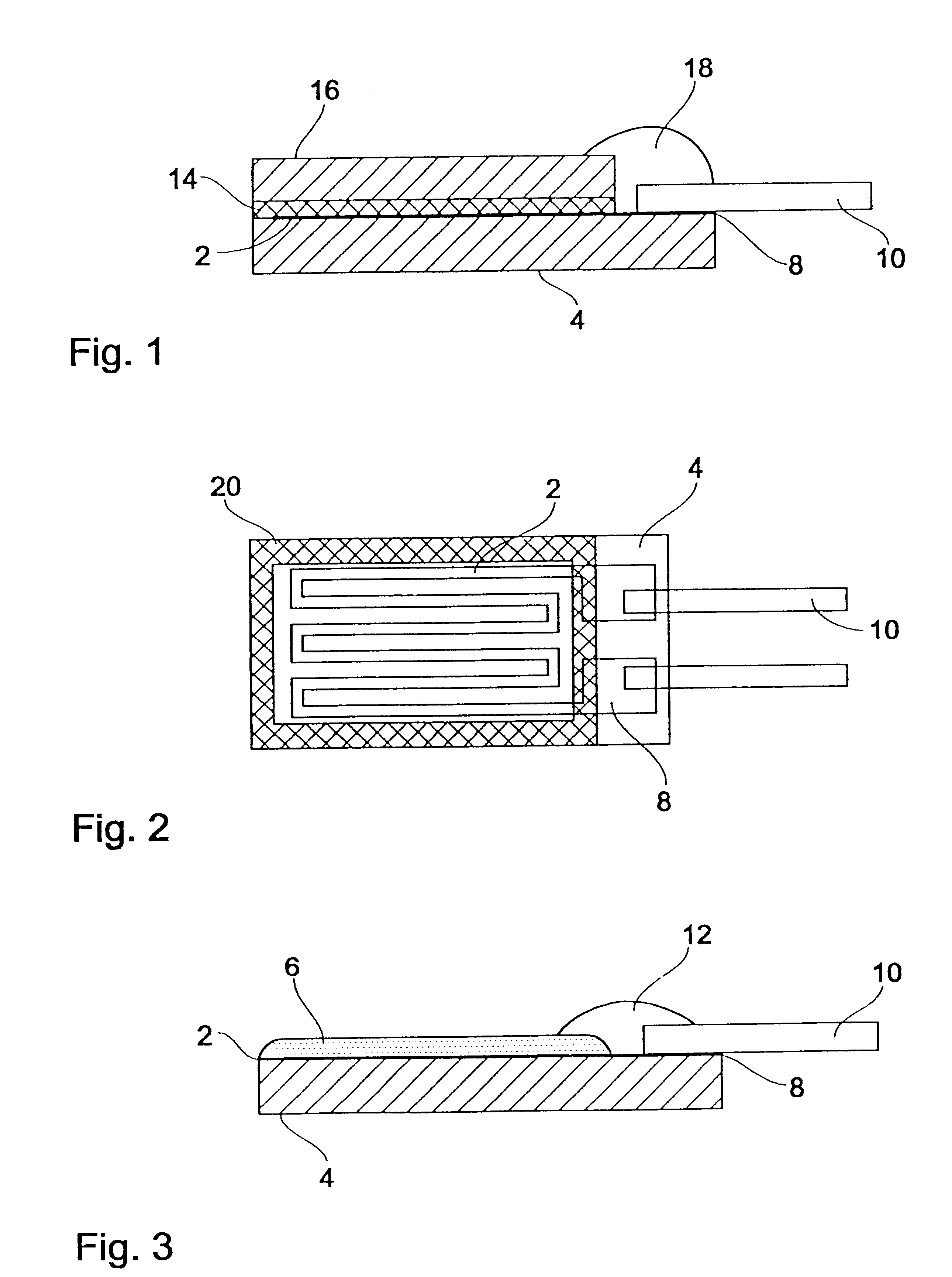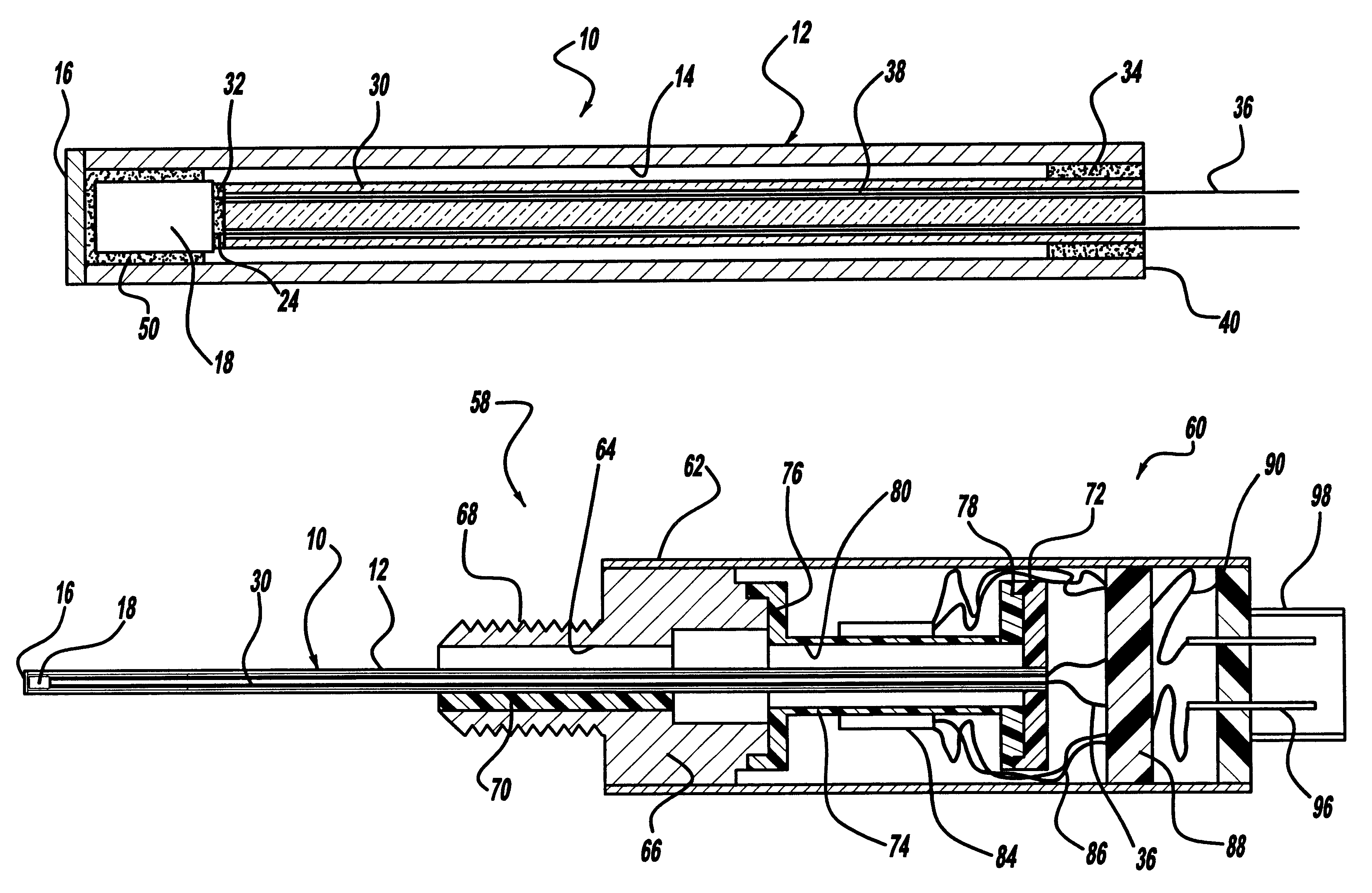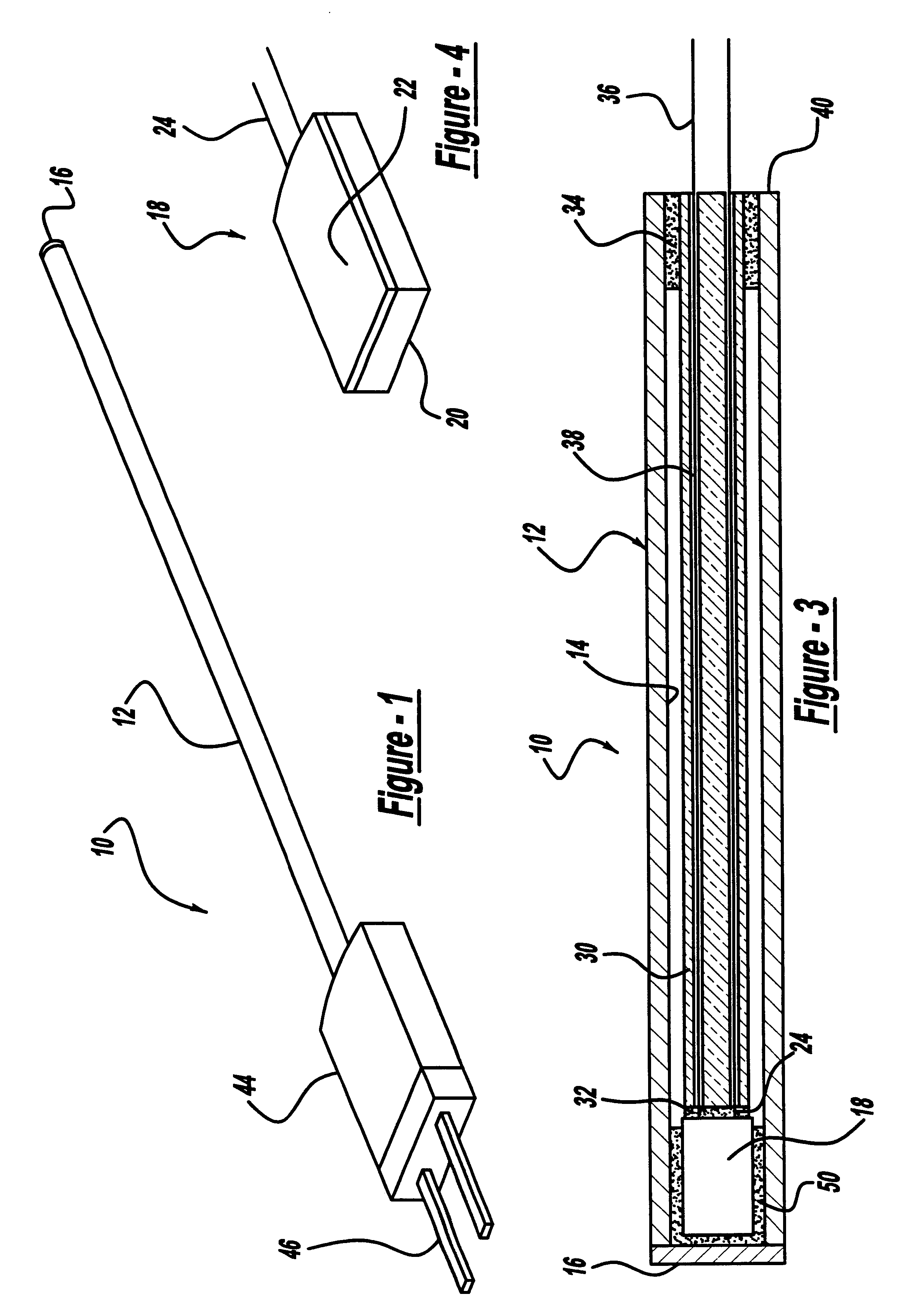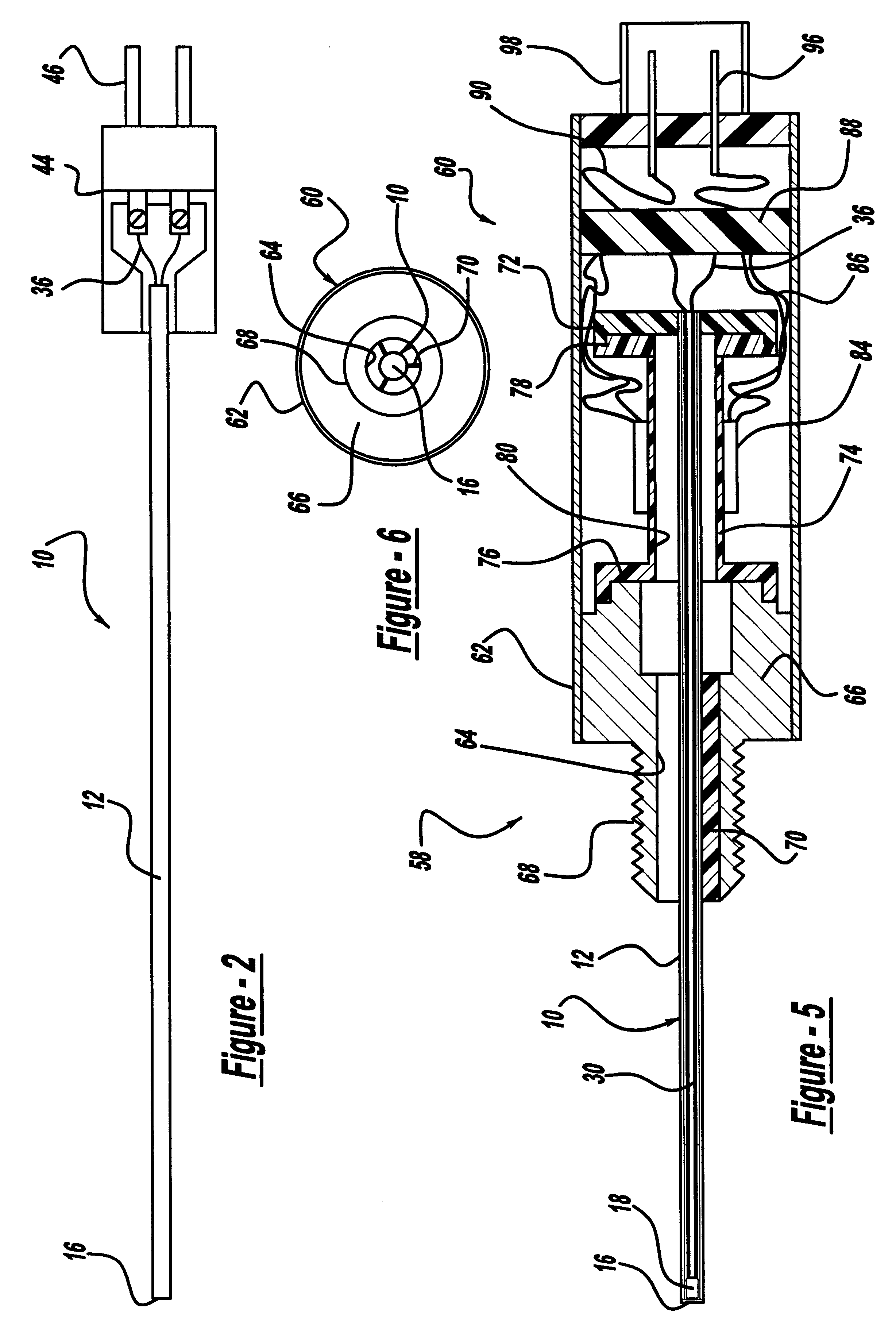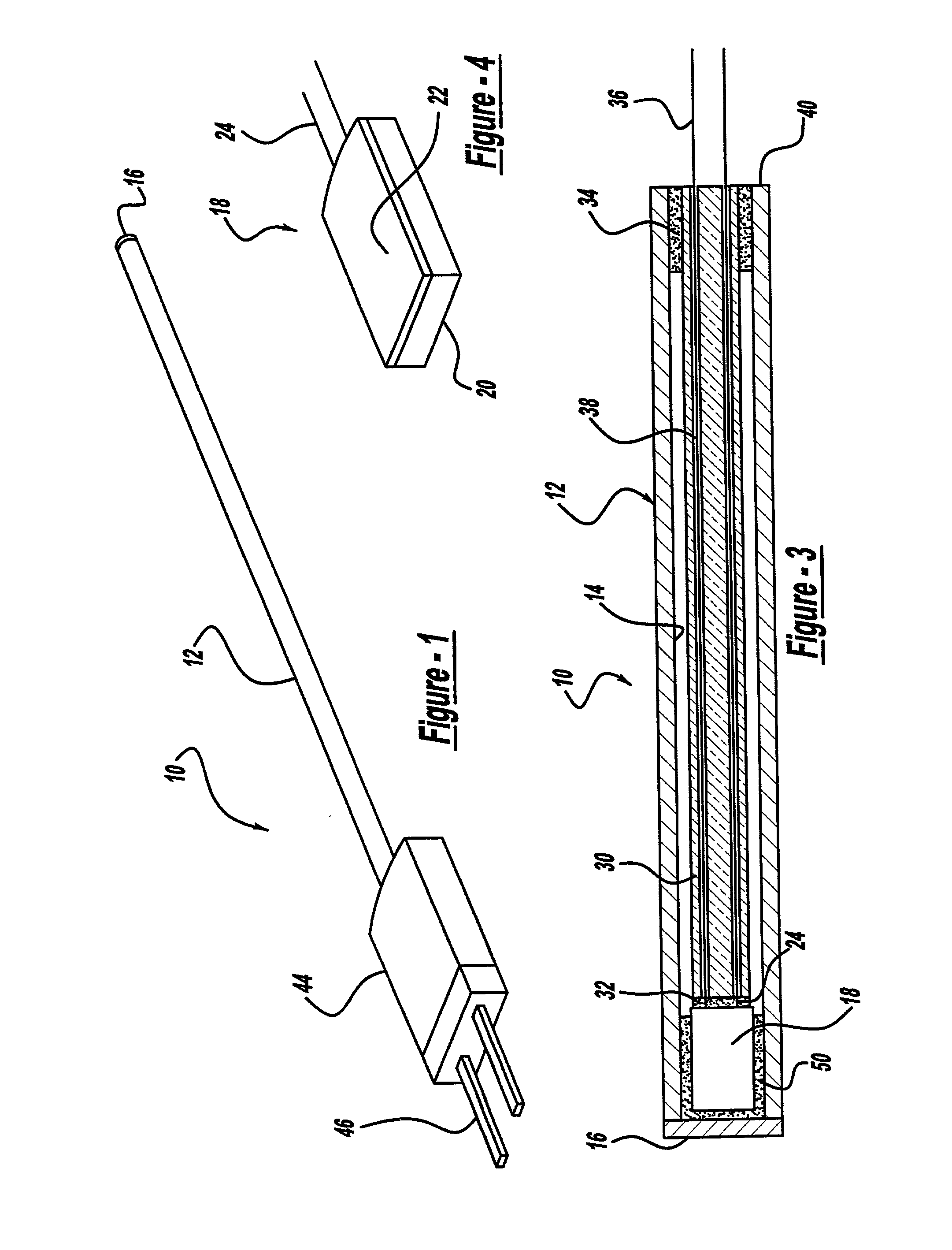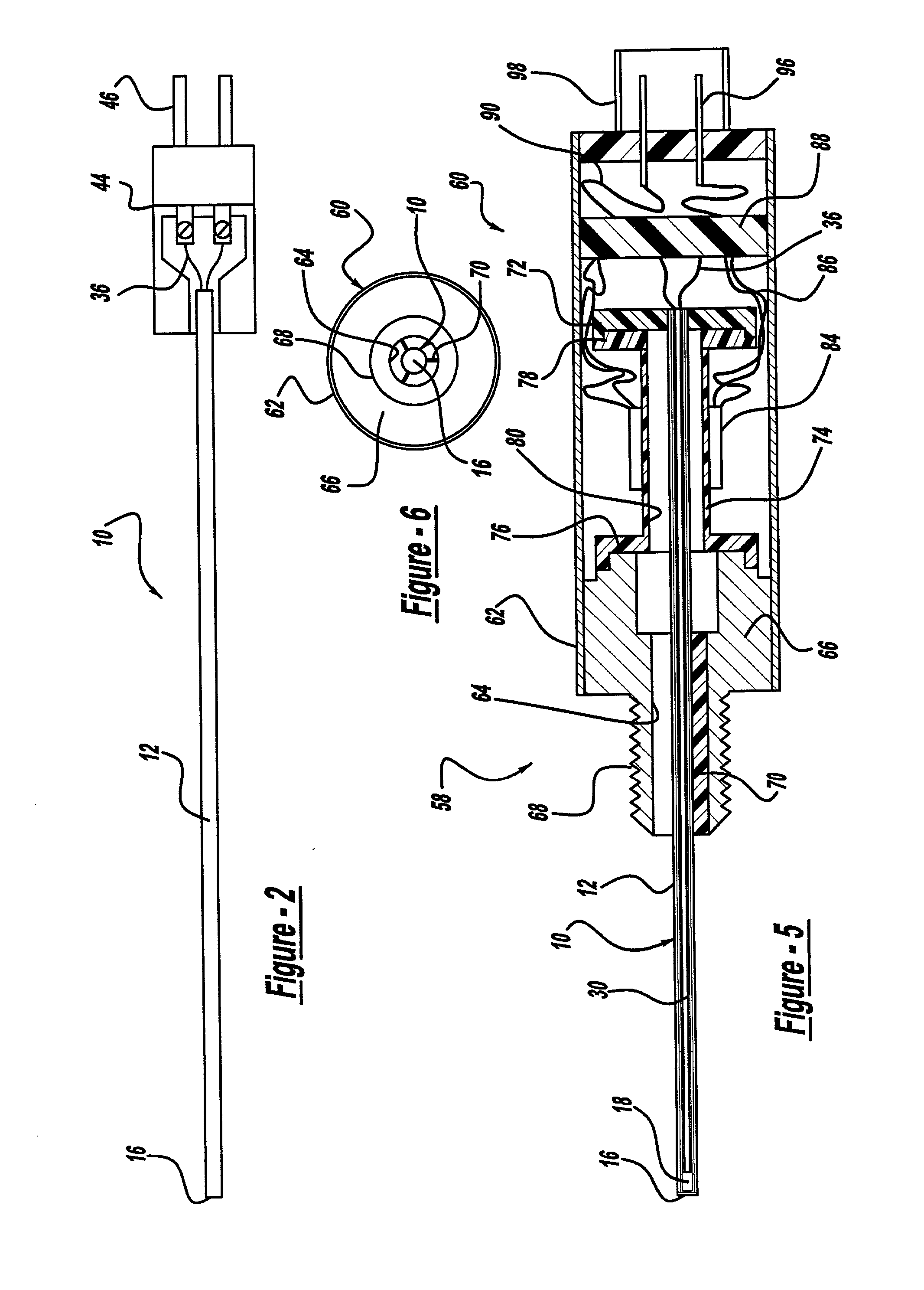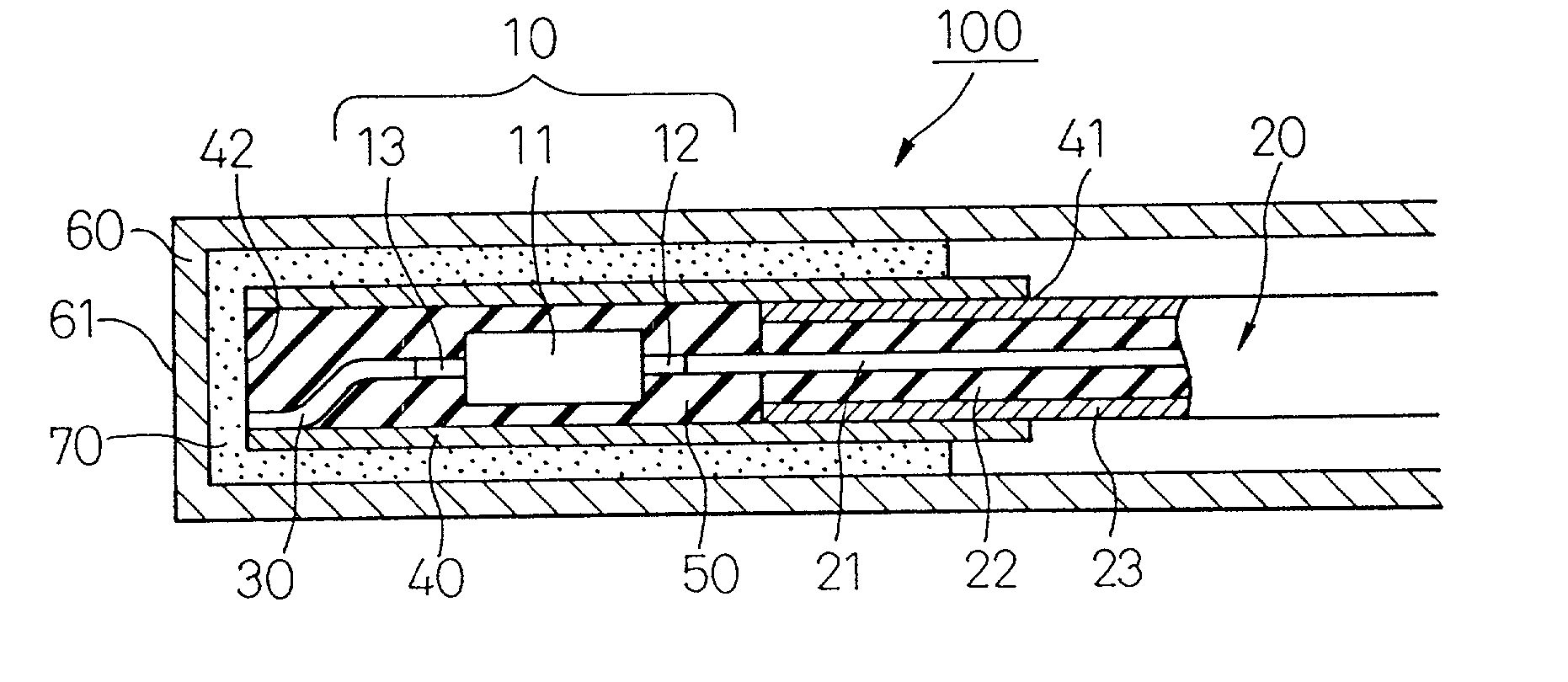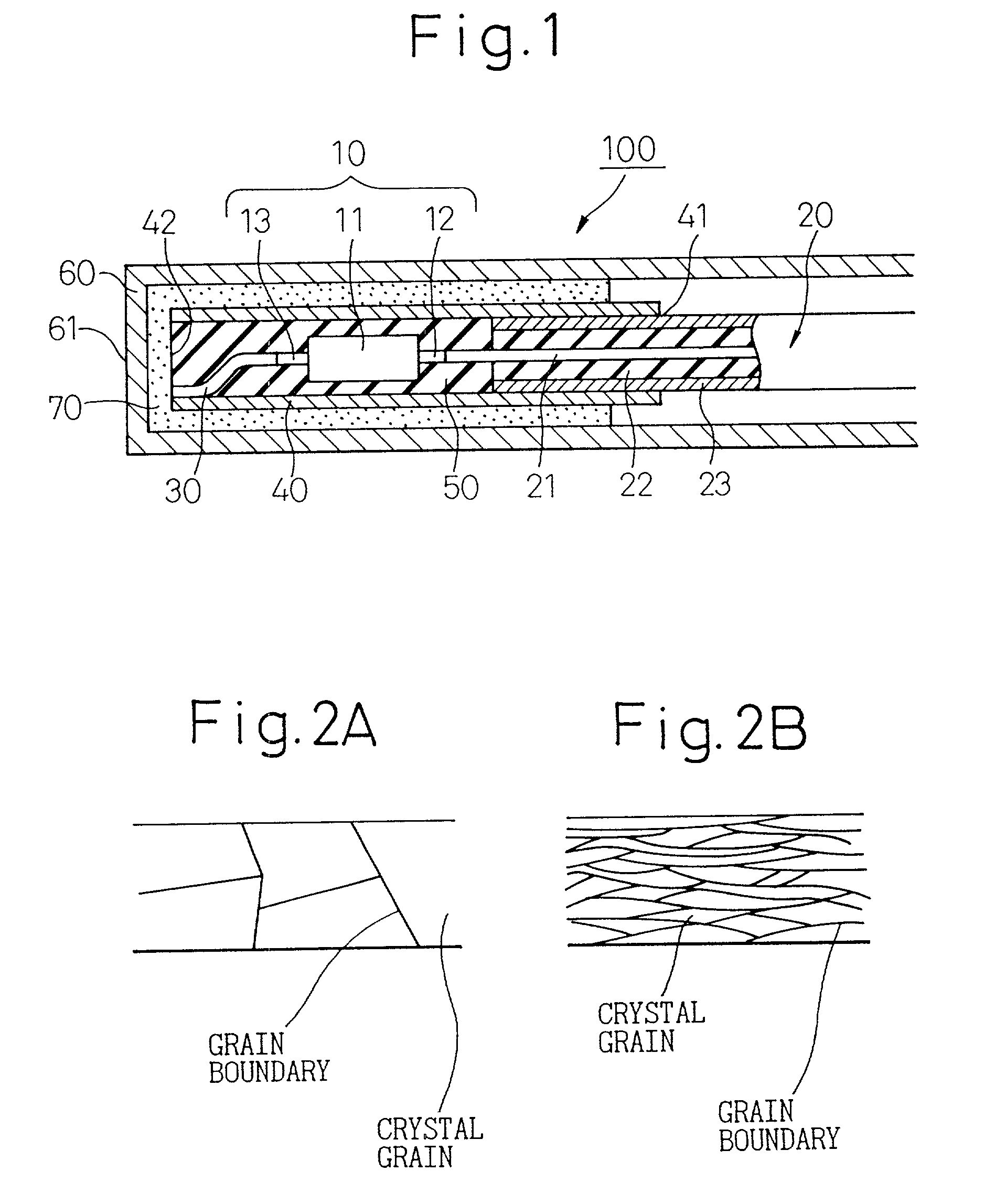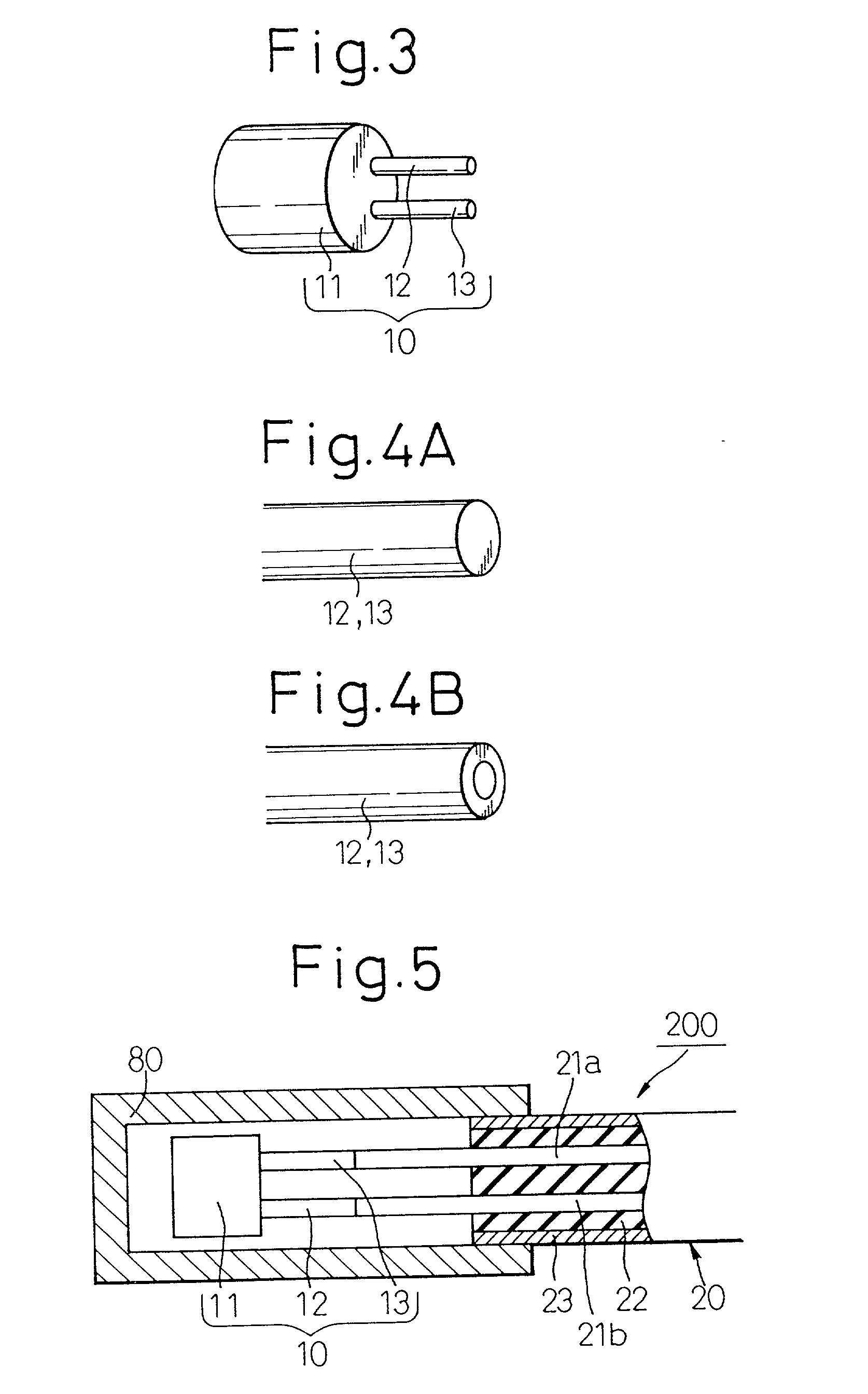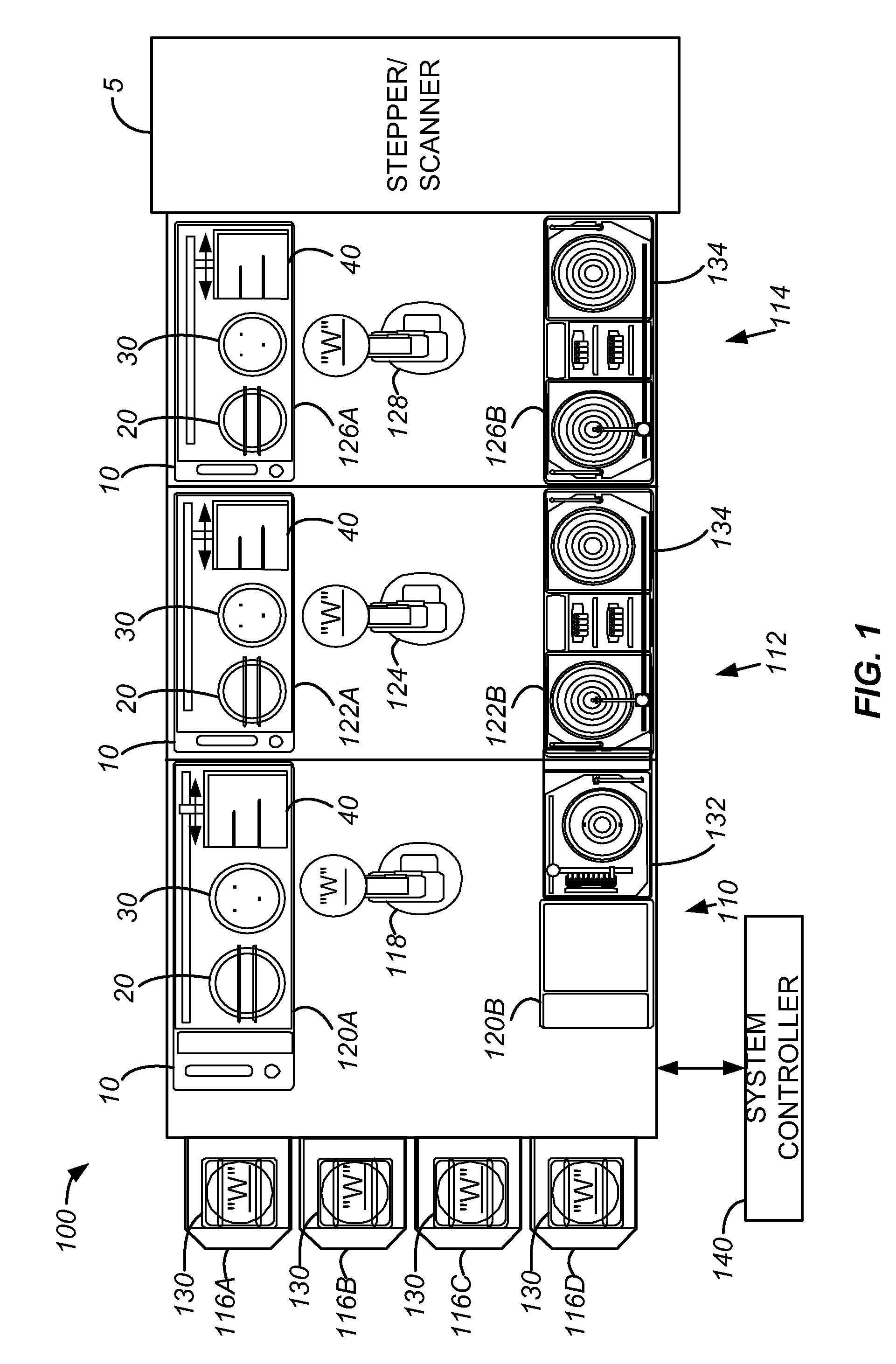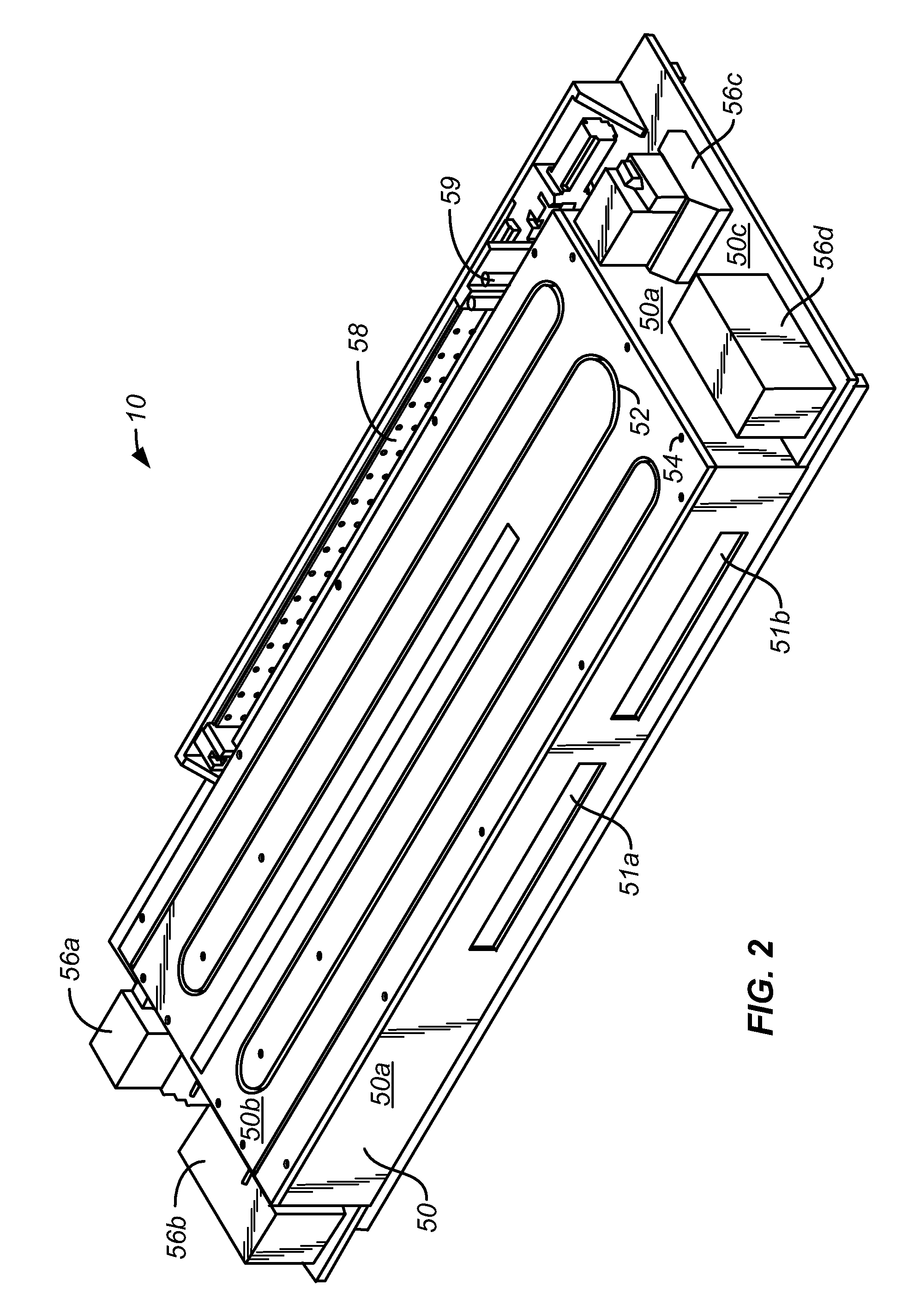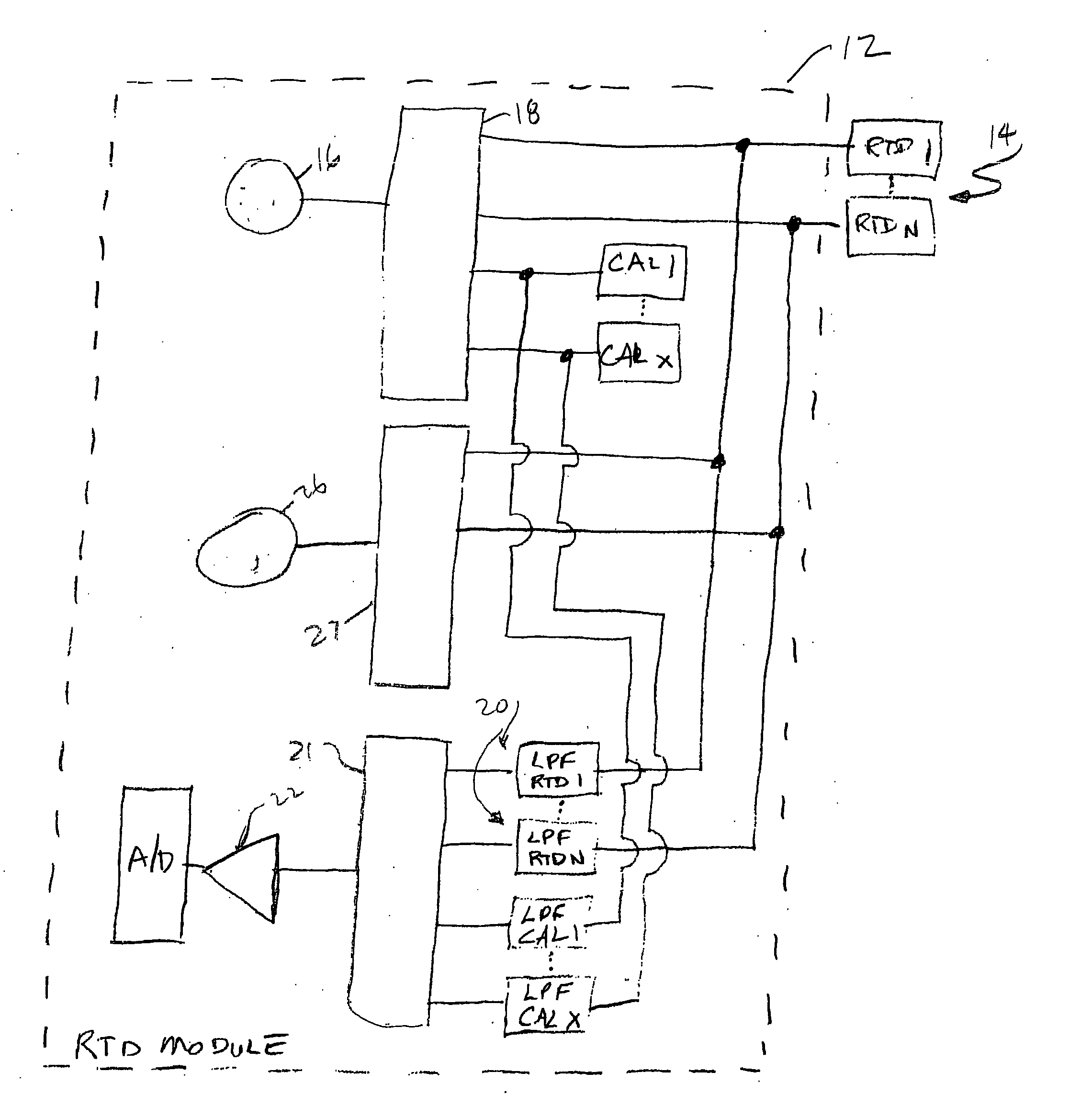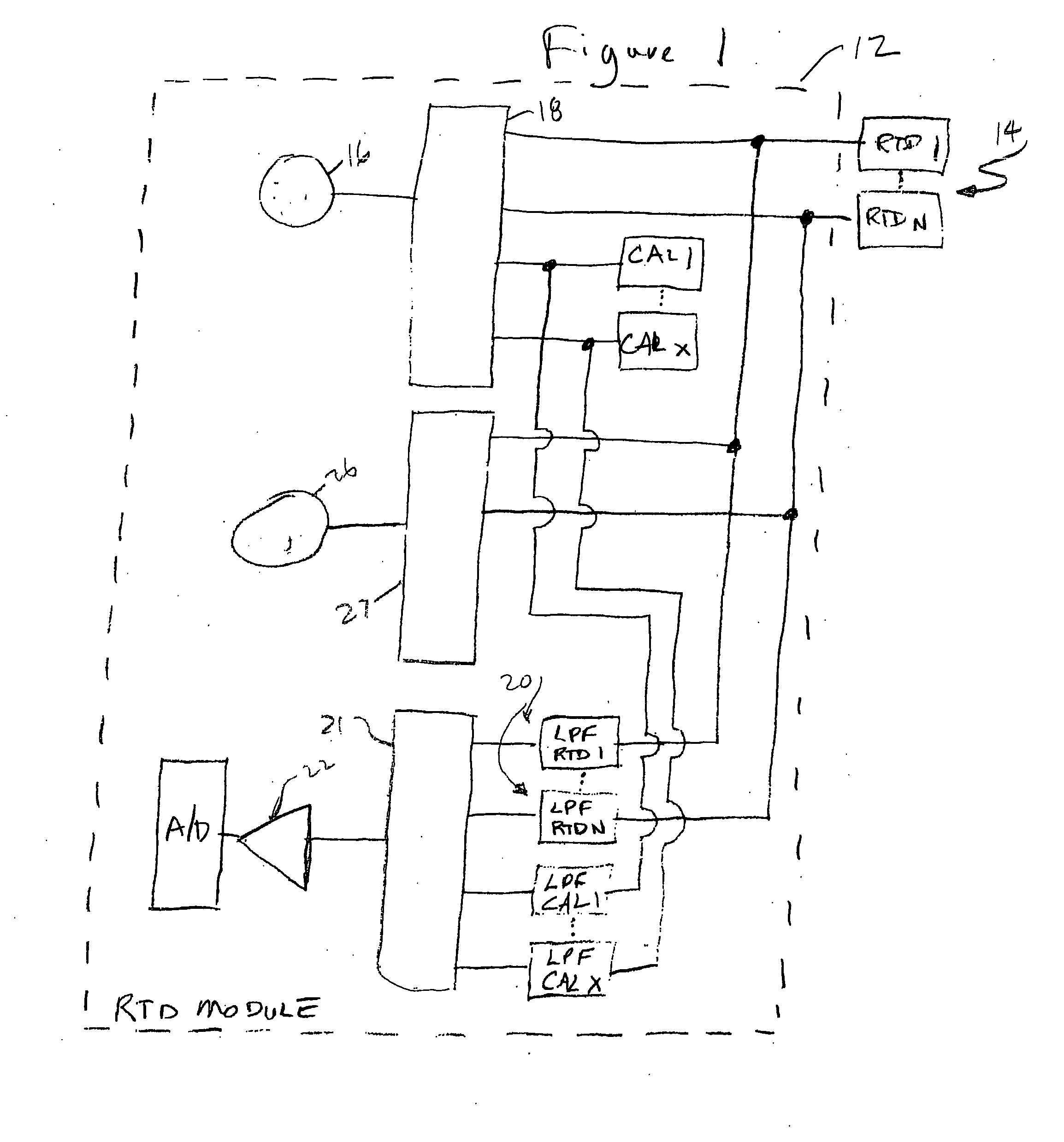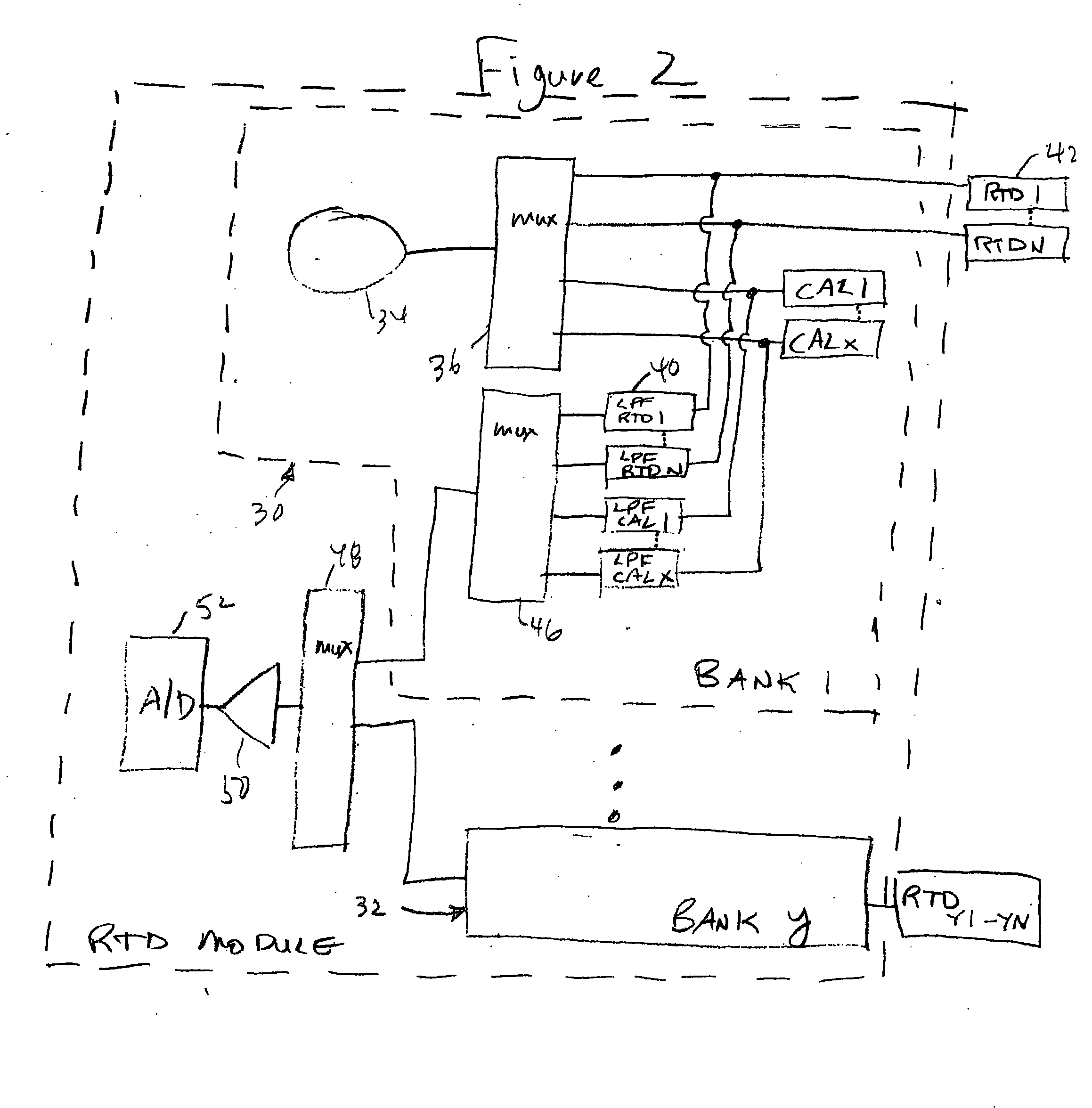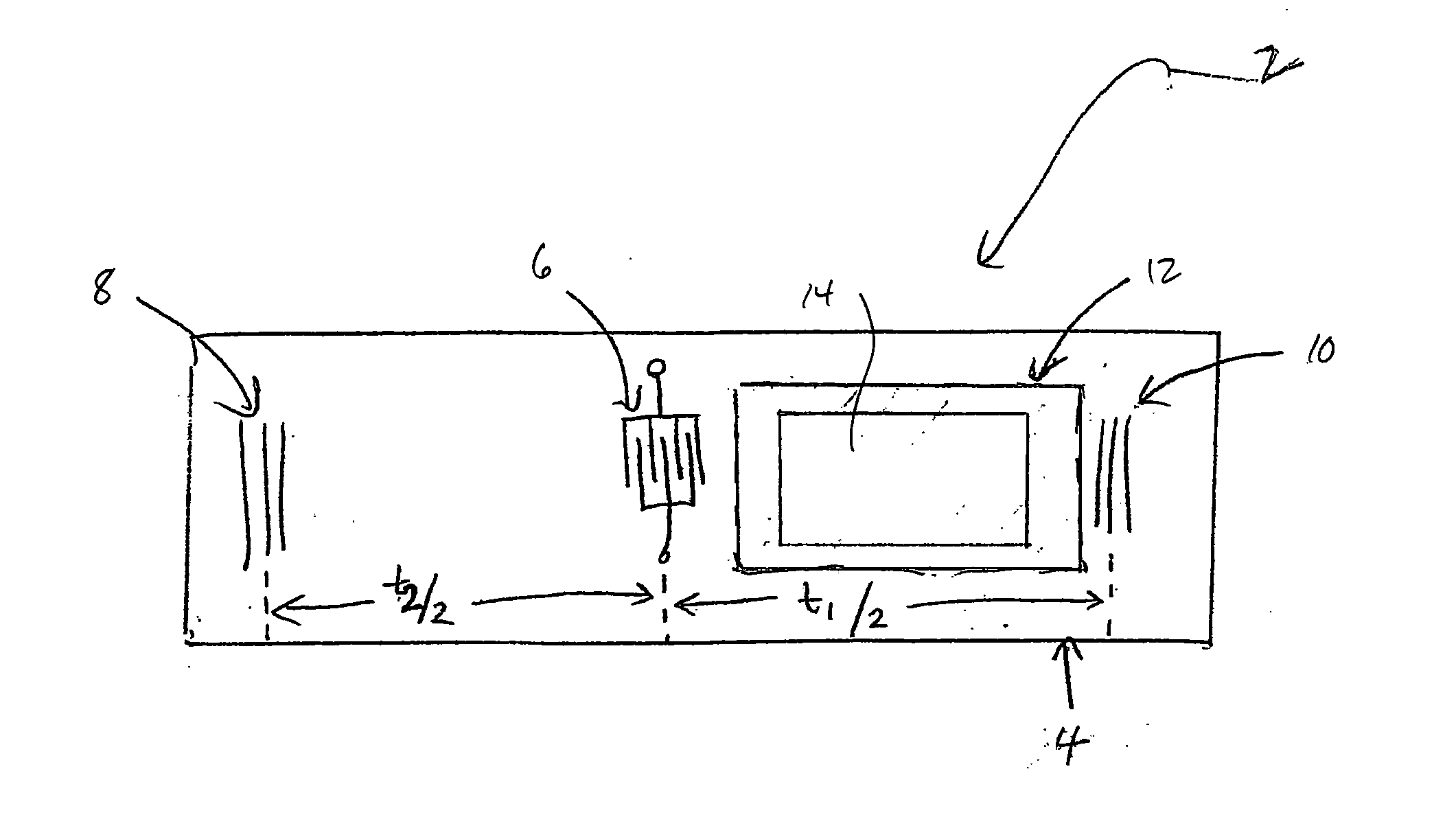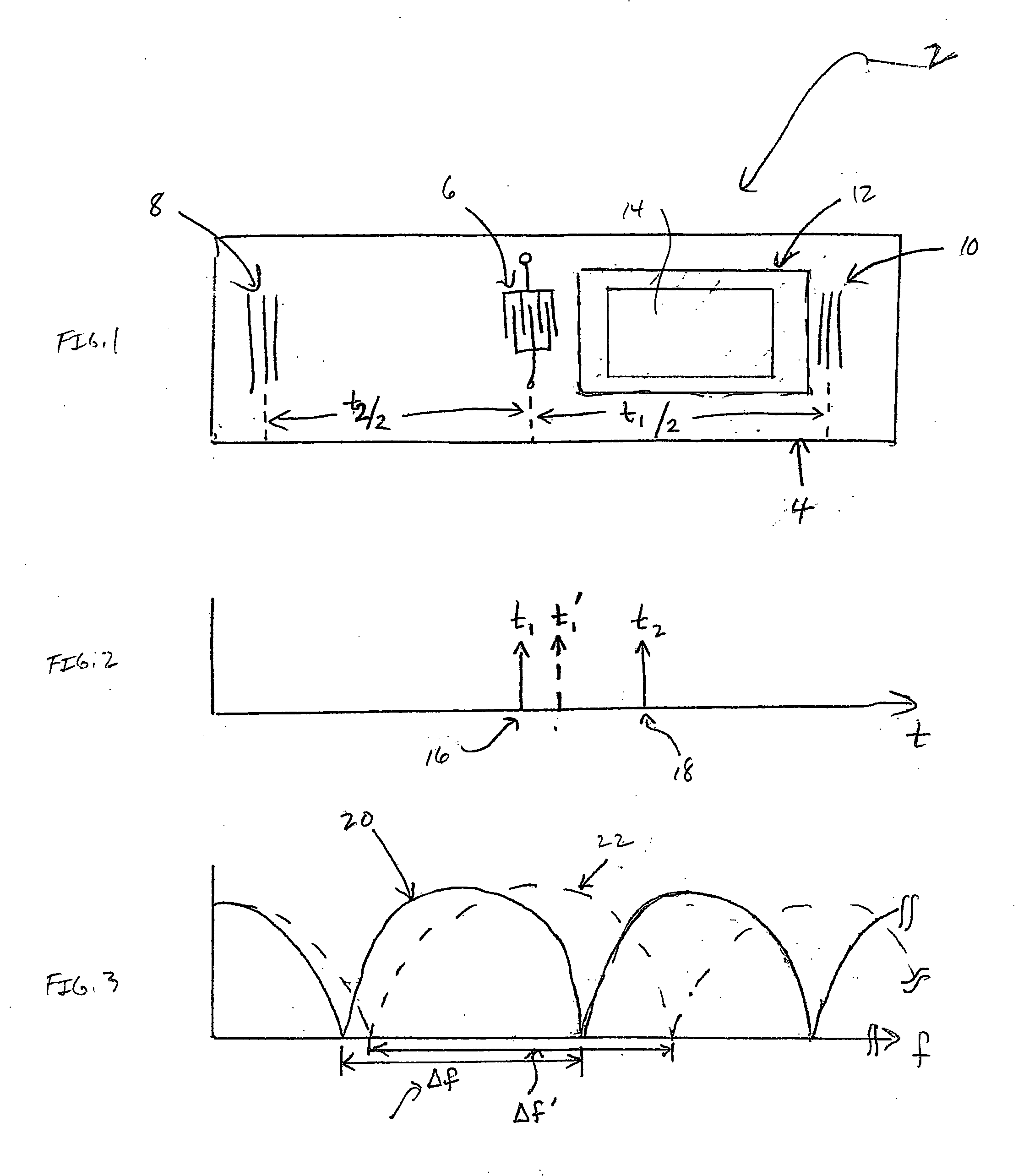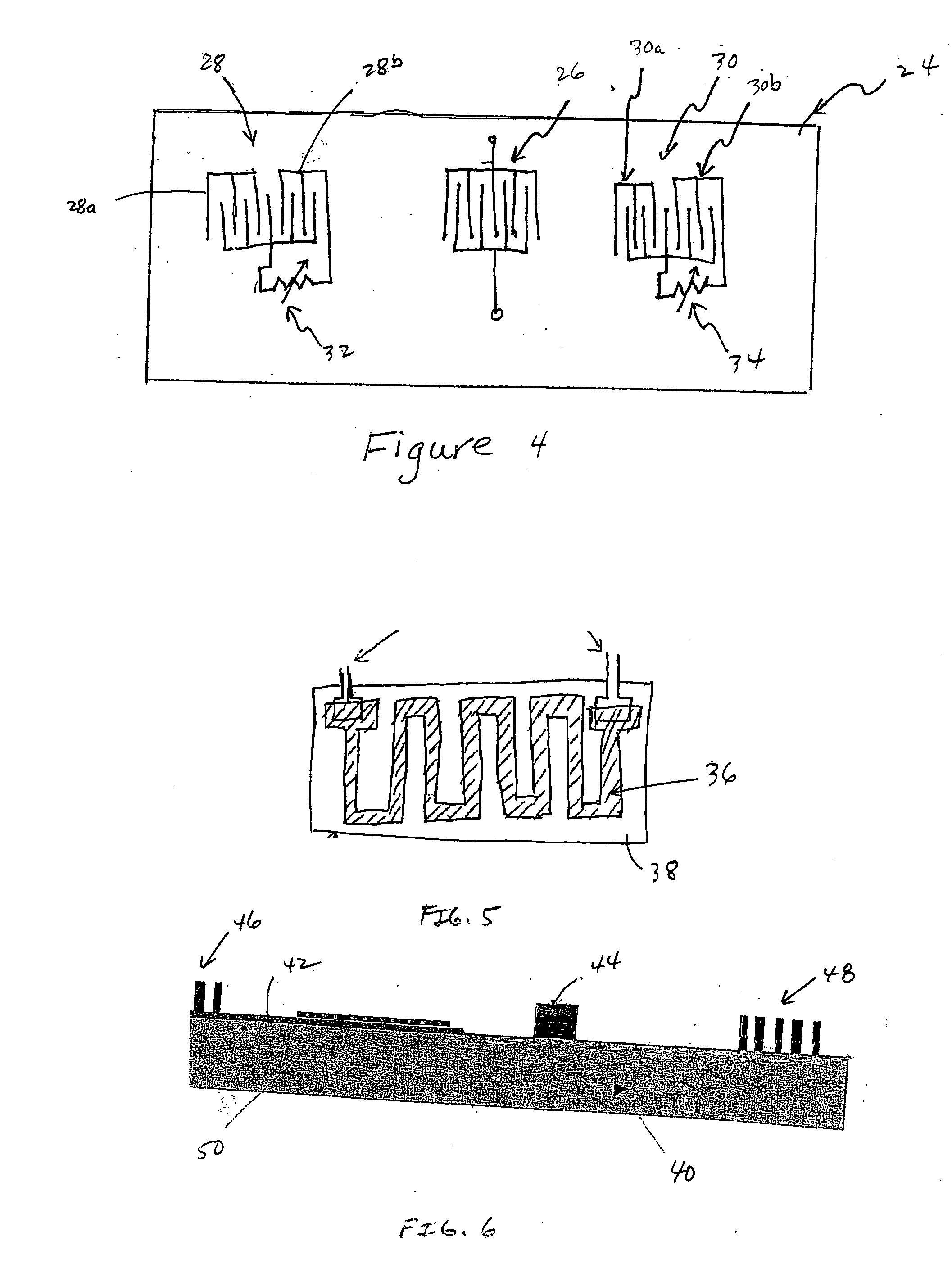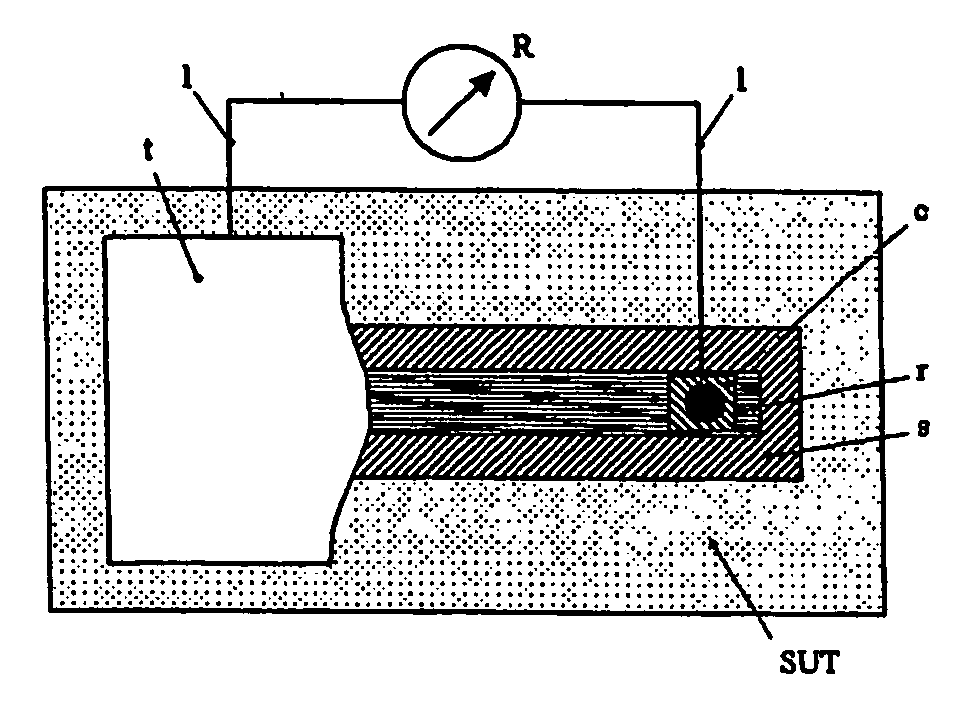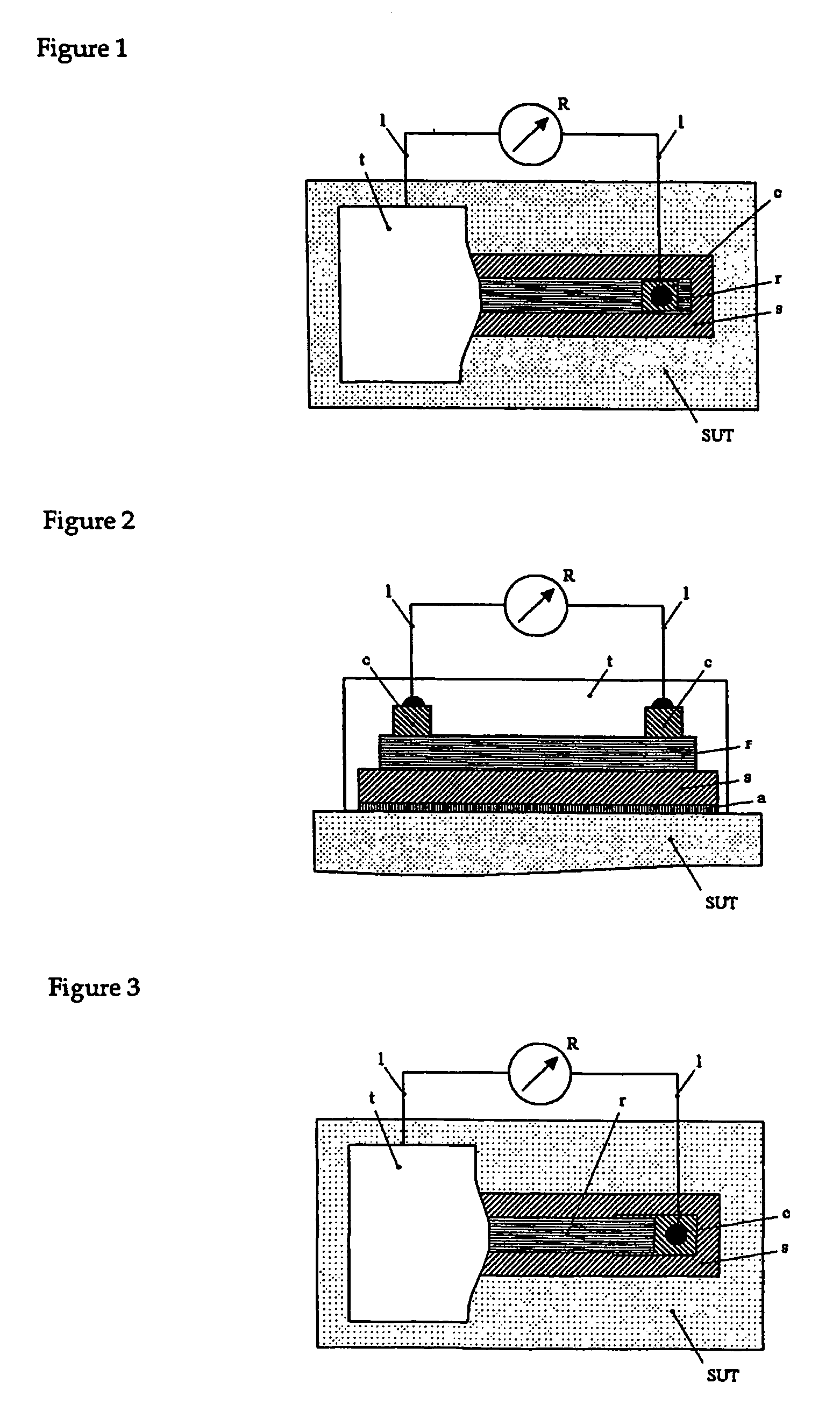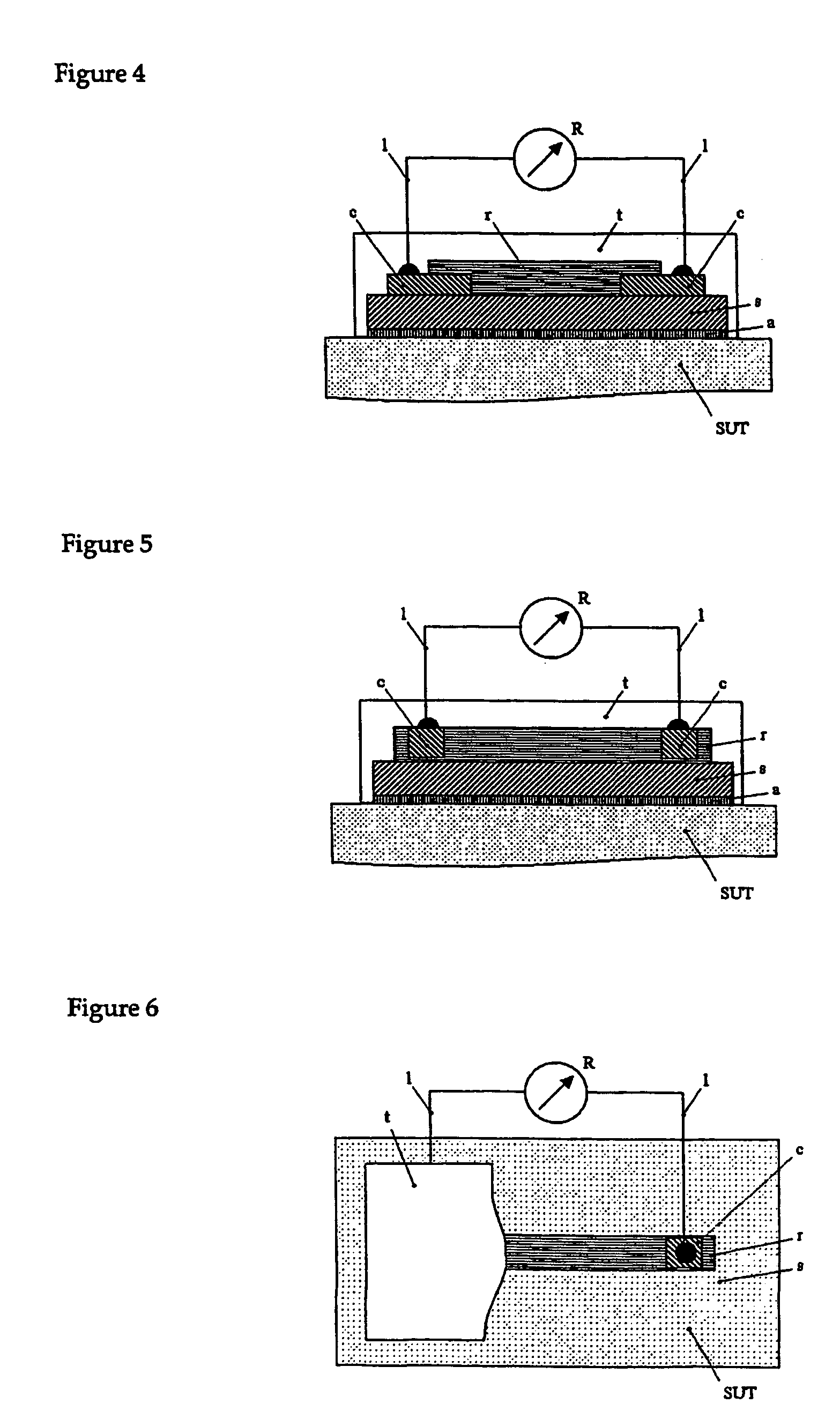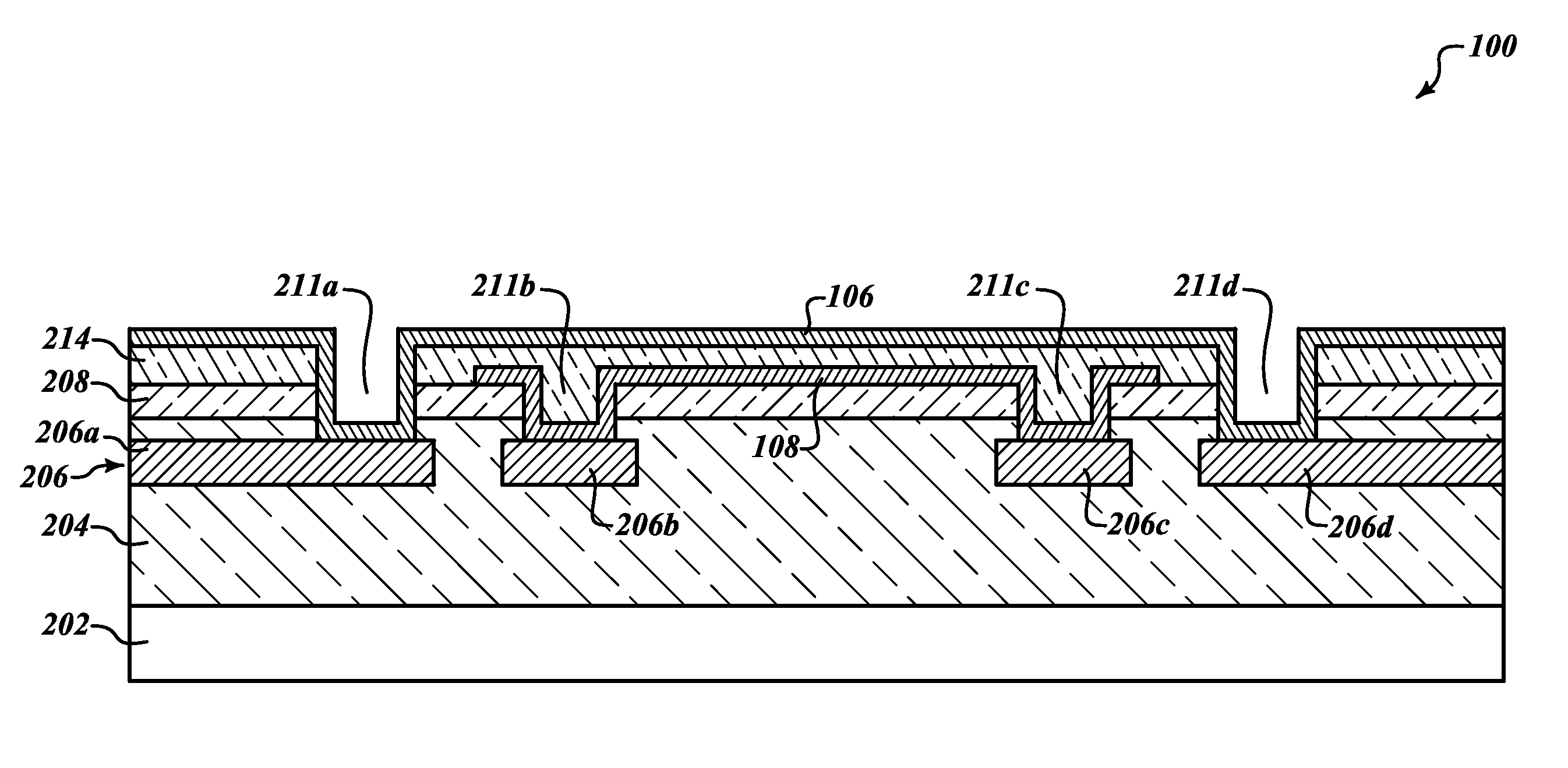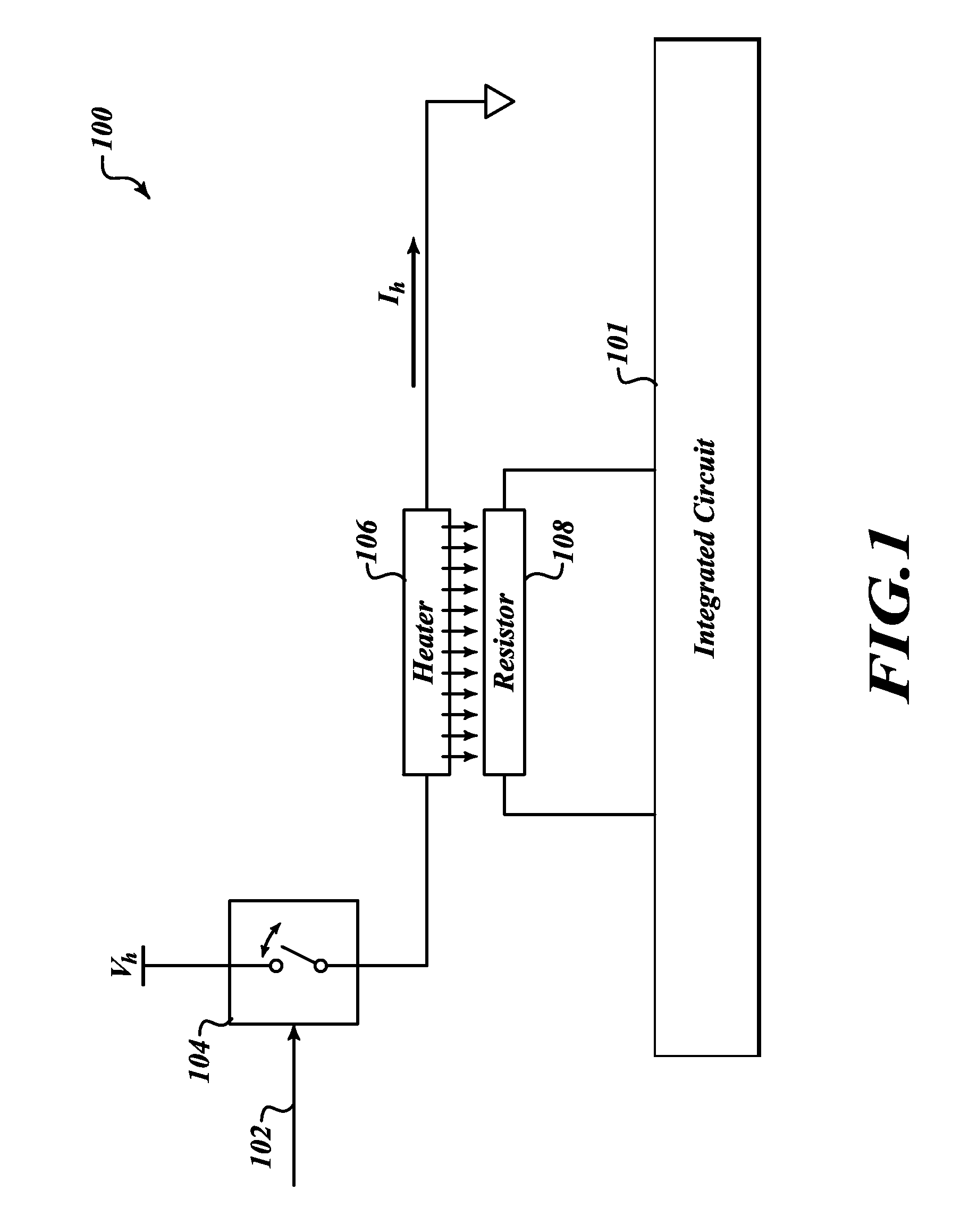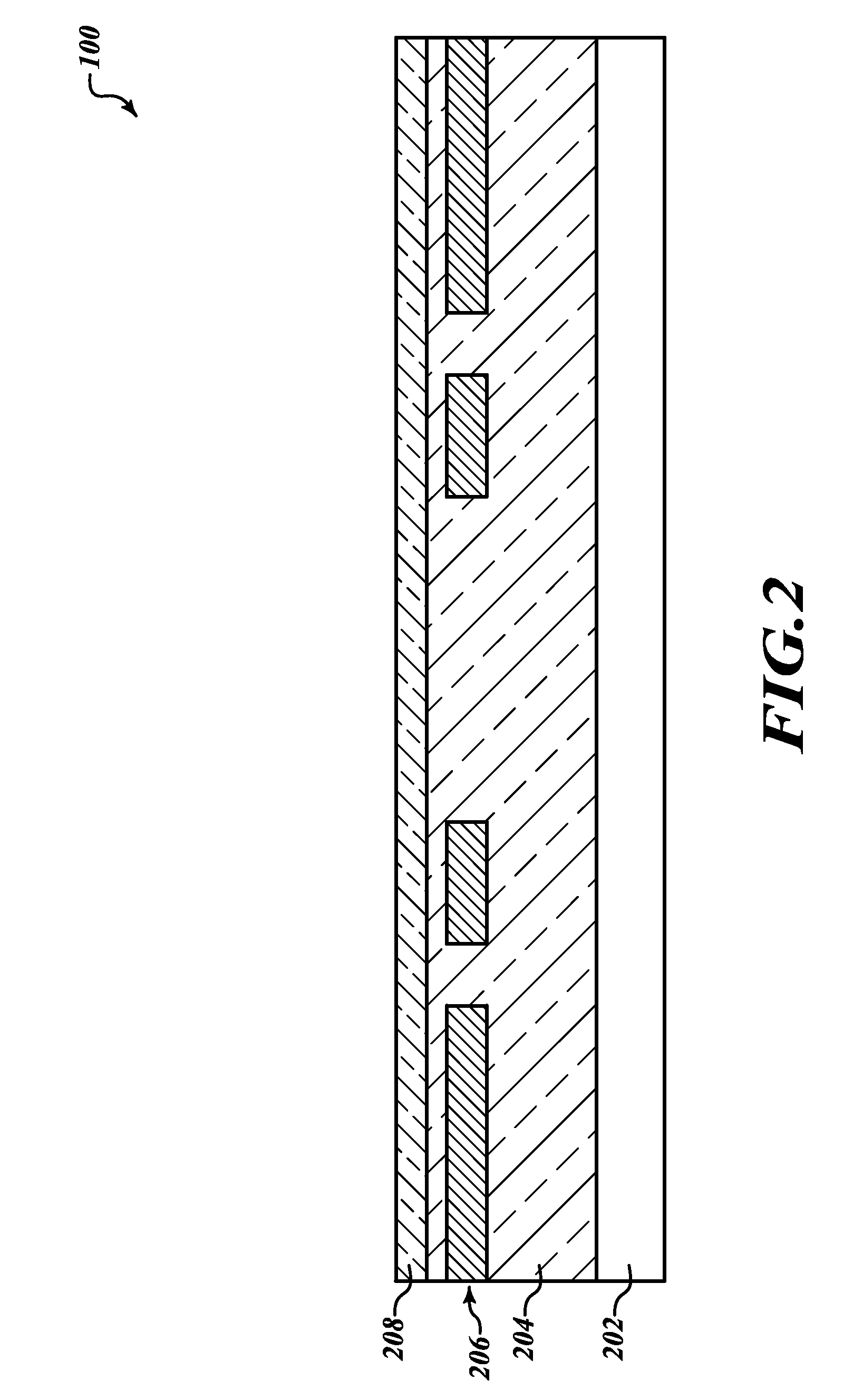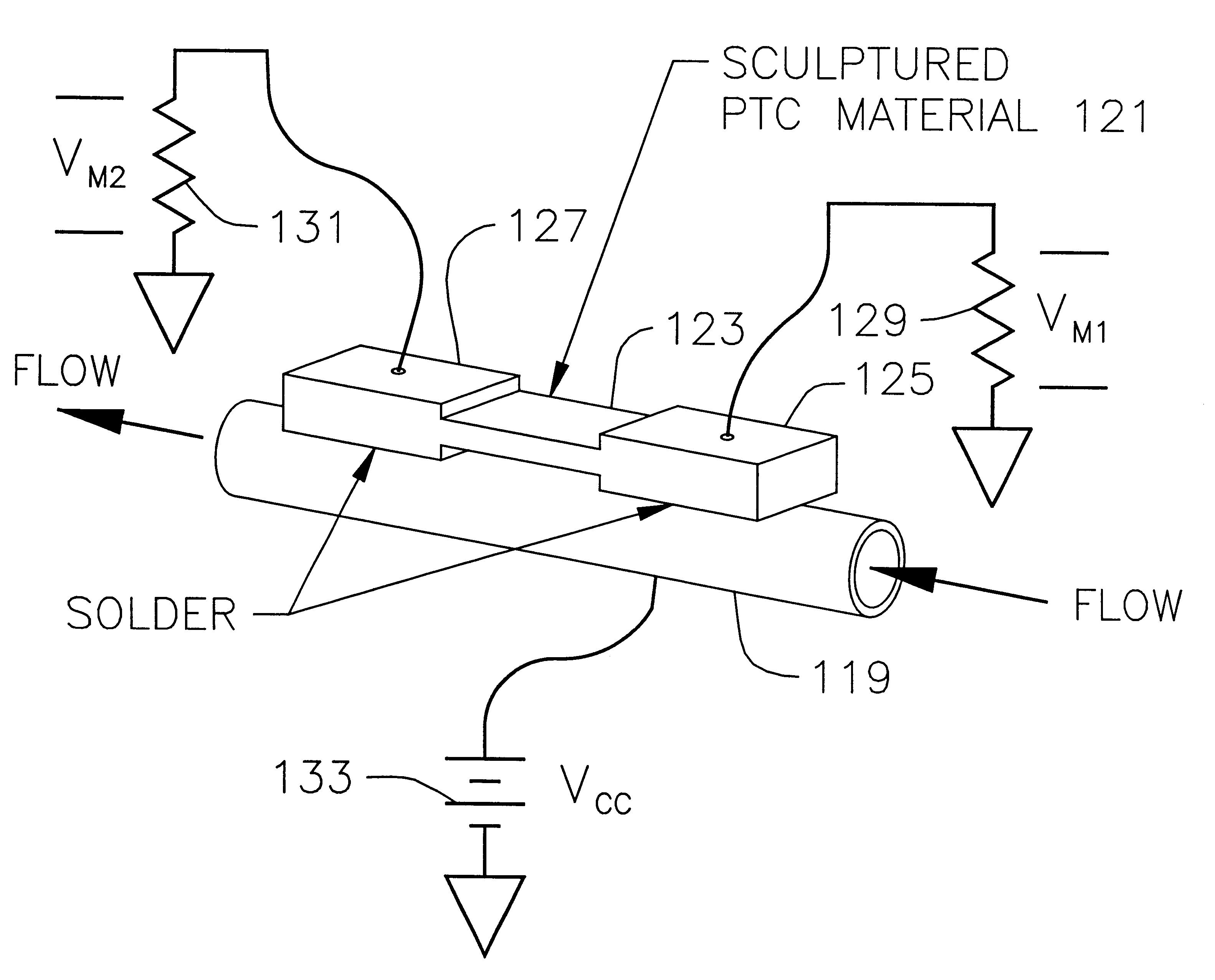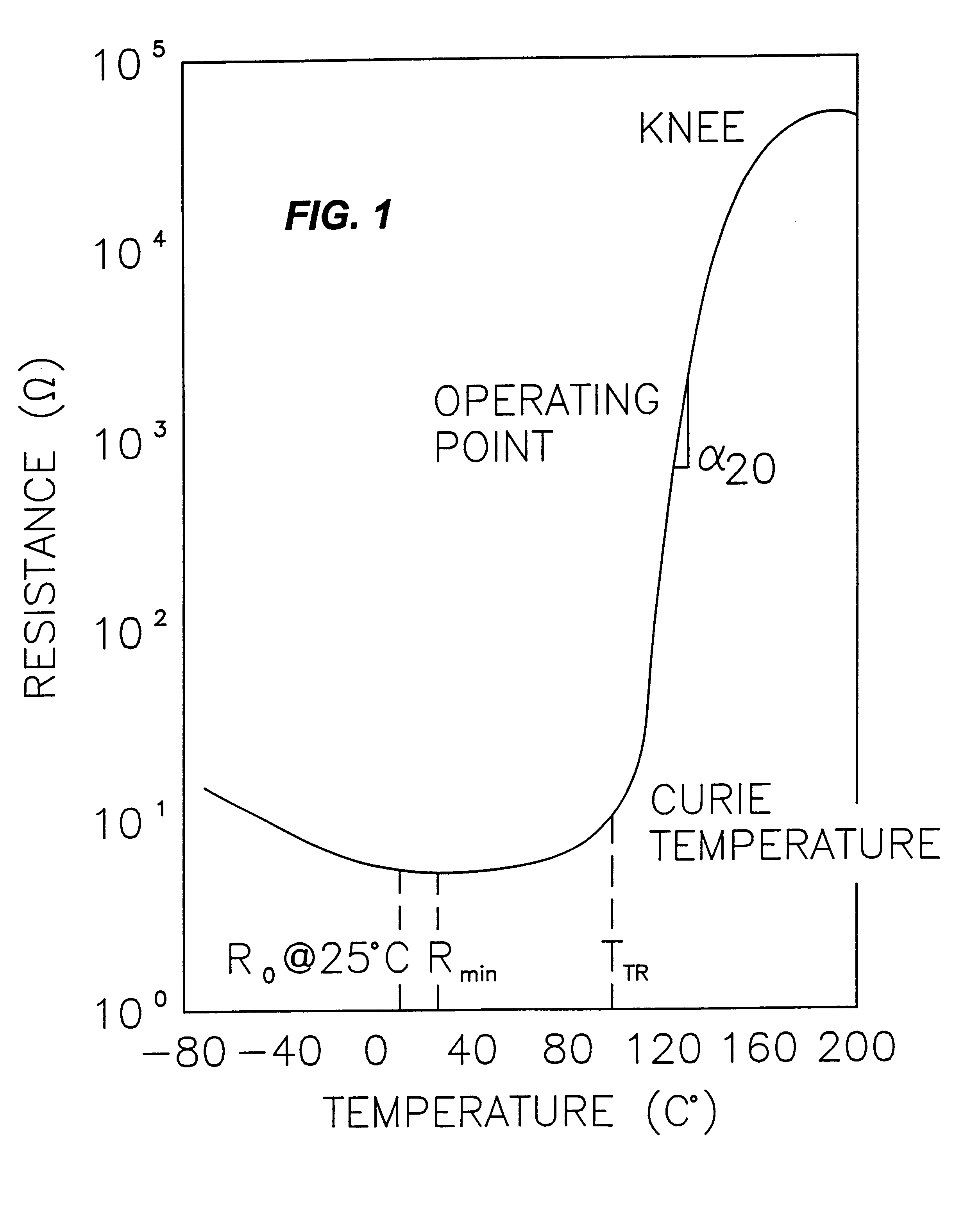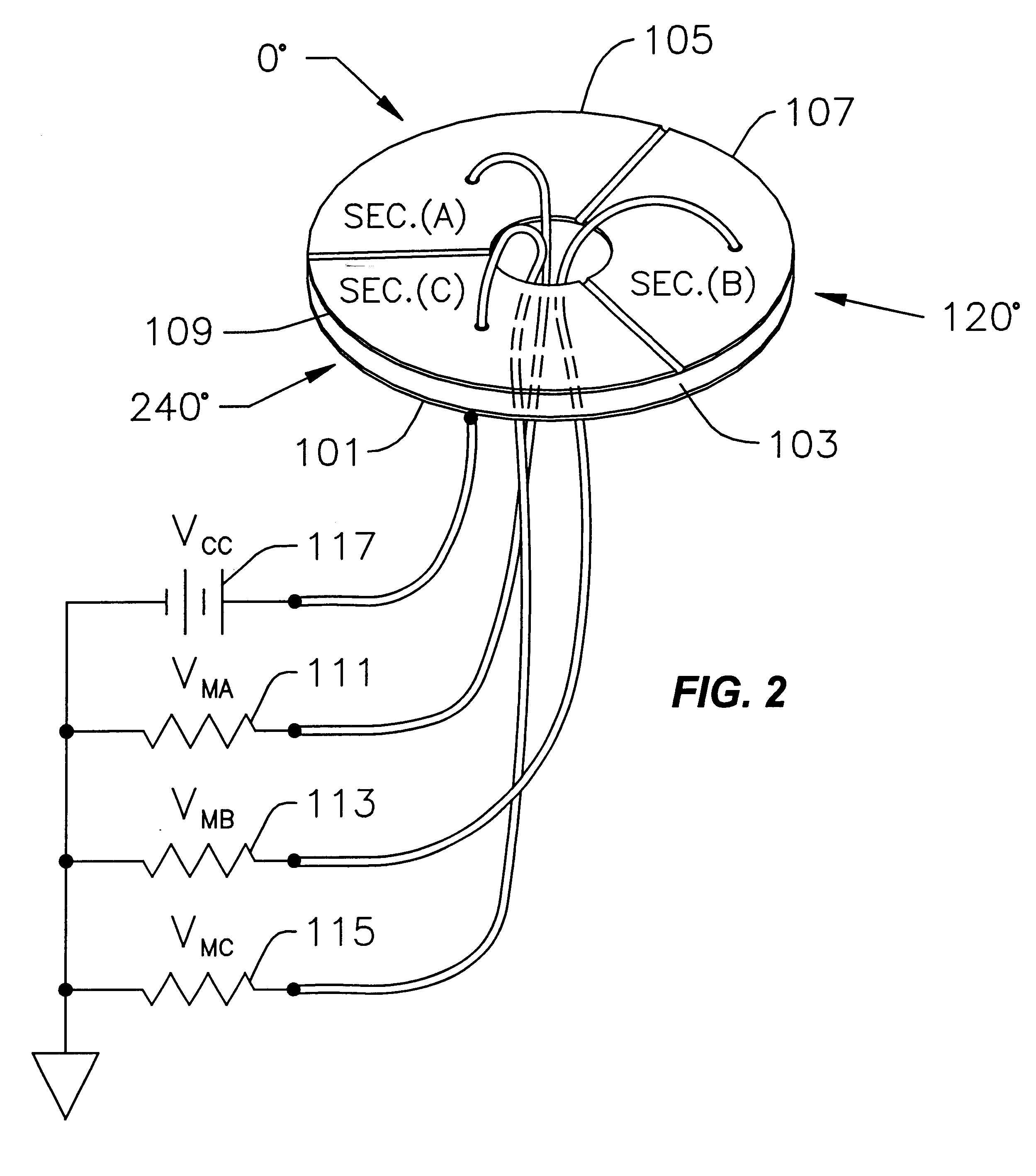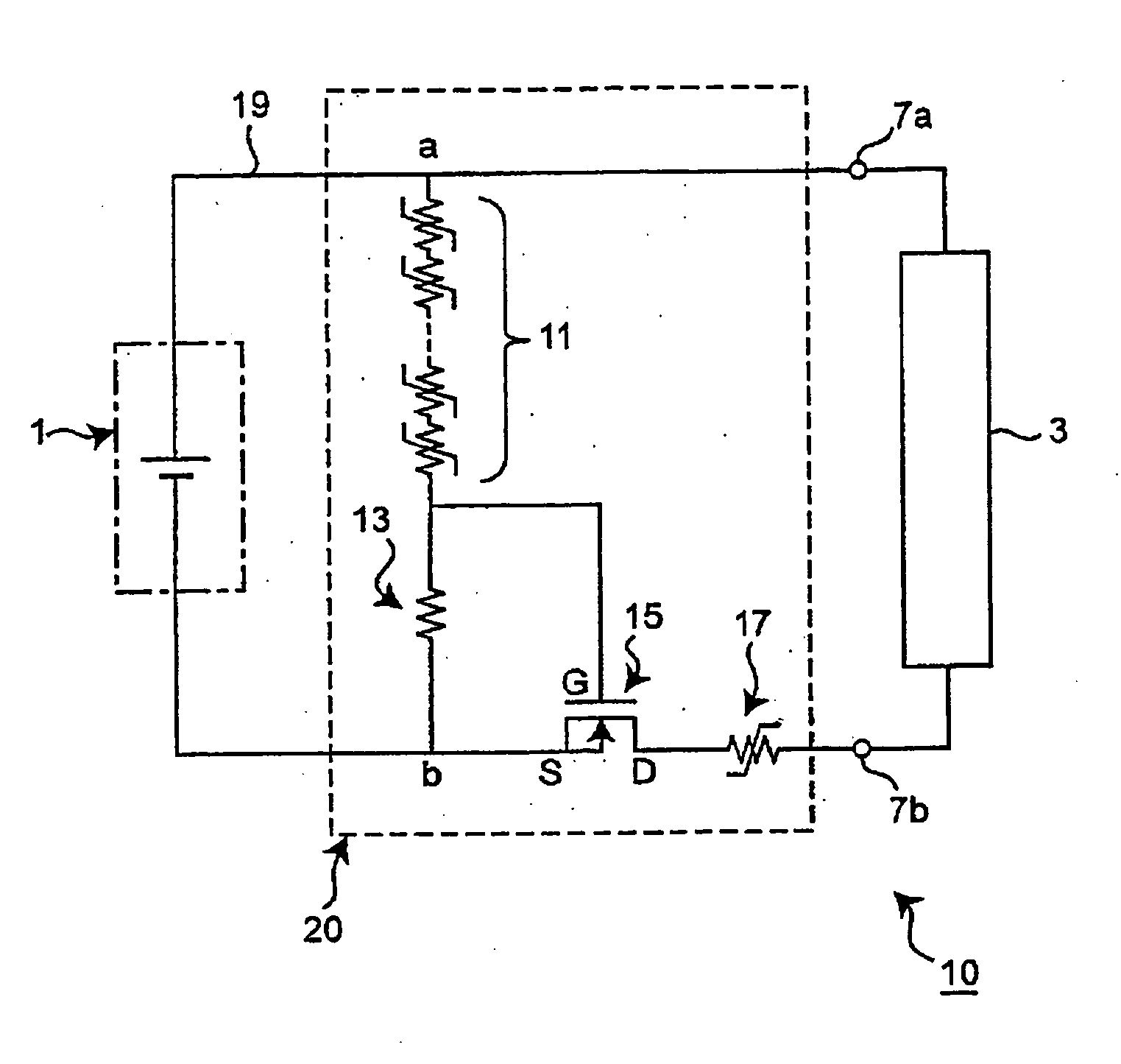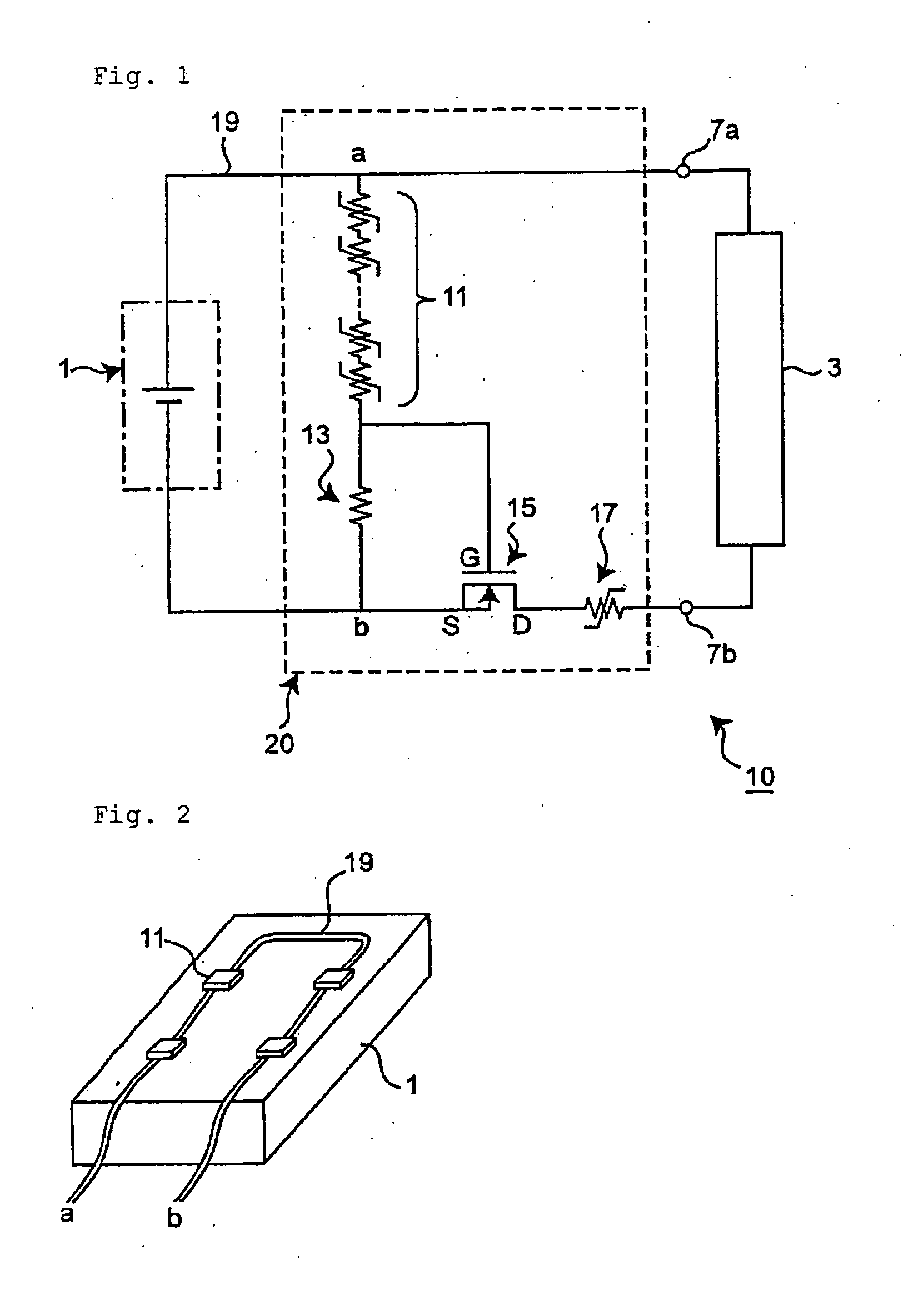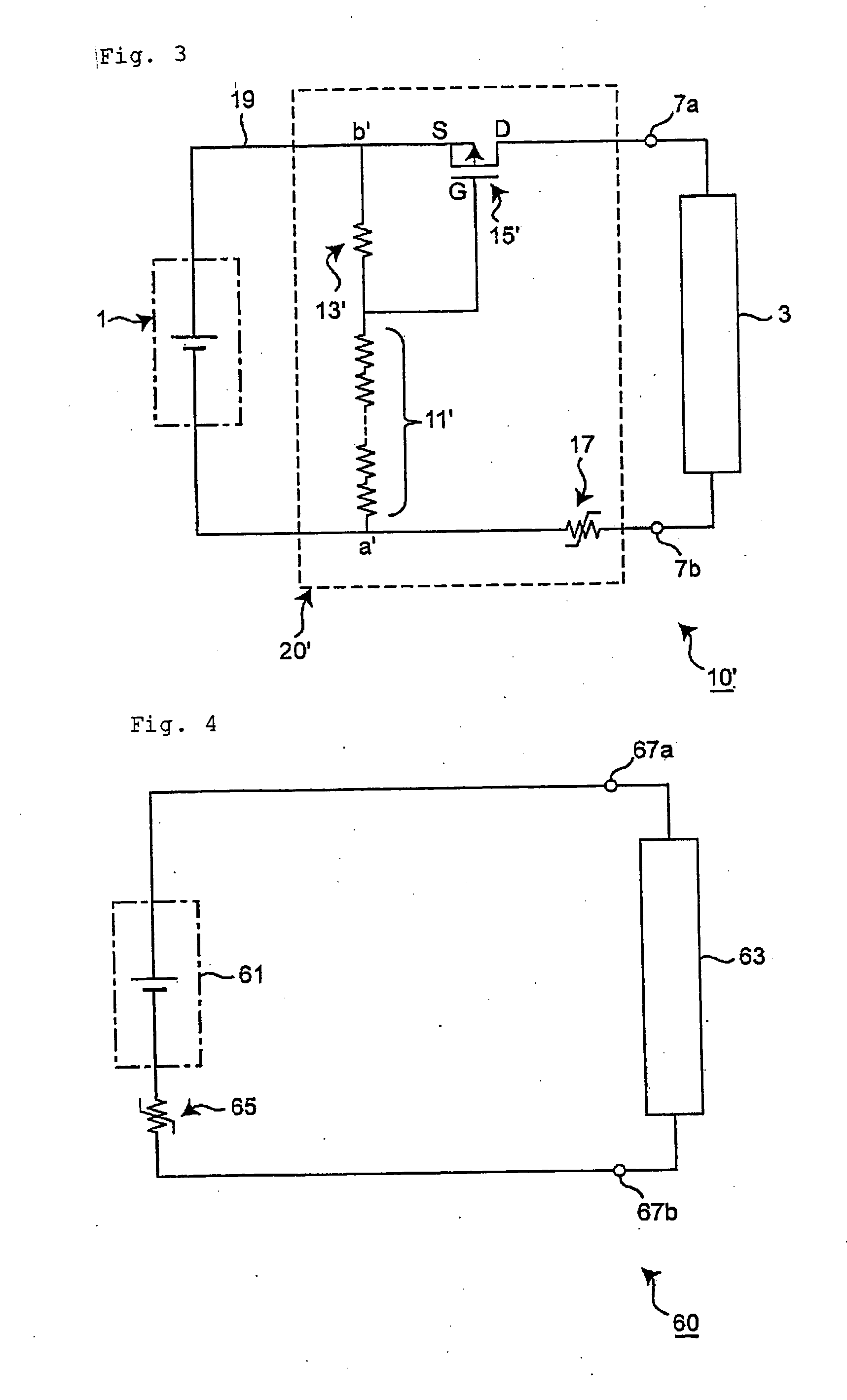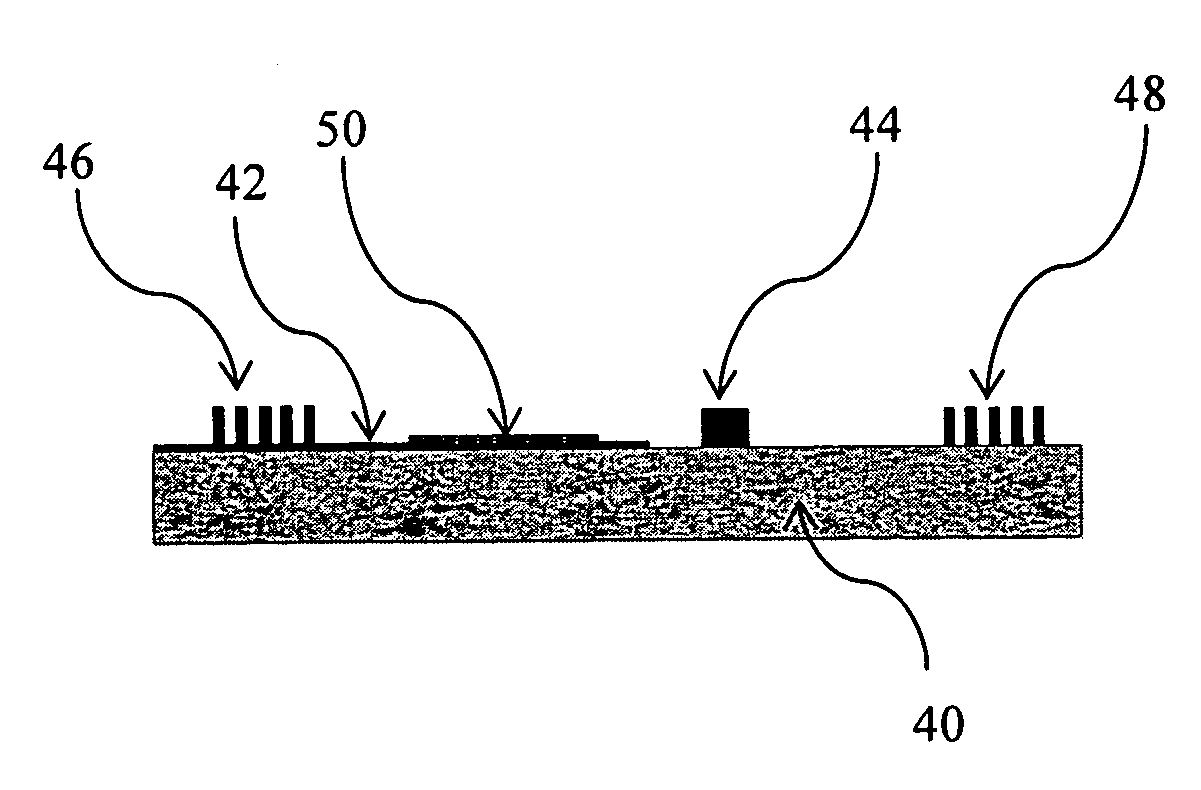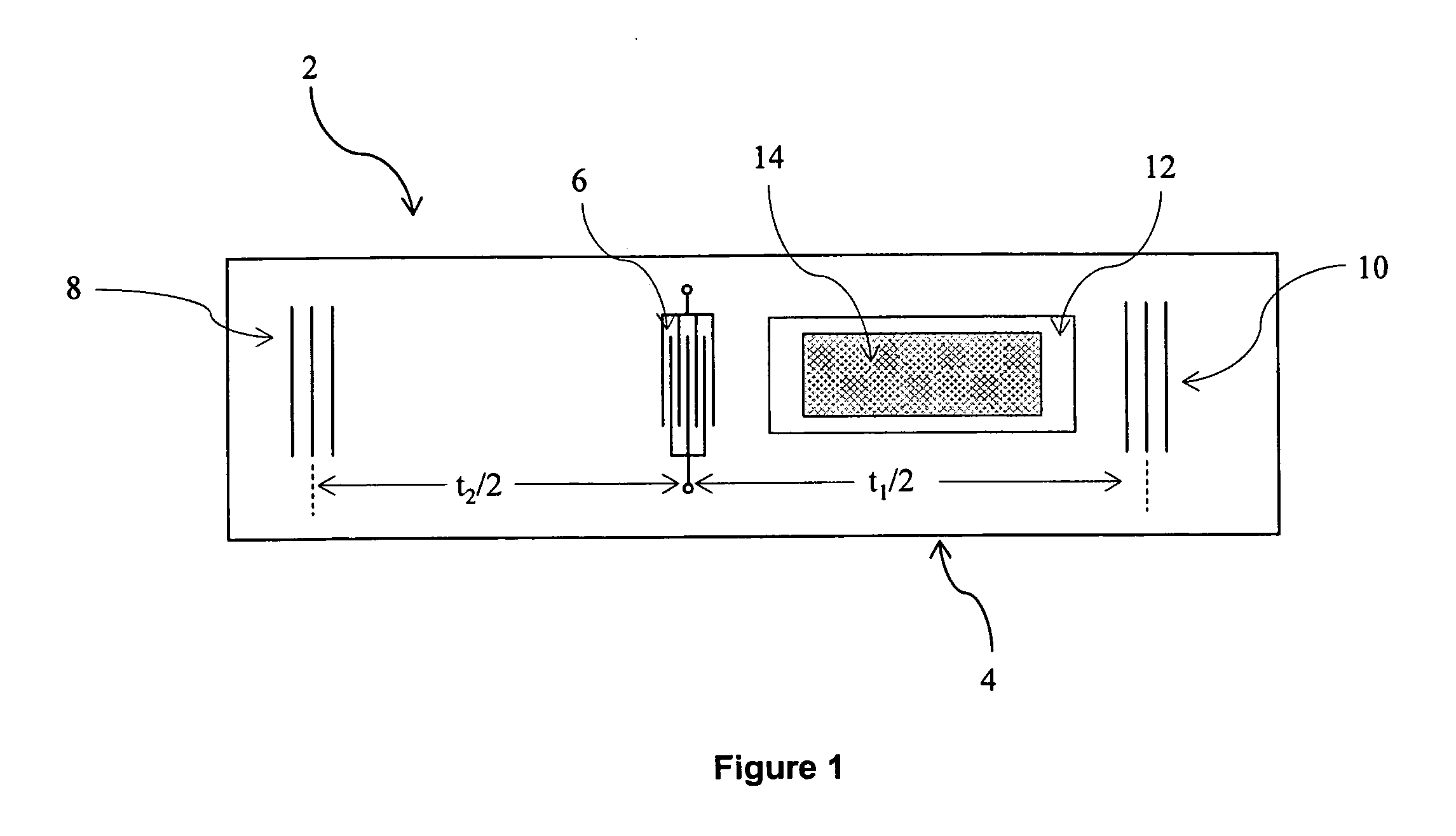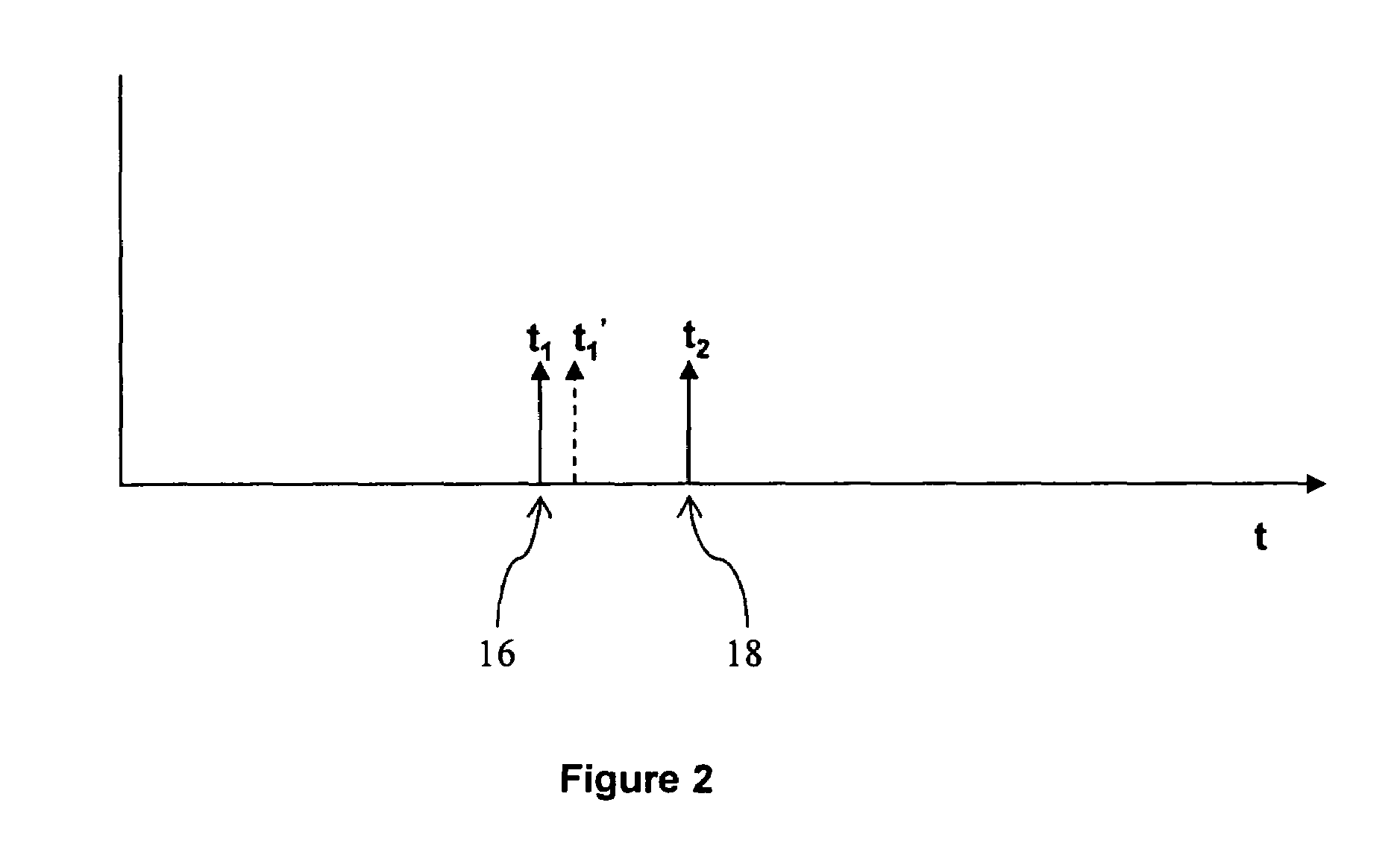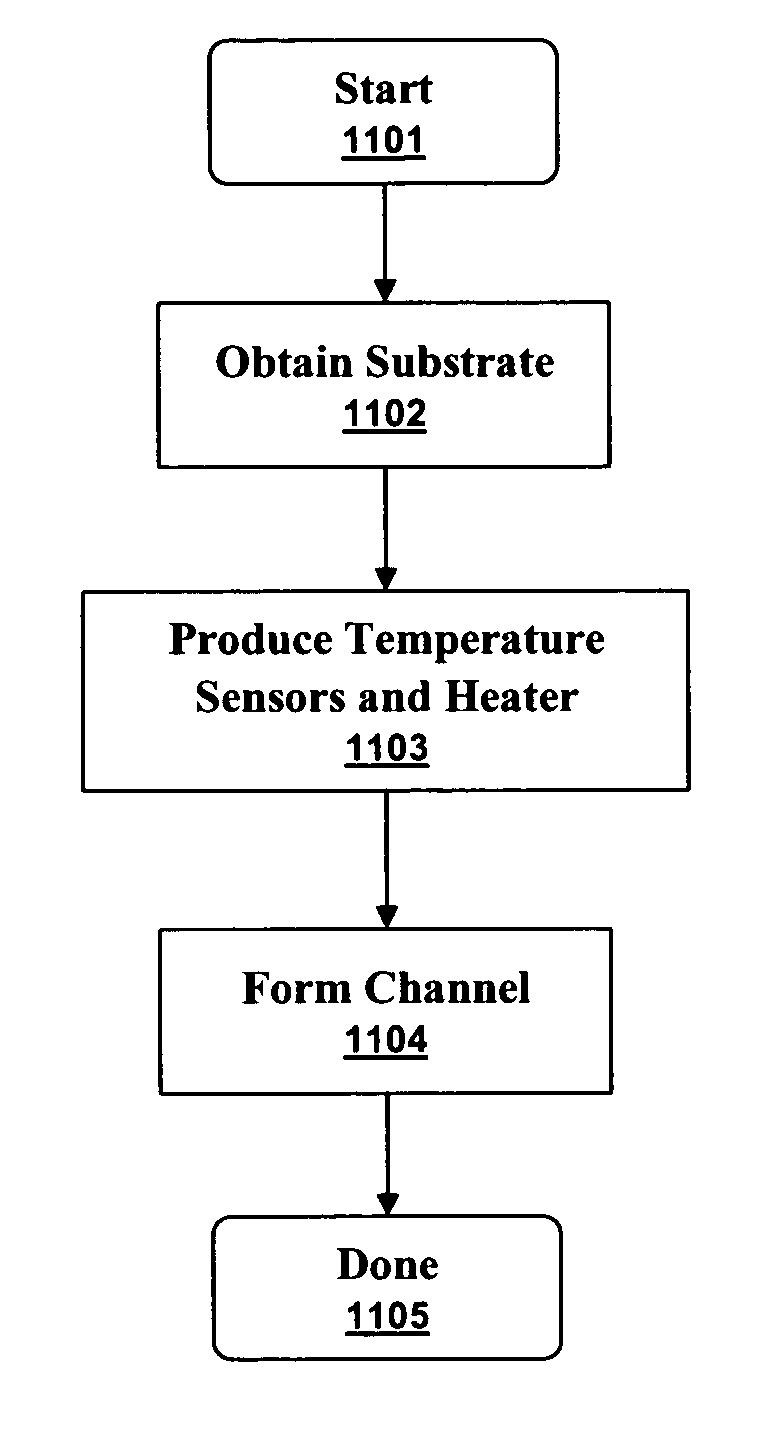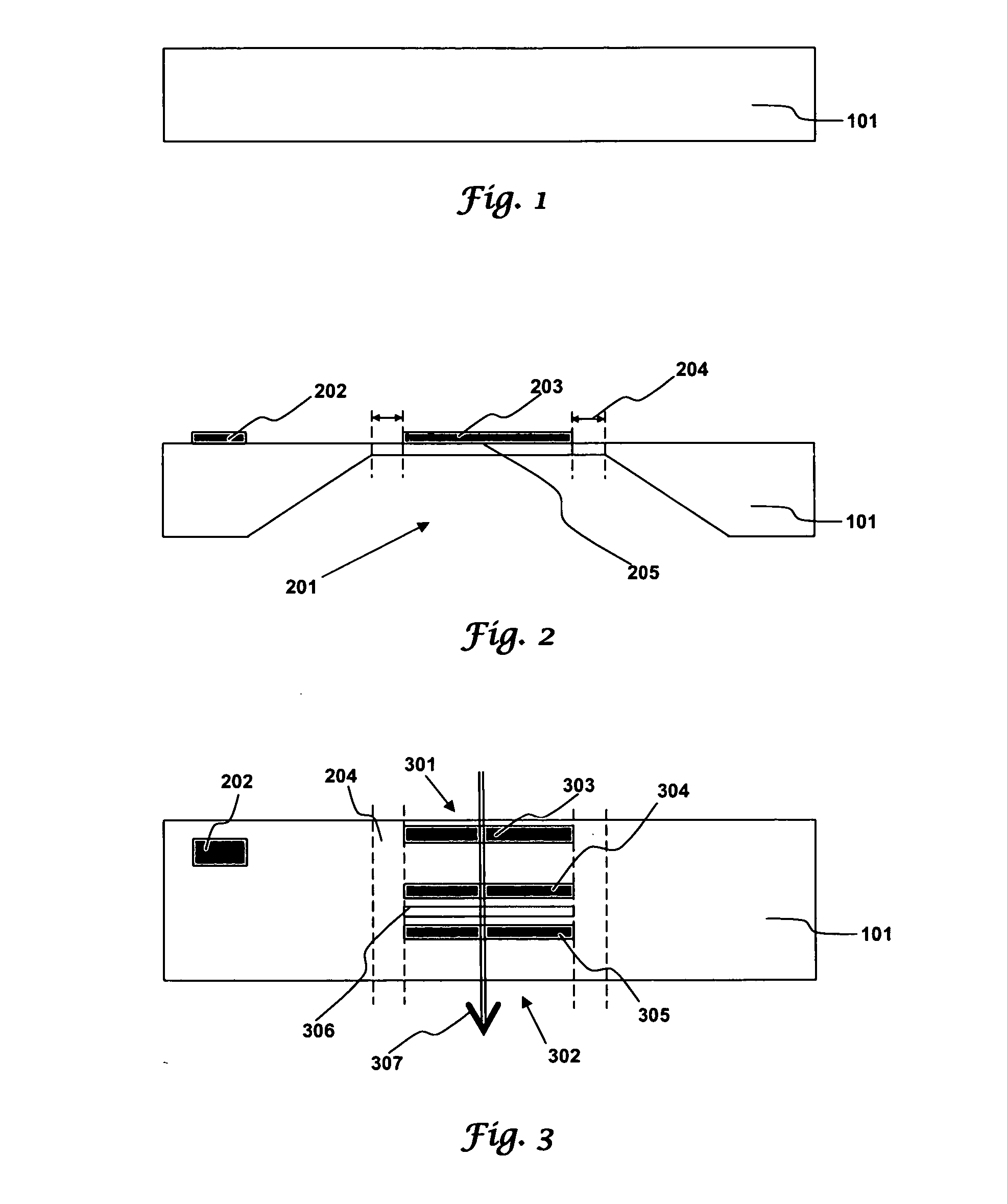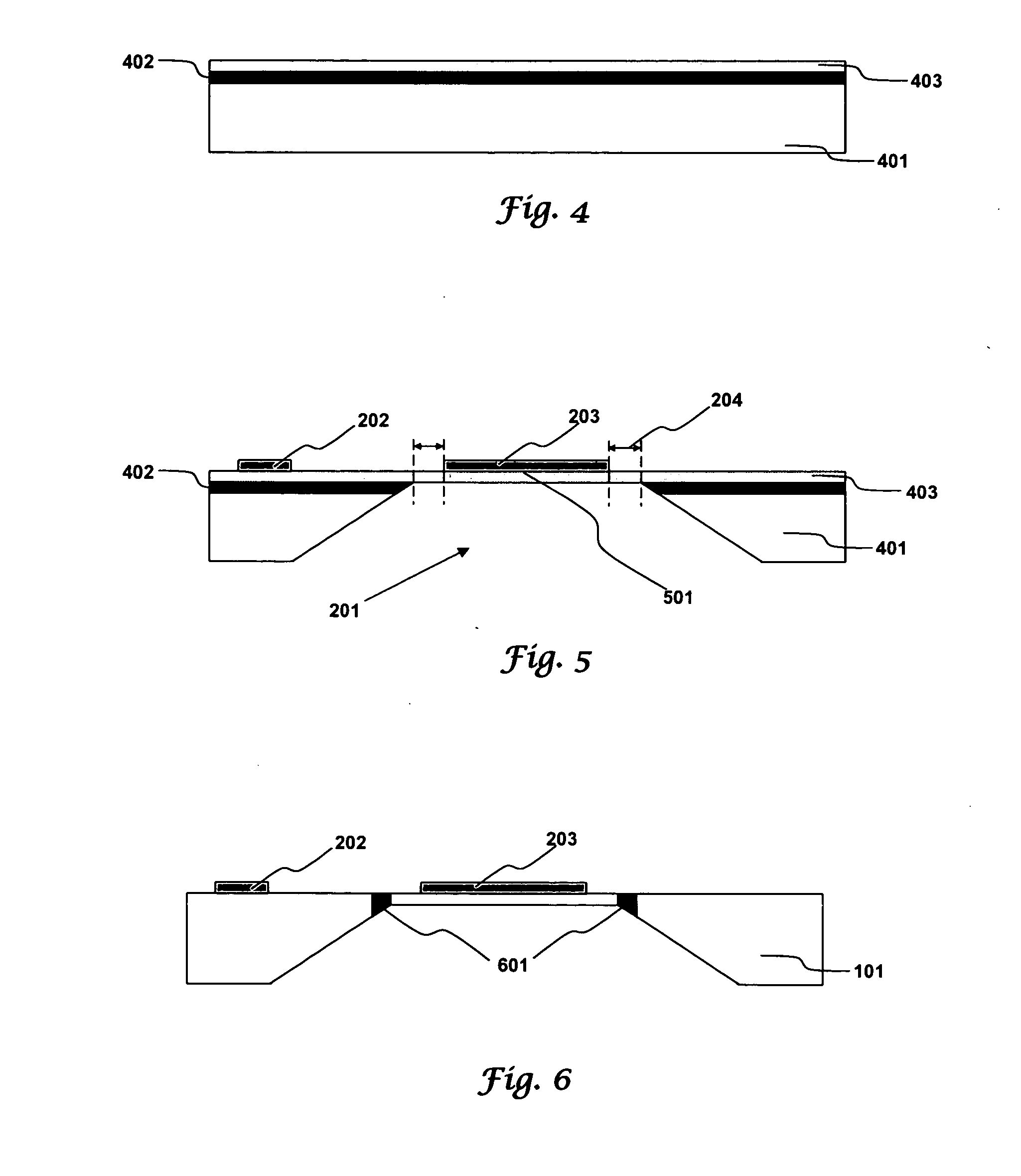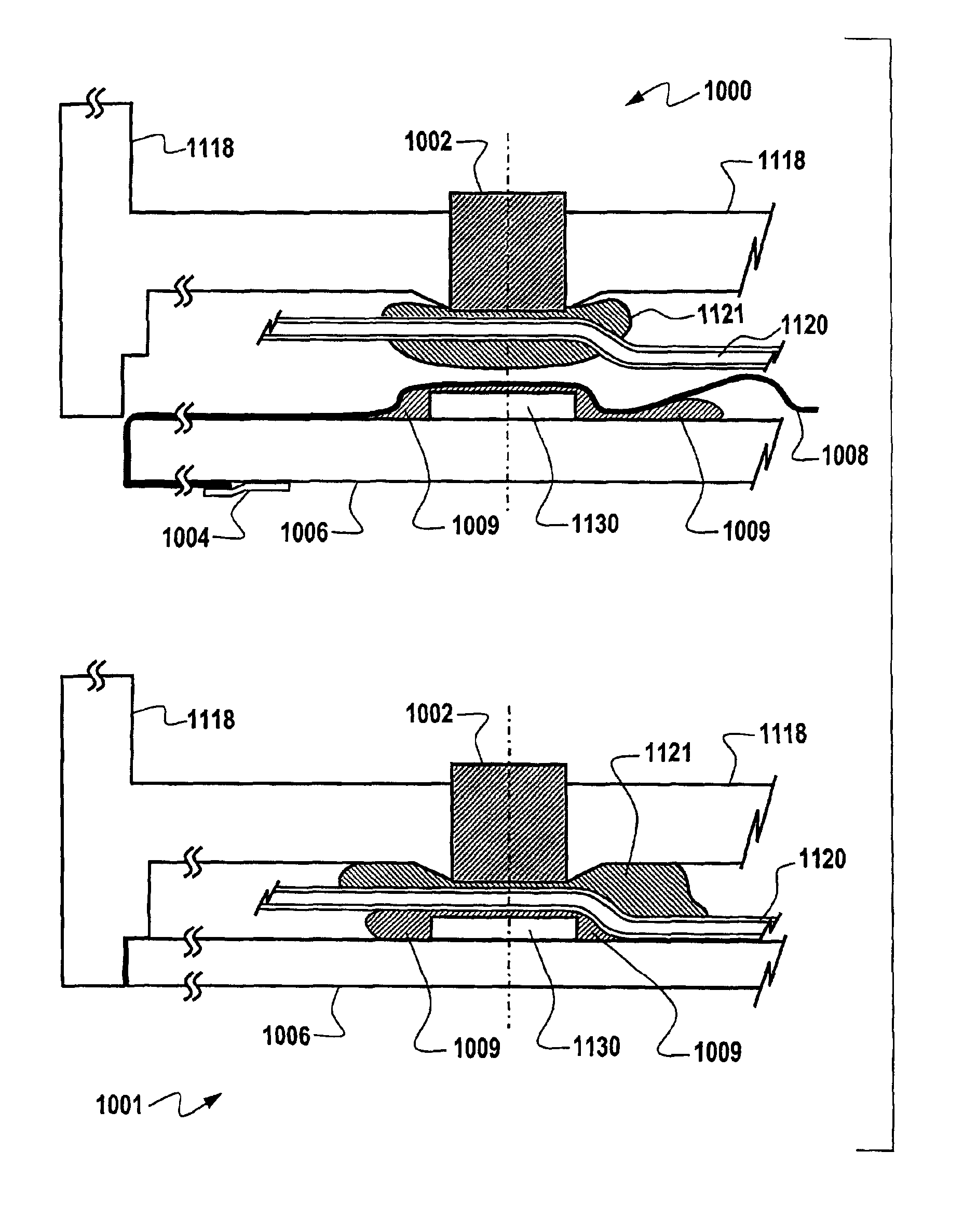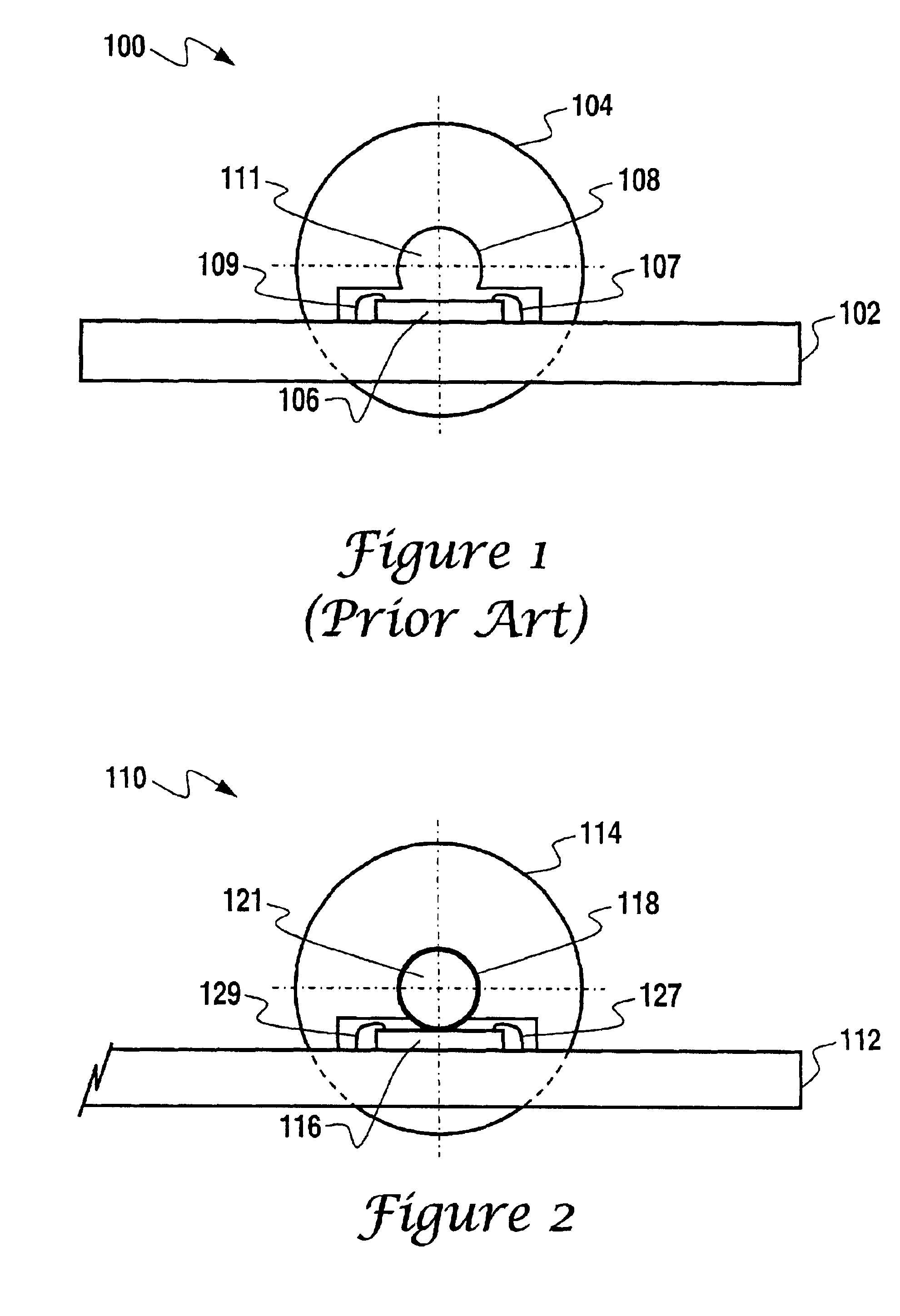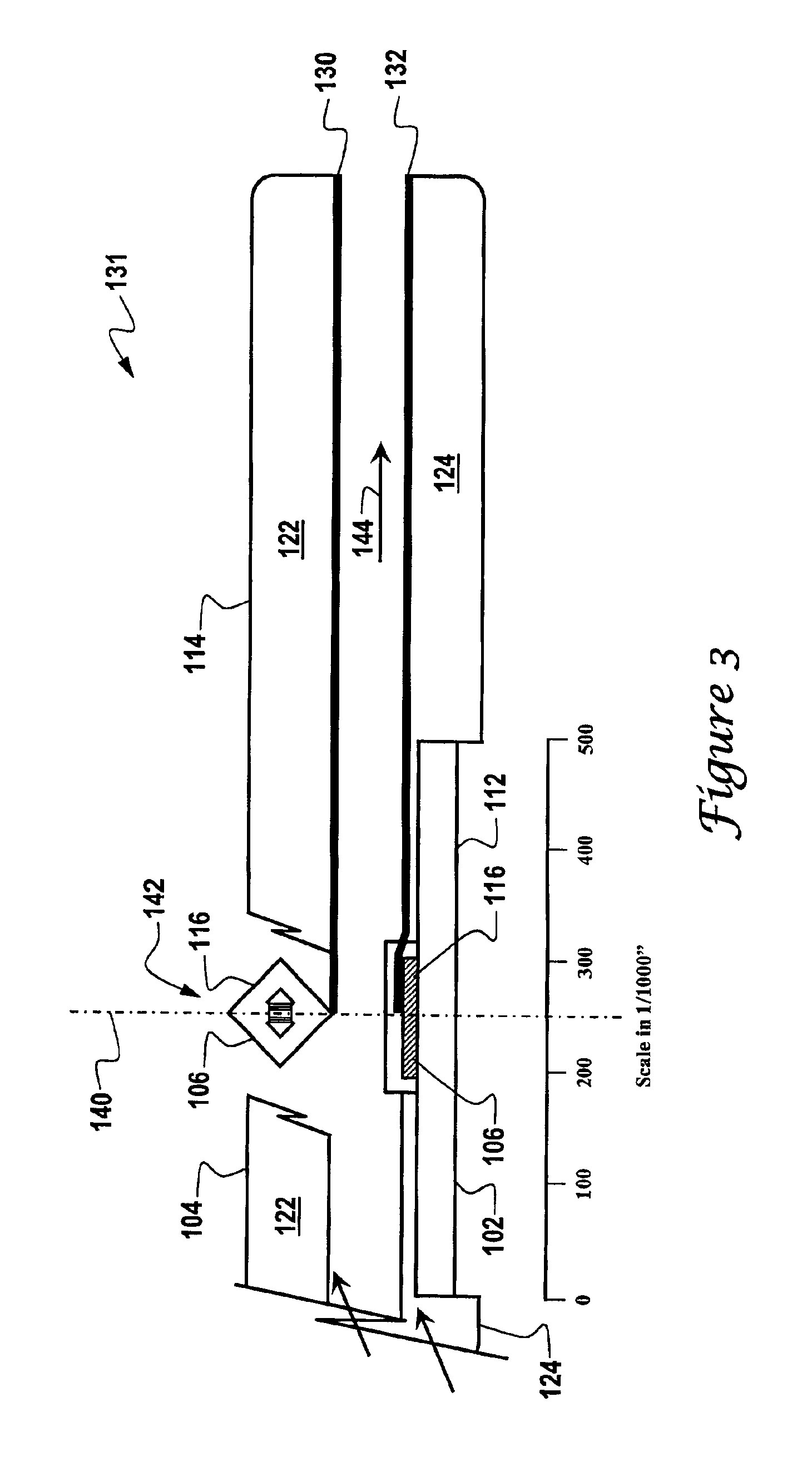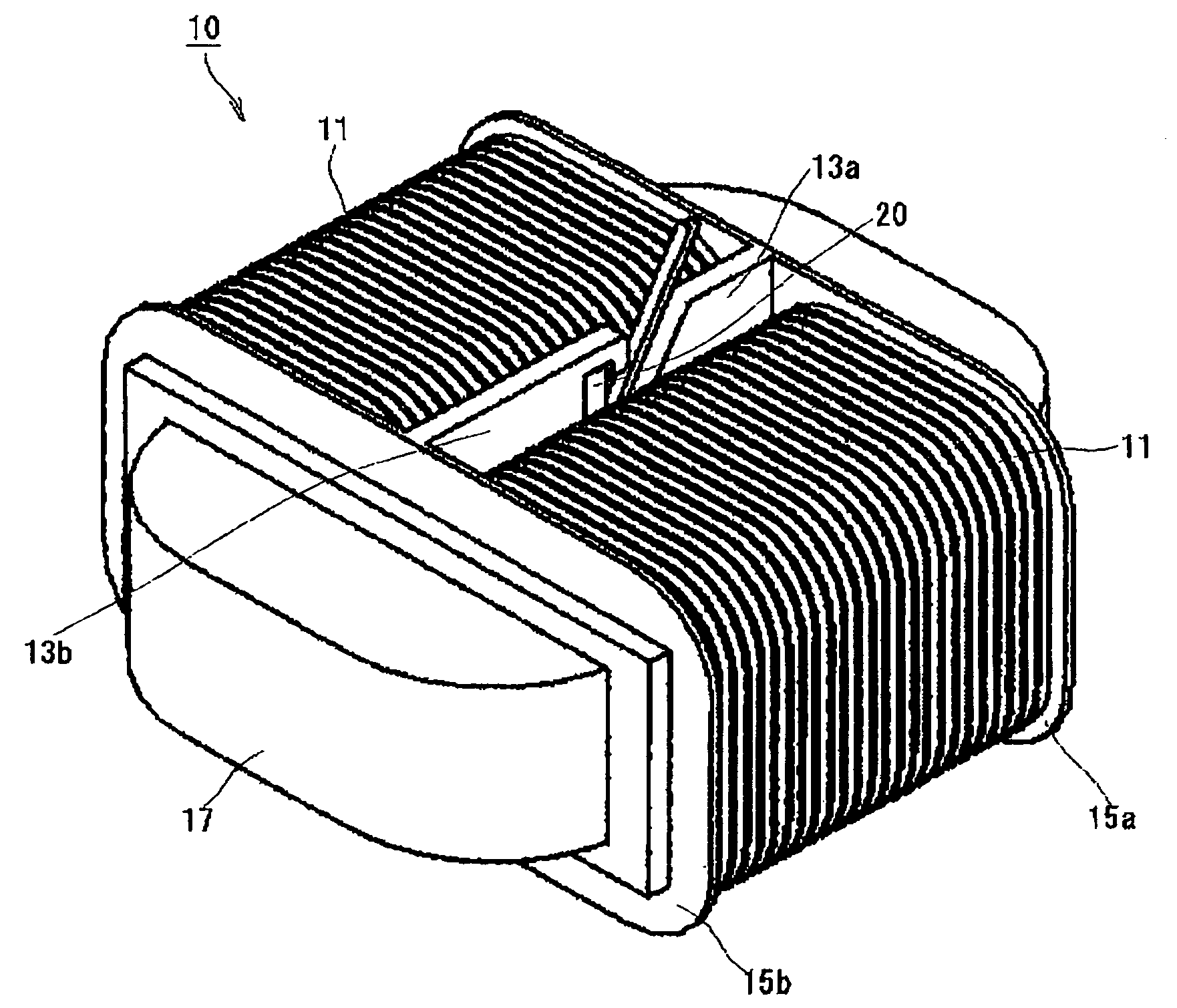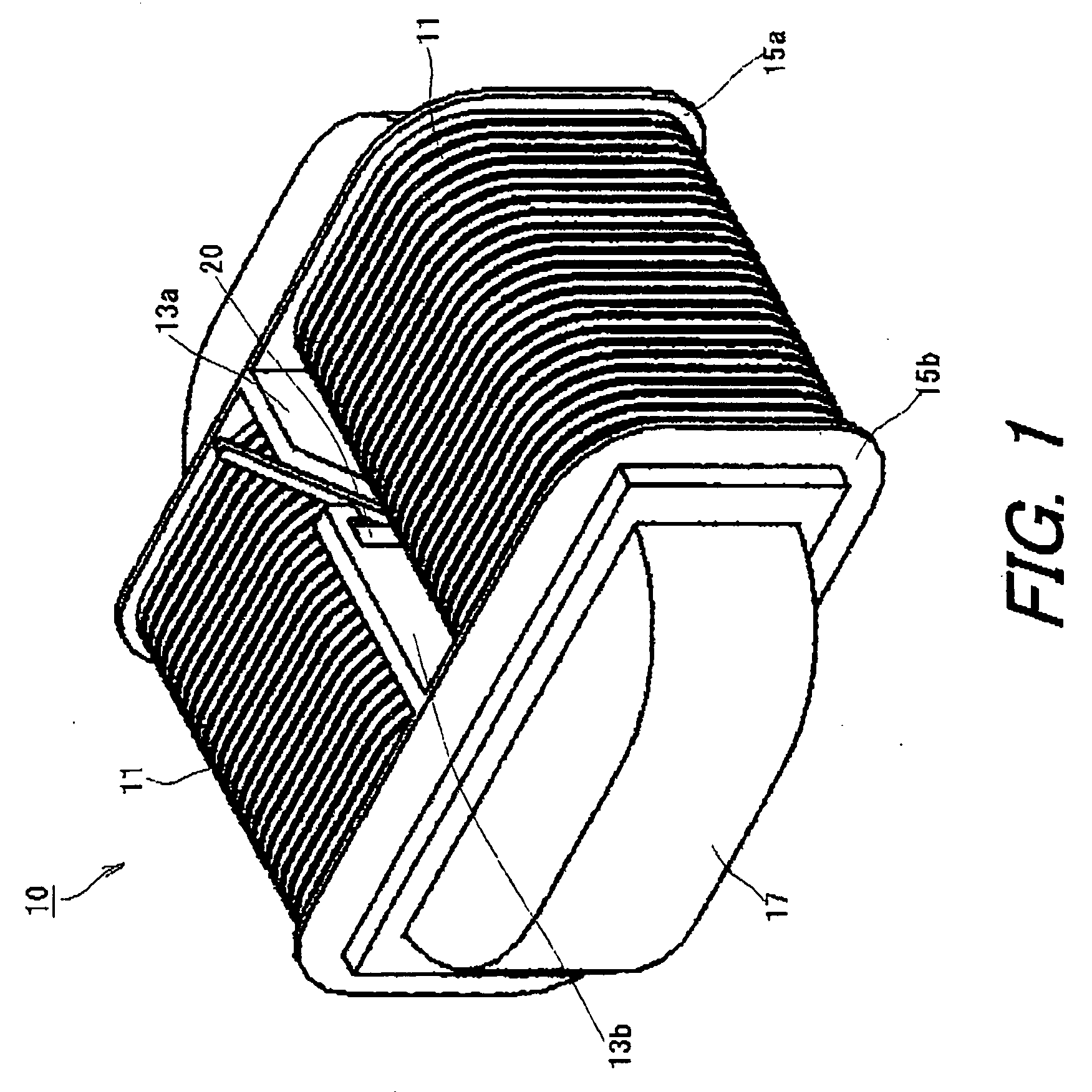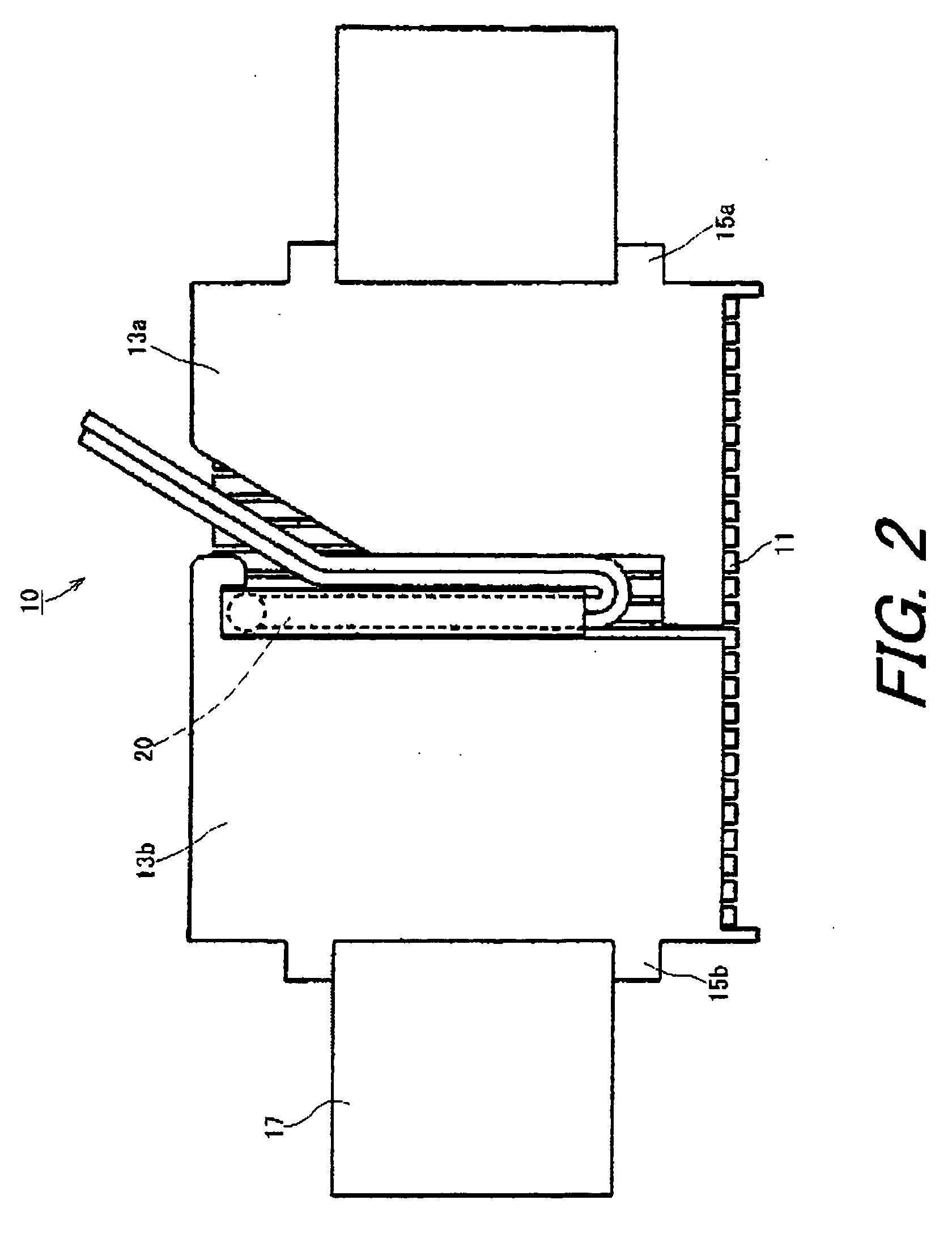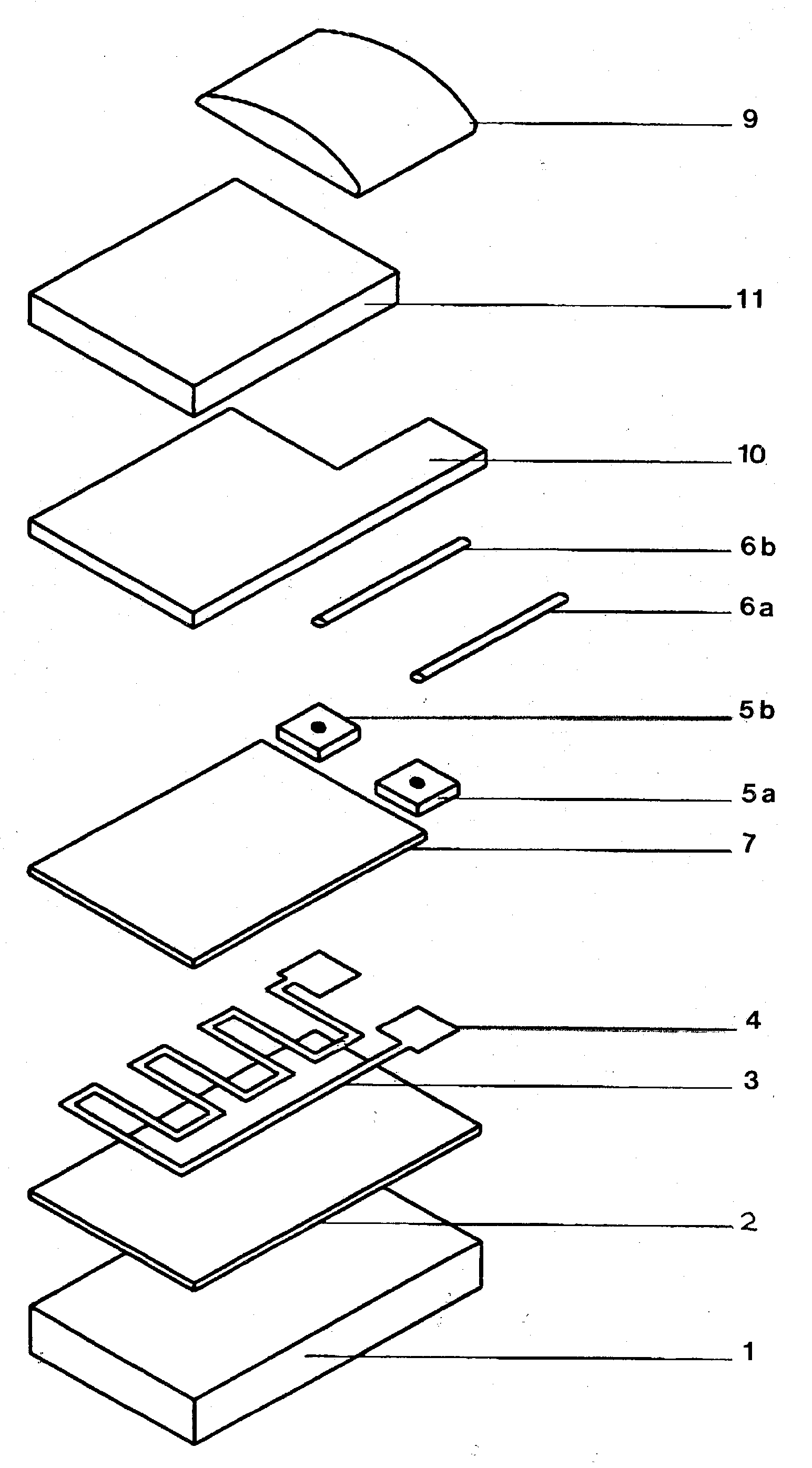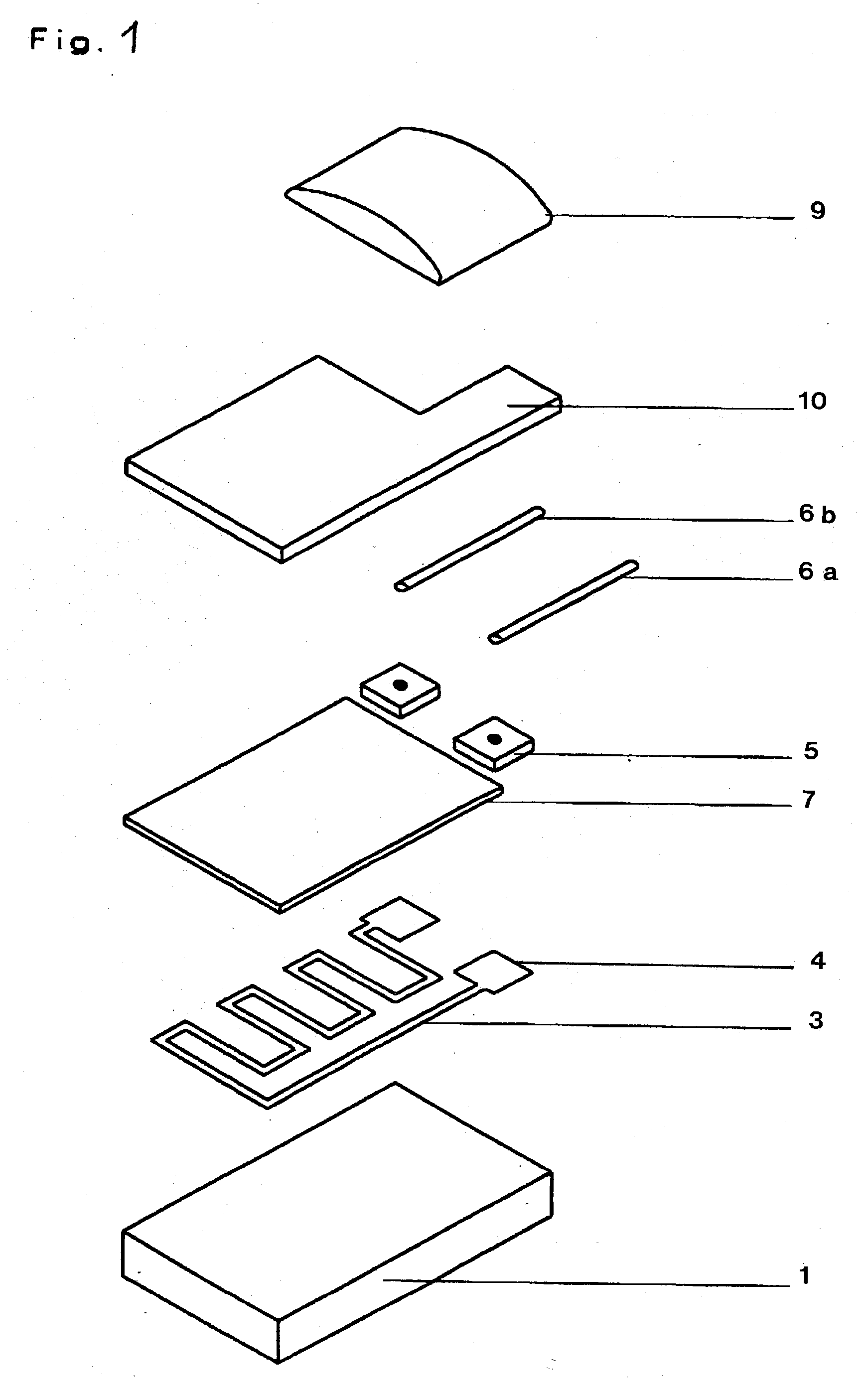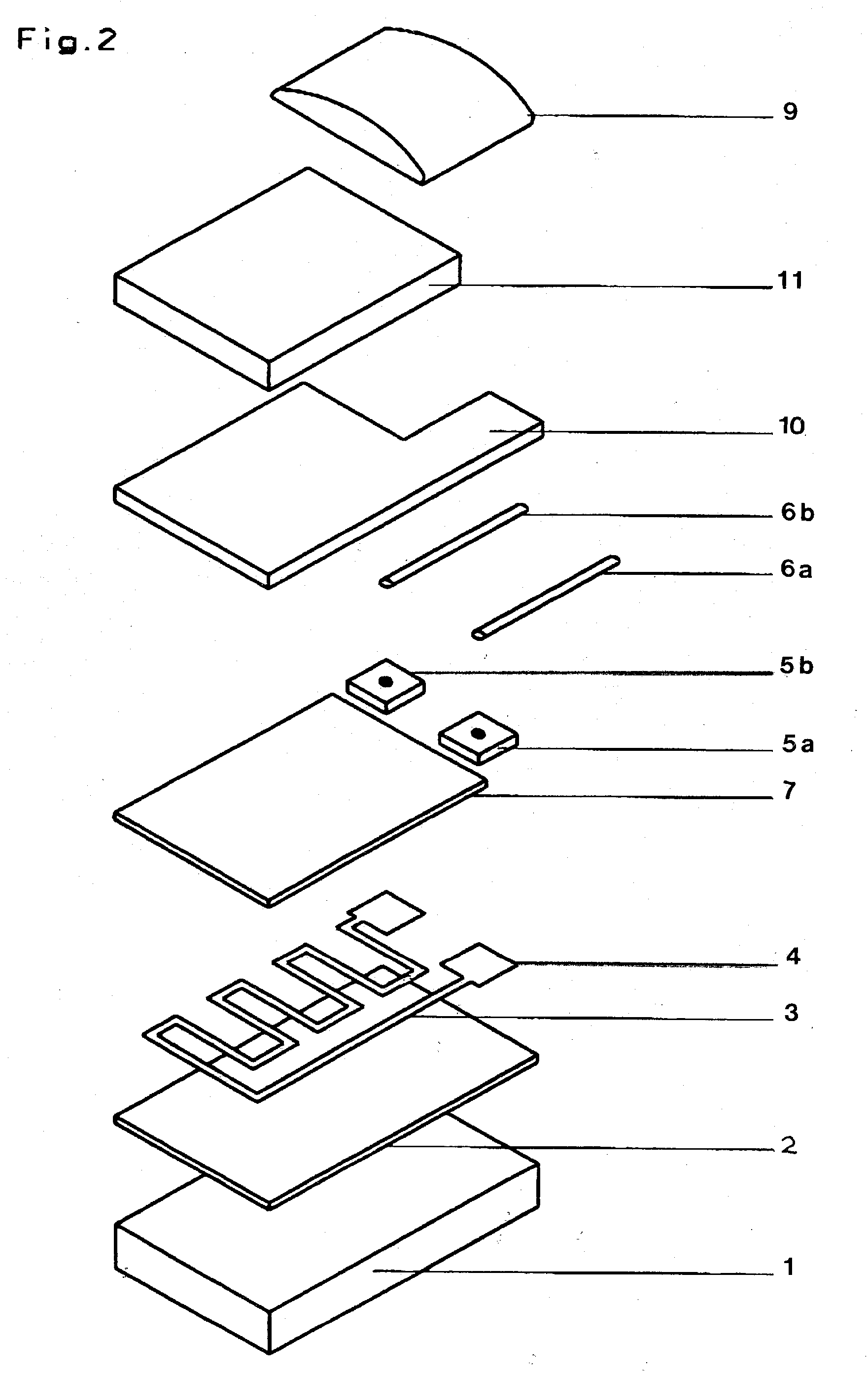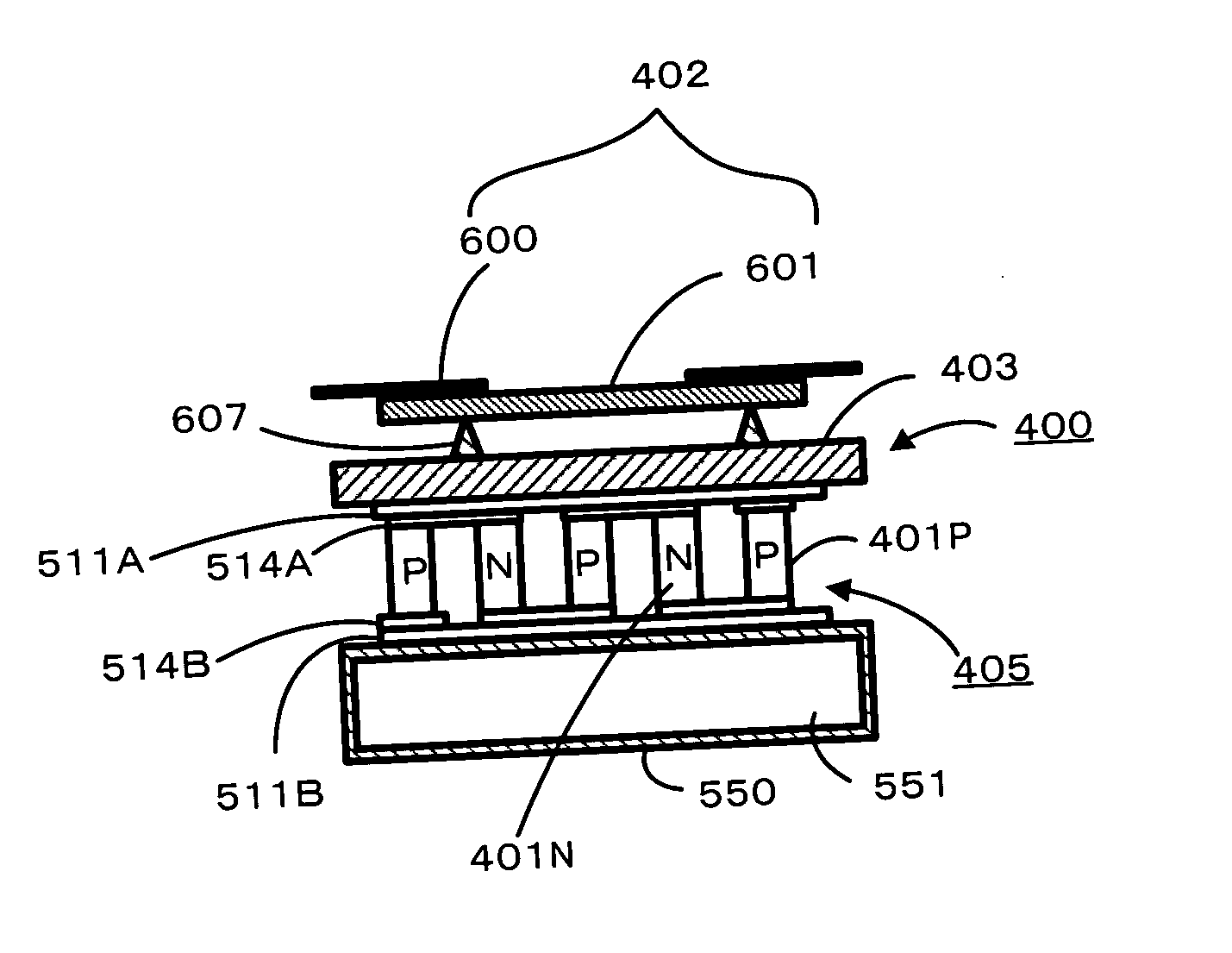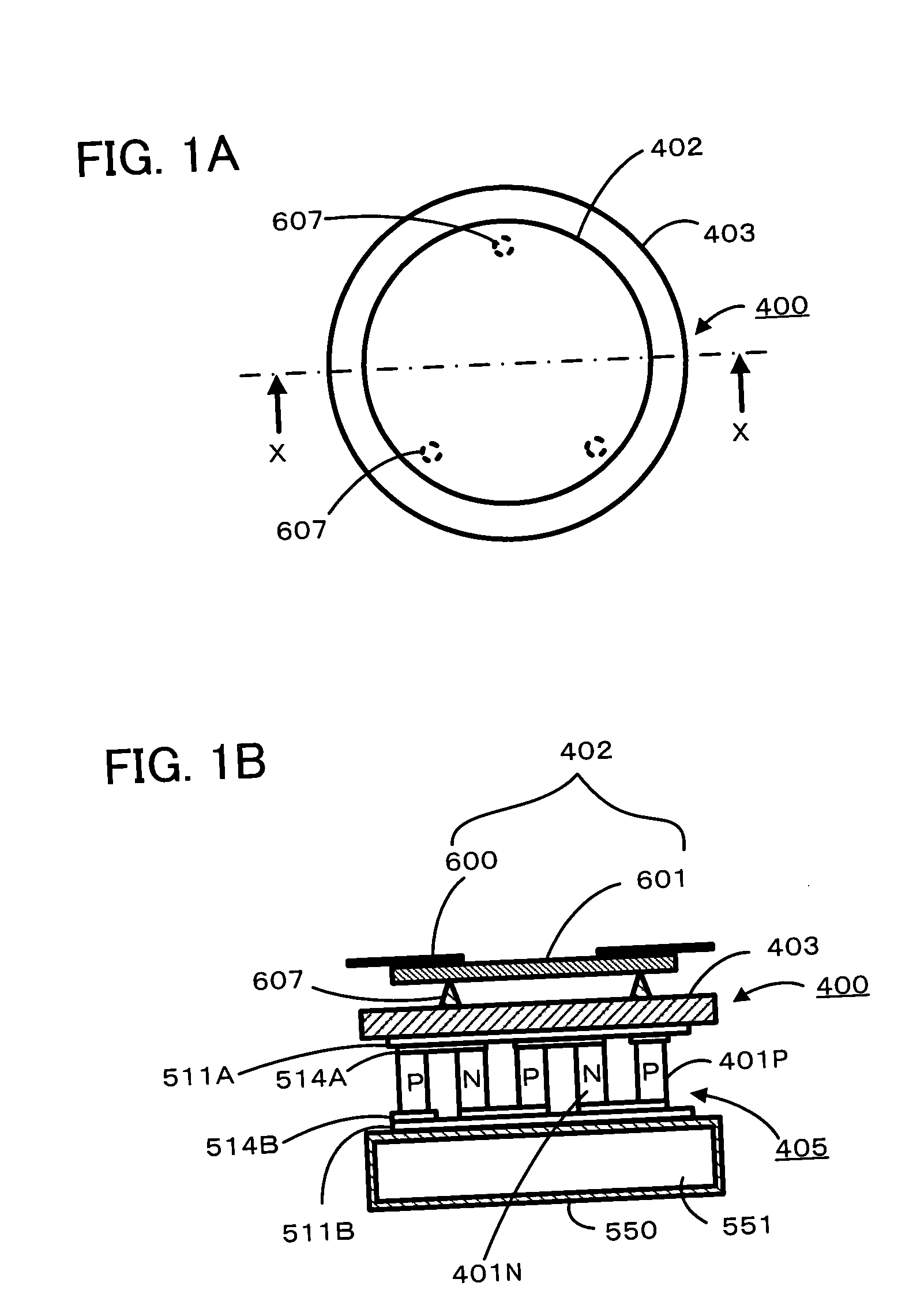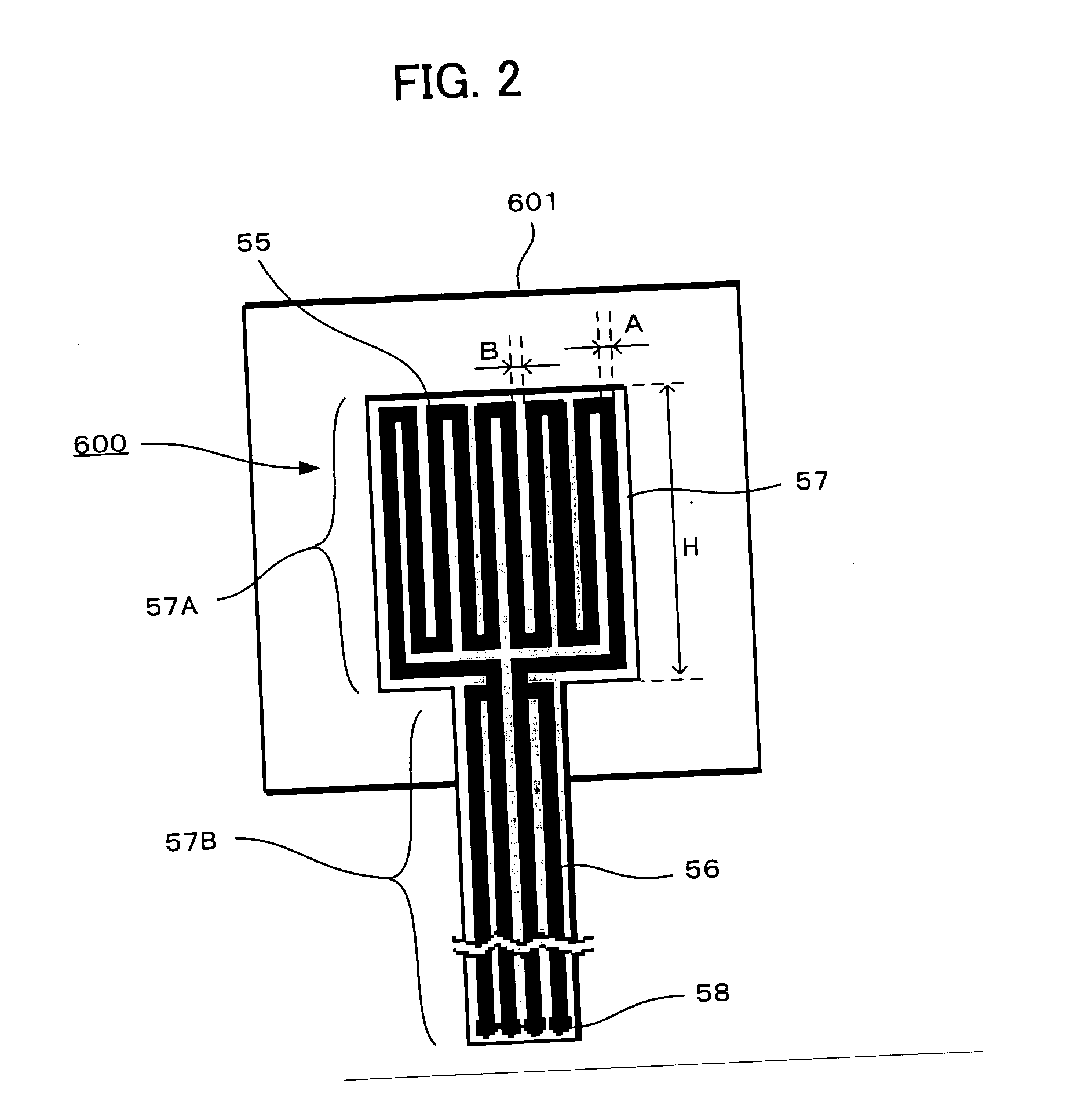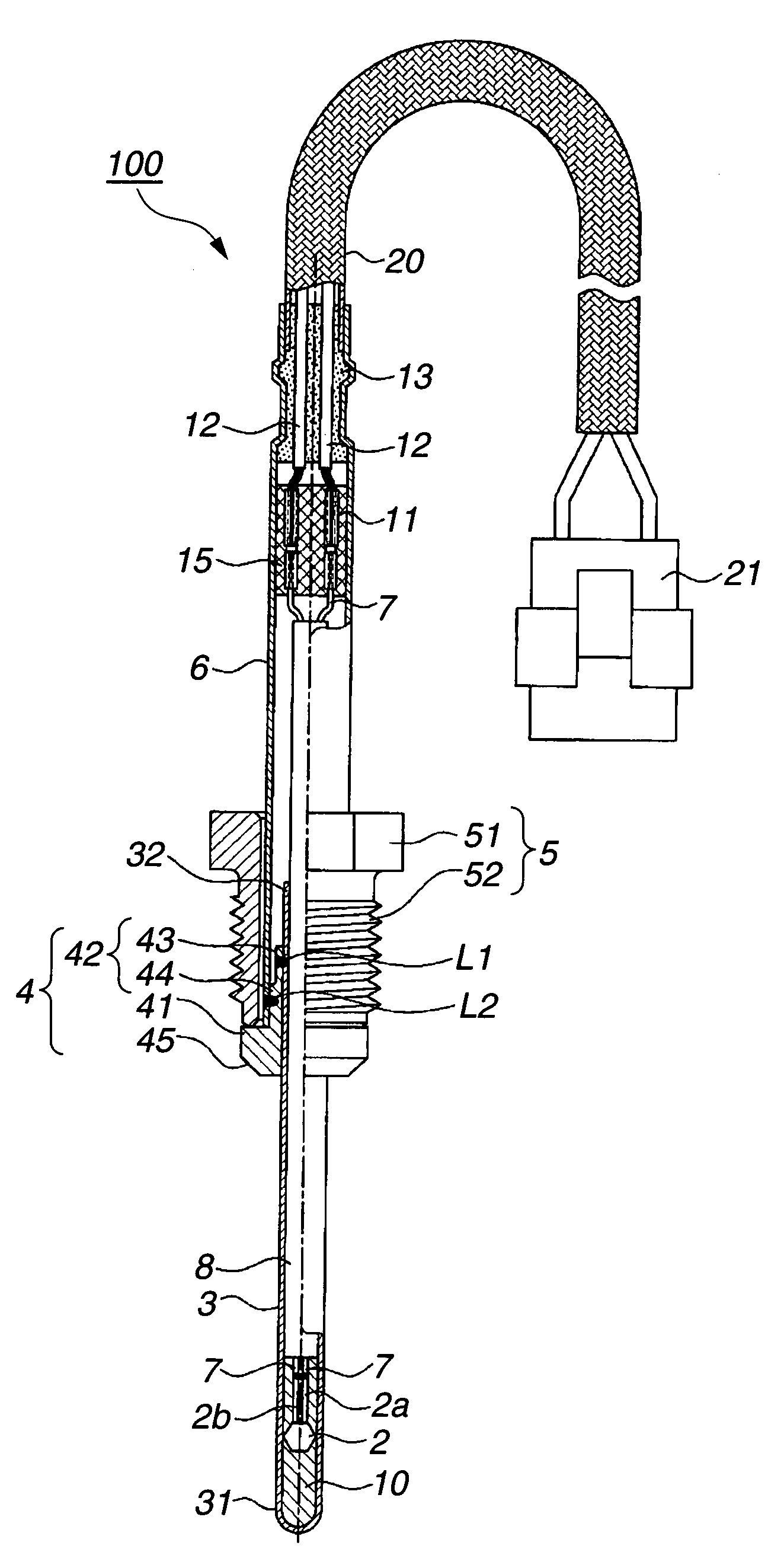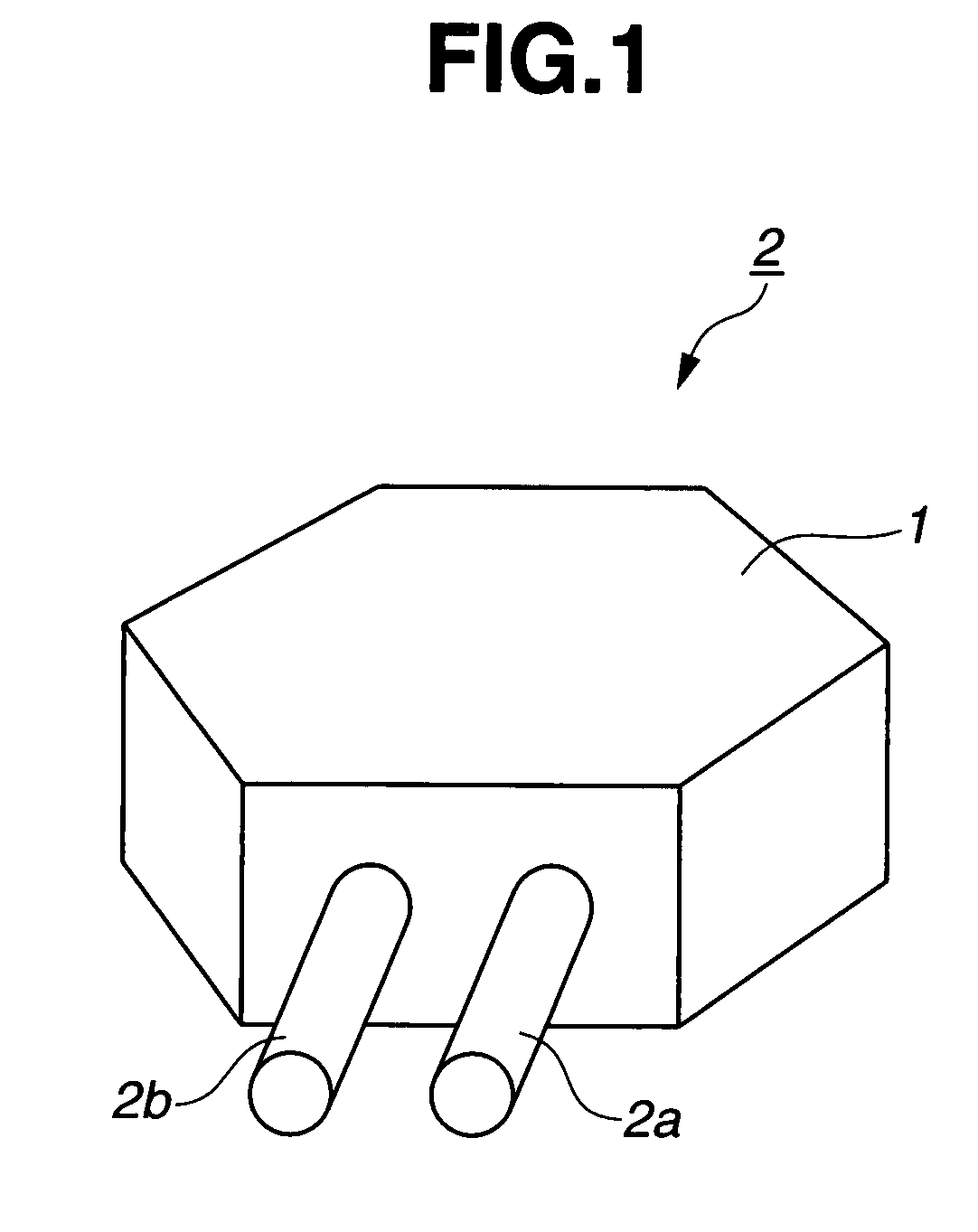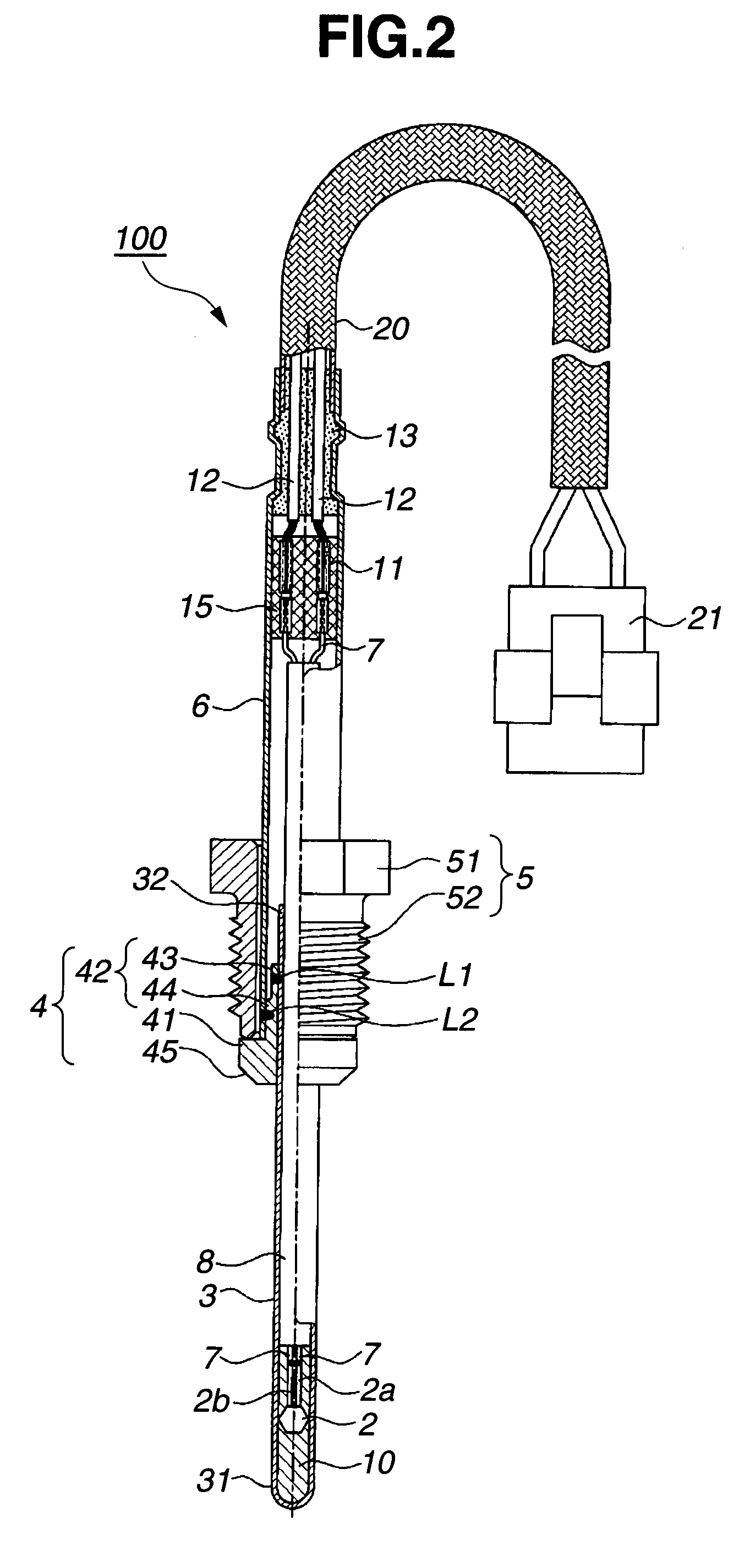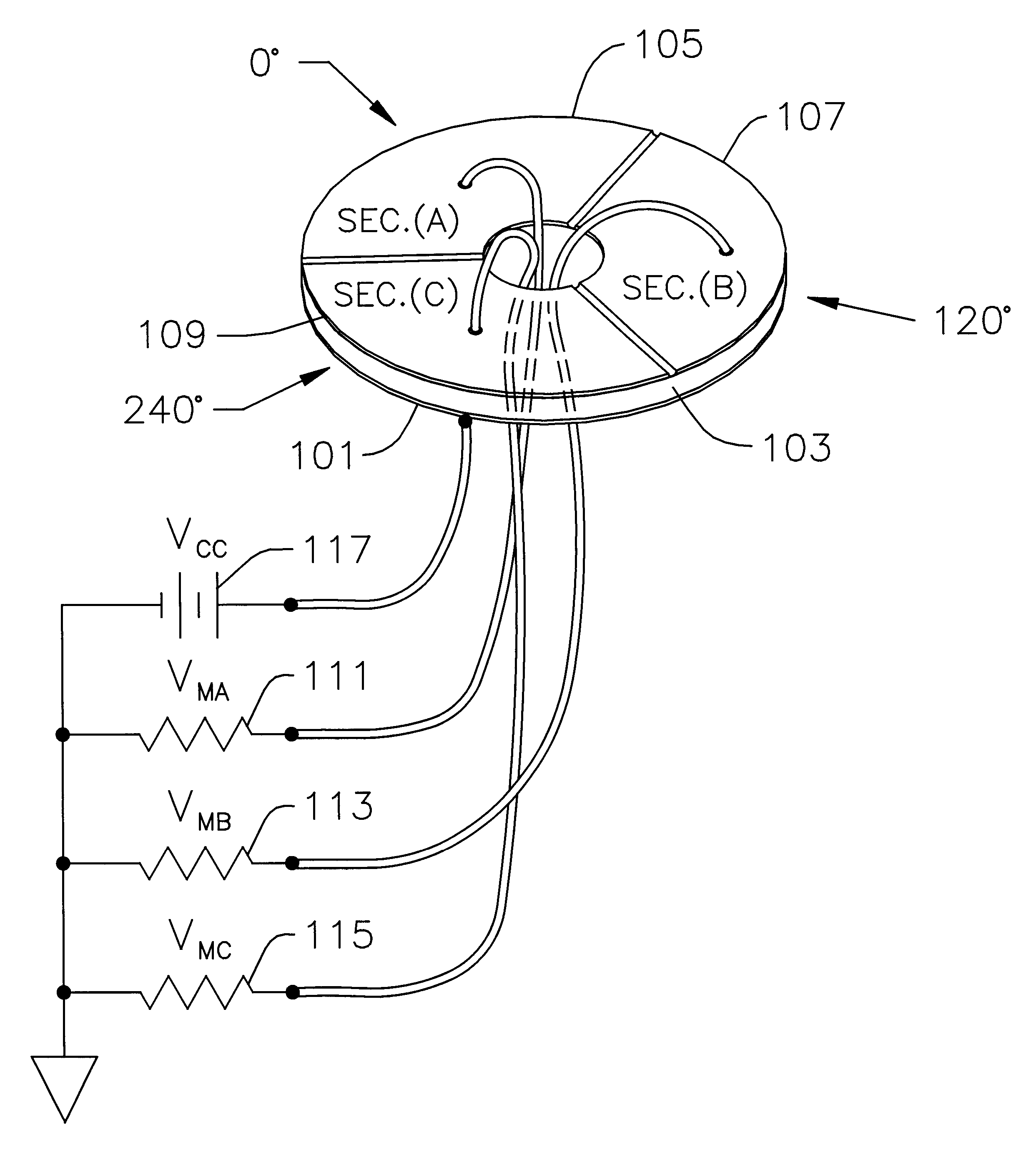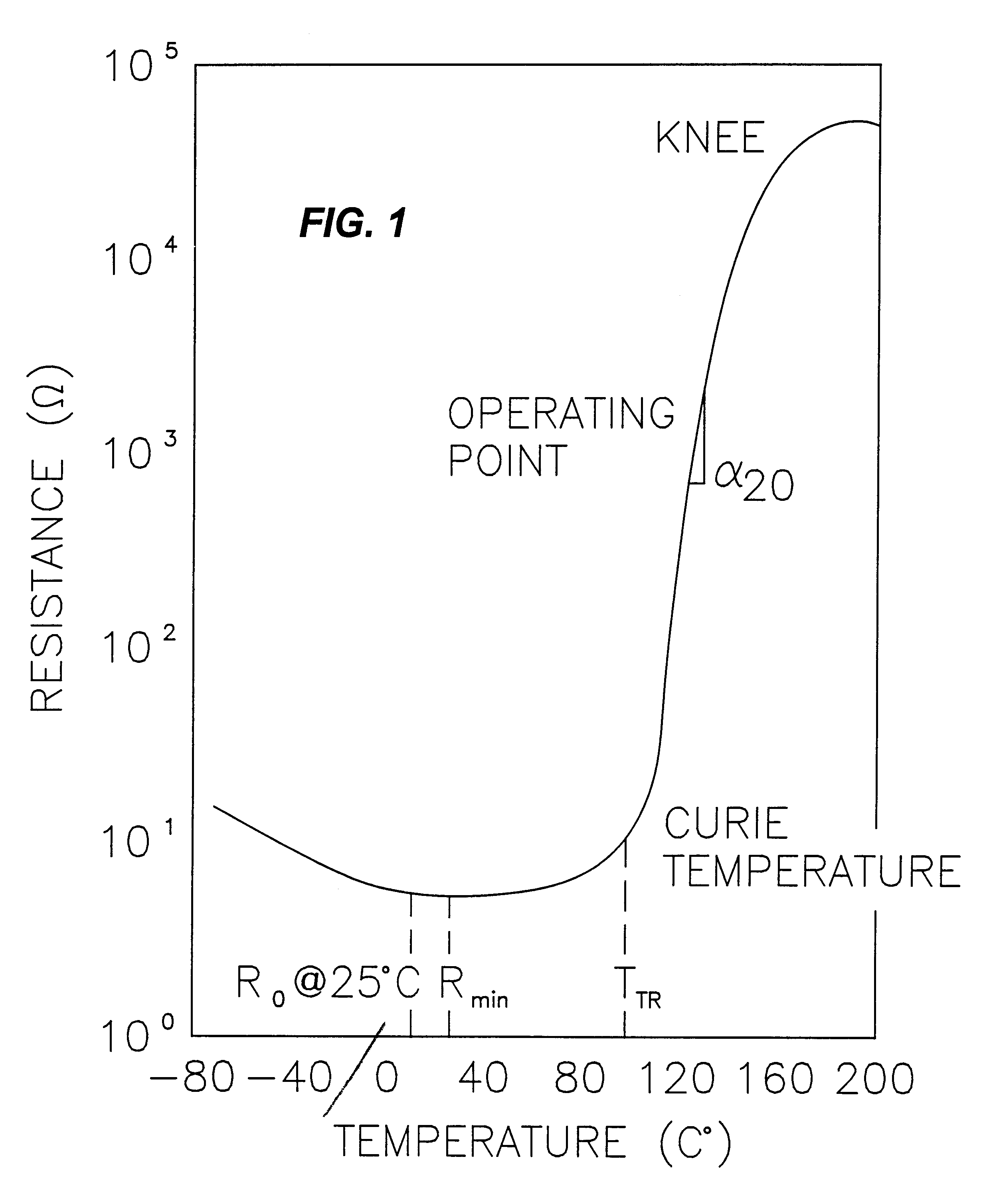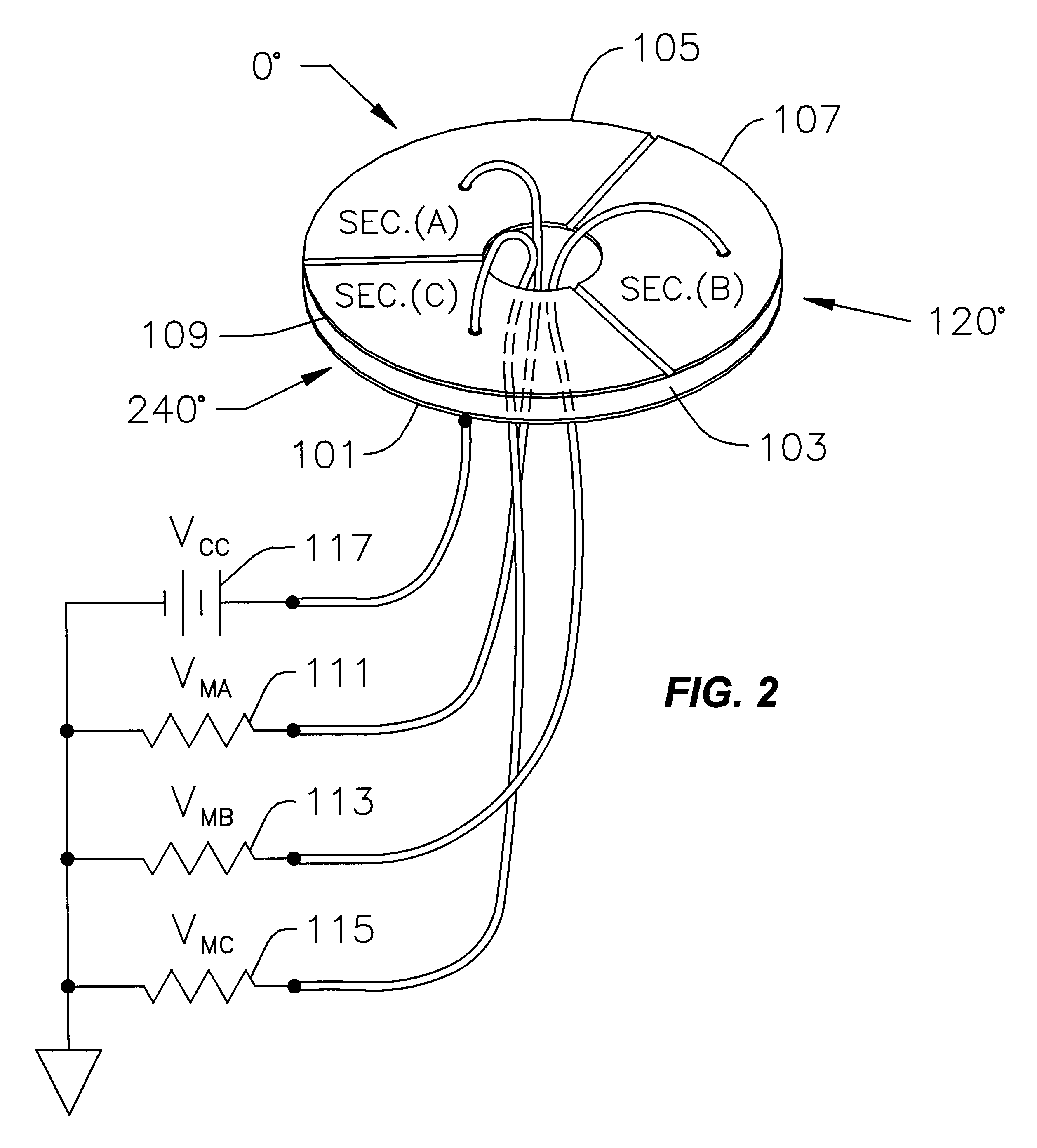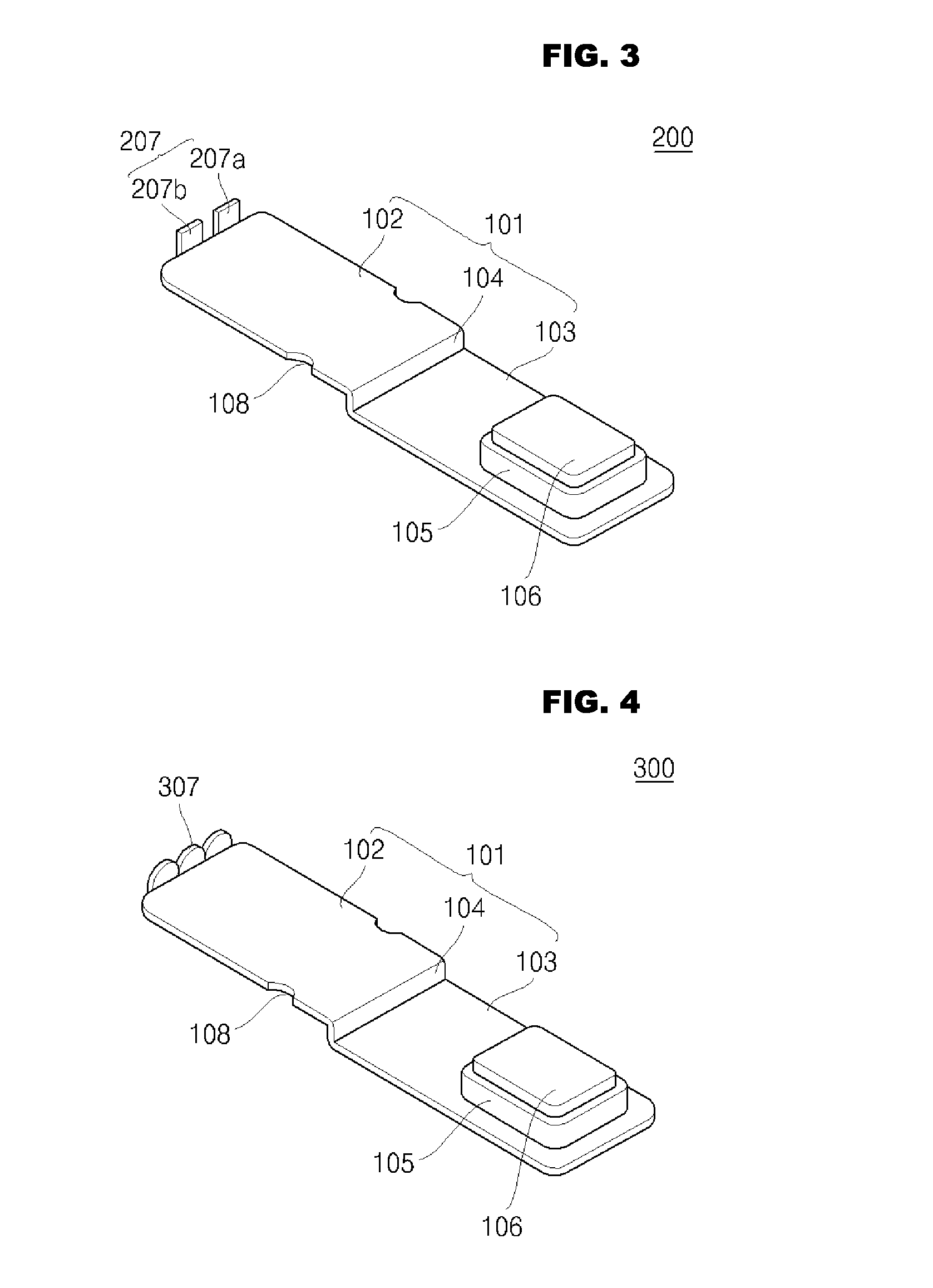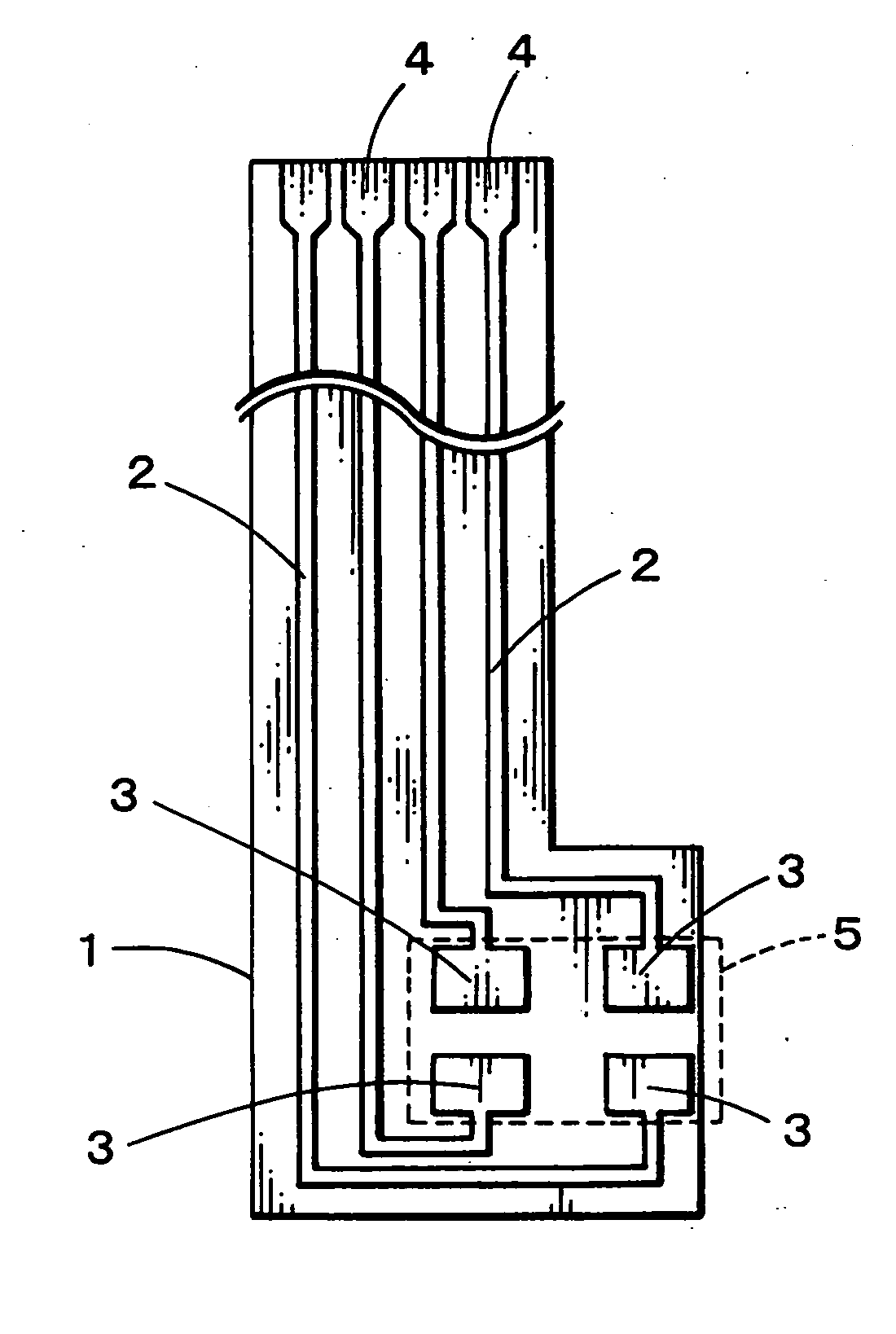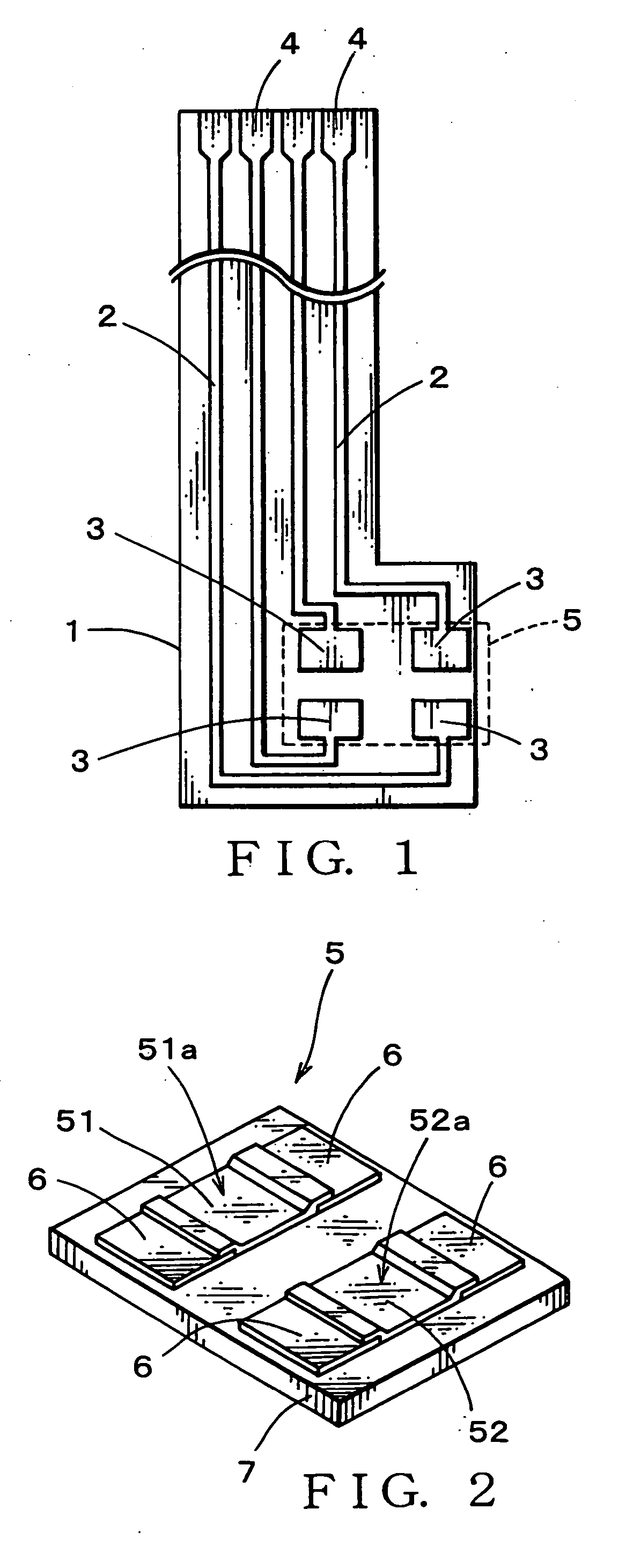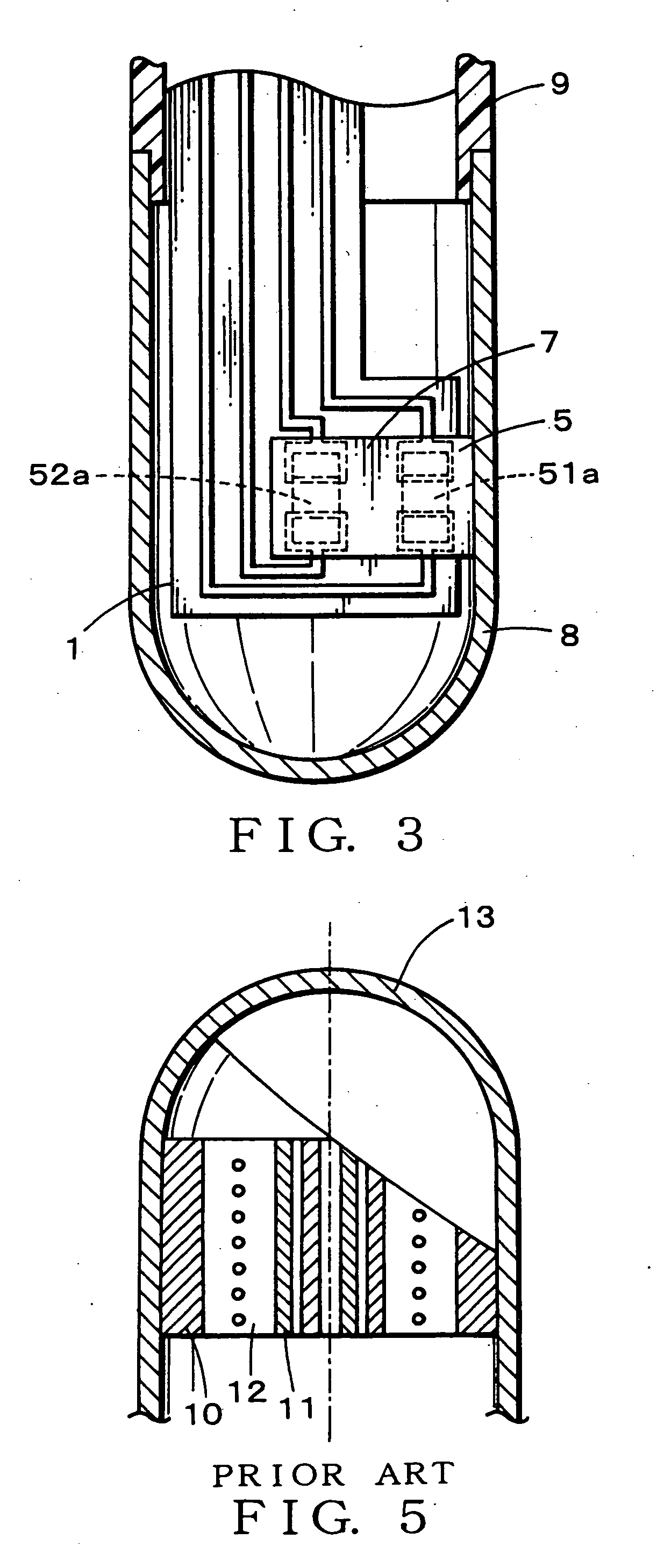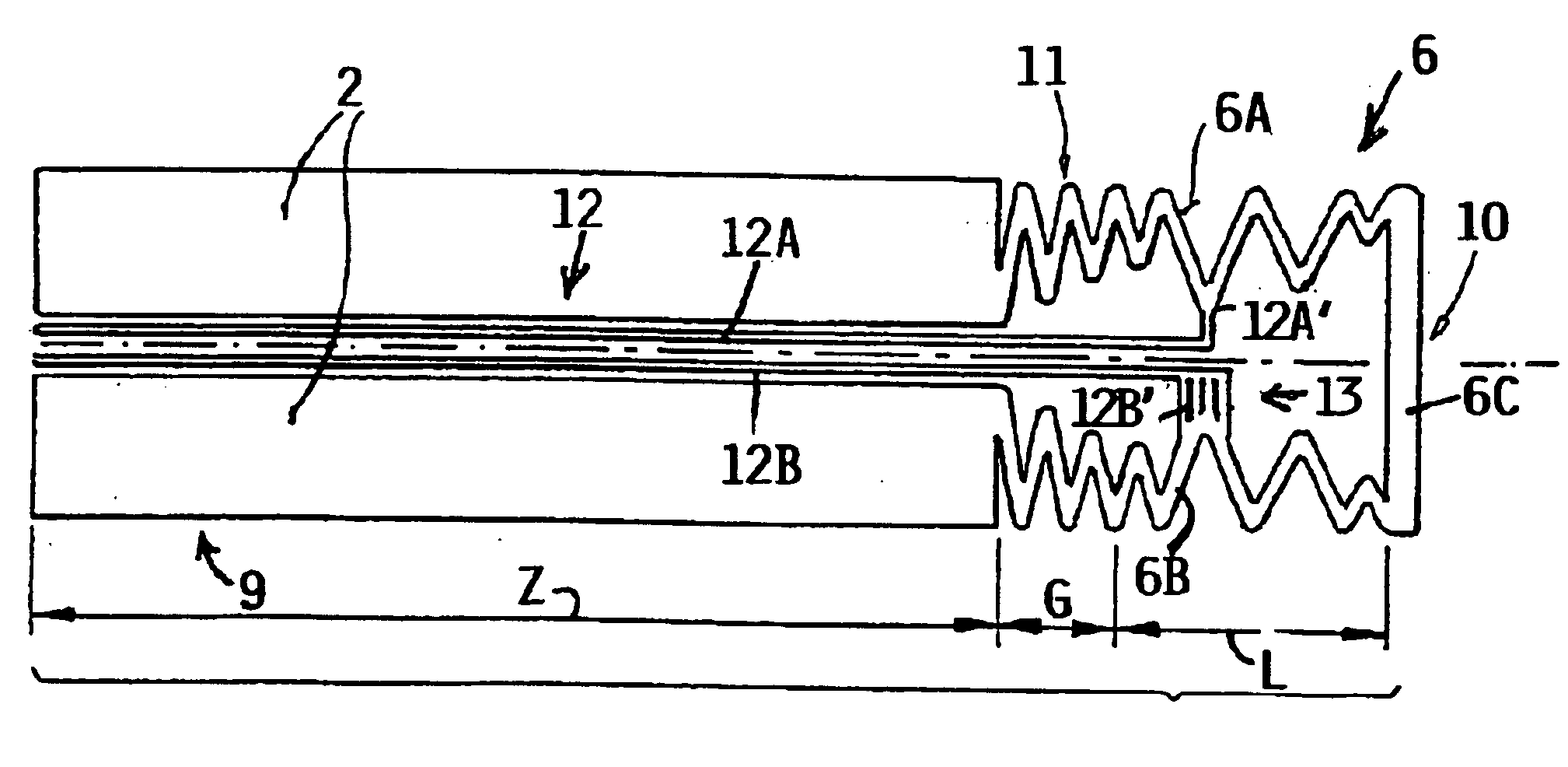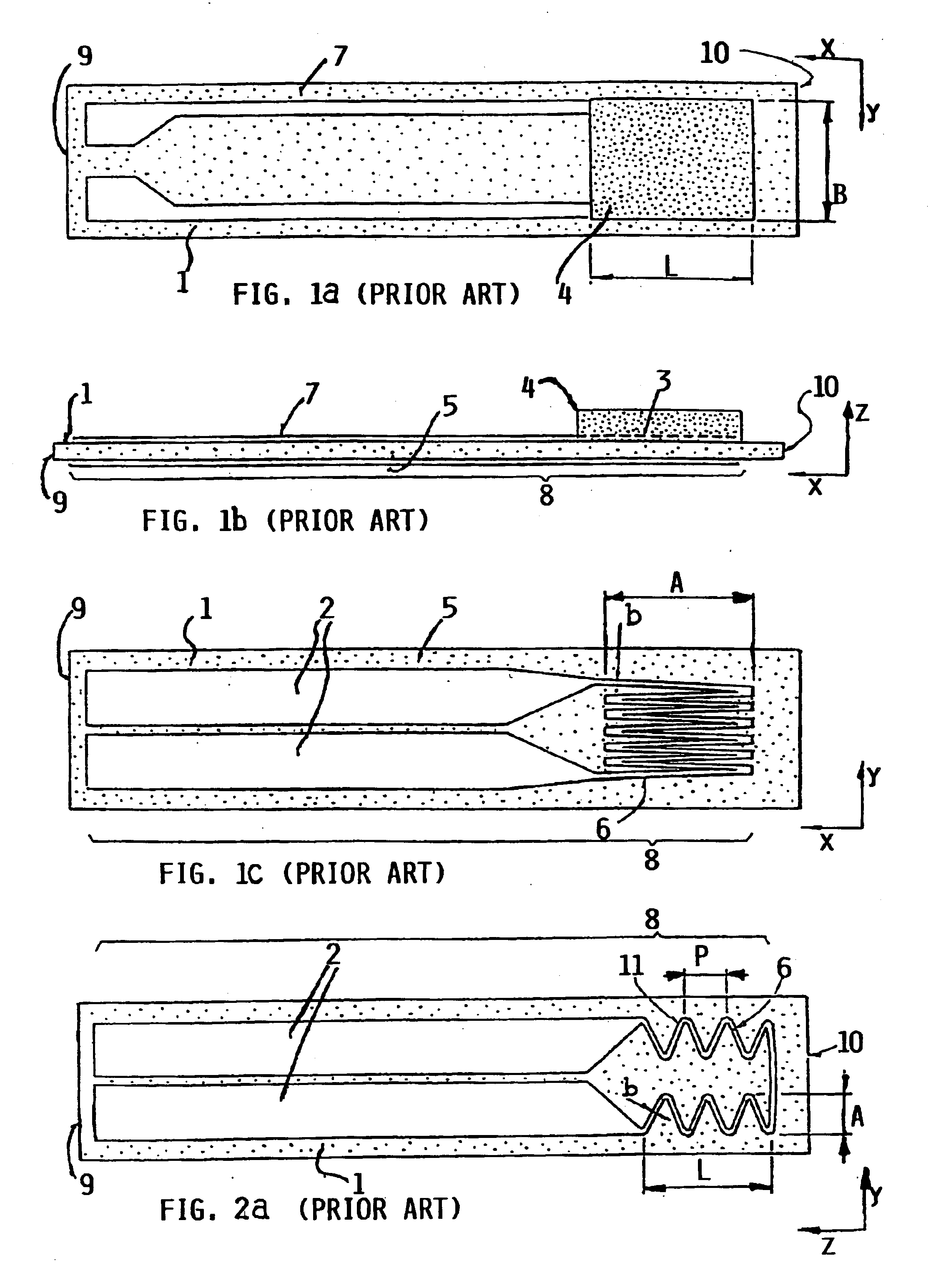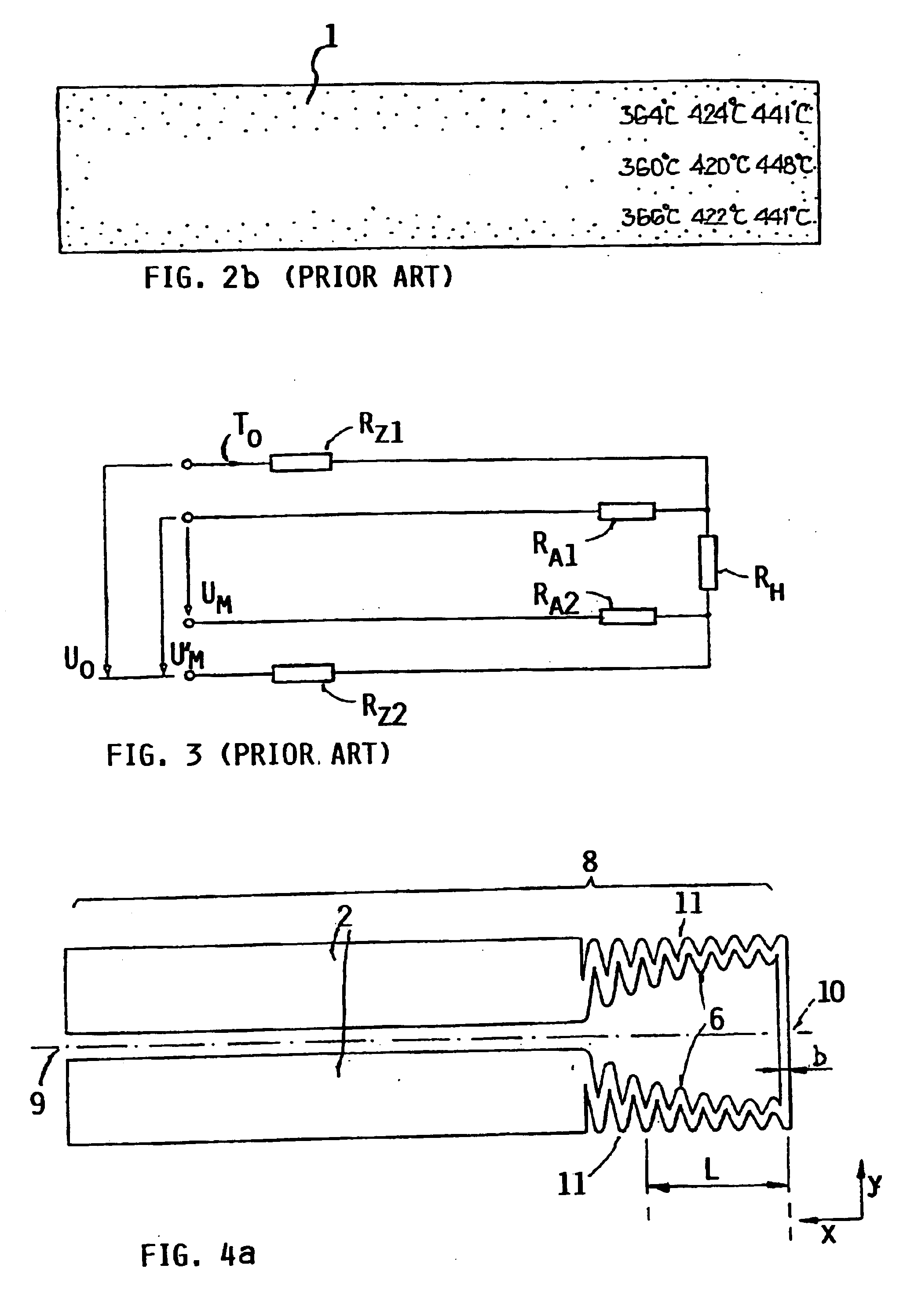Patents
Literature
141results about "Iron-filament ballast resistors" patented technology
Efficacy Topic
Property
Owner
Technical Advancement
Application Domain
Technology Topic
Technology Field Word
Patent Country/Region
Patent Type
Patent Status
Application Year
Inventor
Dual thin film precision resistance trimming
ActiveUS20100073122A1Improve efficiencyIncrease resistanceSemiconductor/solid-state device detailsVacuum evaporation coatingElectrical resistance and conductanceEngineering
A trimmable resistor for use in an integrated circuit is trimmed using a heater. The heater is selectively coupled to a voltage source. The application of voltage to the heater causes the heater temperature to increase and produce heat. The heat permeates through a thermal separator to the trimmable resistor. The resistance of the trimmable resistor is permanently increased or decreased when the temperature of the resistor is increased to a value within a particular range of temperatures.
Owner:STMICROELECTRONICS SRL +1
Thermistor temperature sensor
InactiveUS6899457B2Avoid breakingImprove vibrationThermometers using electric/magnetic elementsNegative temperature coefficient thermistorsEngineeringThermistor
An insulator 6 for holding electrode wires 4 is provided between a thermistor element 3 and a sheathed pin 5 which is a wiring, and the electrode wires 4, which are inserted into hole portions 6a of the insulator 6, are held therein not bonded to the insulator, whereby the vibration resistance of the electrode wires of the thermistor element is improved so that breaking of the electrode wires is prevented.
Owner:DENSO CORP
Temperature sensor and method of producing the temperature sensor
ActiveUS20080205484A1Avoid breakingImprove breathabilityThermometer detailsLine/current collector detailsPorosityElectrical resistance and conductance
In a temperature sensor having a temperature sensitive element, a sheath pin connected to the temperature sensitive element, and a cover case. The cover case, filled with a filler, accommodates the temperature sensitive element and the sheath pin. A hardening temperature of the filler is not less than an actual usage environment of the temperature sensor. Another temperature sensor has a temperature sensitive element exposed at a high temperature of not less than 750° C., a thermistor element, a sheath pin, an anti-vibration filler, and a metal cover case fixed to an end part of the sheath pin. The metal cover case accommodates the sheath pin and the thermistor element. The filler is made of a porous insulation material having a pore ratio within a range of 30 to 70% and filled around the thermistor element in the metal cover case.
Owner:DENSO CORP
Temperature sensor and method of manufacturing
ActiveUS7855632B1Improved property against impactIncrease vibrationThermometer detailsThermometers using electric/magnetic elementsEngineeringElectrical and Electronics engineering
A temperature sensor includes an autonomous sensing element and a plurality of conductive wires connected to the sensing element. An electrical insulator surrounds the sensing element and the conductive wires for firmly holding the sensing element and conductive wires. The insulator includes substantially crushed and compacted powder insulation. A tube encases the insulator in a compressed manner and has a first end, a second end, a first portion having a first inside diameter located in the proximity of the first end and a second portion having a second inside diameter. The second inside diameter being greater than the first inside diameter. The sensing element is positioned within the second portion of the tube. Methods of manufacturing a temperature sensor are also included.
Owner:WATLOW ELECTRIC MFG
End seal design for temperature sensing probes
InactiveUS7060949B1Efficiently provideThermometer detailsOhmic-resistance waterproof/air-tight sealsEngineeringHeating element
An end seal for a temperature sensing probe. Electrical interface wiring is passed through a restraining element and is operatively coupled to a temperature sensing element or heater element mounted in the sheath. The sheath is formed around the restraining element in a shape that provides a net force inward as temperature variations expand and contract the restraining element.
Owner:WATLOW ELECTRIC MFG
Thin-film temperature-sensitive resistor material and production process thereof
Described are a thin-film temperature-sensitive resistor material which comprises, at a temperature-sensitive resistor portion, a mixed crystal of a nitride and oxide of a transition metal such as vanadium preferably, that represented by the formula: MNxOy wherein 0<x<1, and 2< / =y< / =13 / 6, simultaneously exhibits a high temperature coefficient of resistance and a low specific resistance at about room temperature, and has excellent sensitivity at about room temperature; and a process for the production of a thin-film temperature-sensitive resistor material, which comprises forming its temperature-sensitive resistor portion by using a gas-atmosphere composed mainly of a nitrogen gas preferably, a mixed gas composed of nitrogen, argon and oxygen, and has a flow rate ratio of nitrogen to oxygen (nitrogen / oxygen) of 14 / 1 to 23 / 1.
Owner:NEC CORP
Flexible Thin Metal Film Thermal Sensing System
InactiveUS20100118916A1Current responsive resistorsThermometers using electric/magnetic elementsThin metalConductive materials
A flexible thin metal film thermal sensing system is provided. A thermally-conductive film made from a thermally-insulating material is doped with thermally-conductive material. At least one layer of electrically-conductive metal is deposited directly onto a surface of the thermally-conductive film. One or more devices are coupled to the layer(s) to measure an electrical characteristic associated therewith as an indication of temperature.
Owner:NASA
Platinum temperature sensor and its method of production
InactiveUS6653926B1Connected deterioration of property is preventedEnvelope/housing resistor manufactureThermometers using electric/magnetic elementsPlatinumMetallurgy
A Platinum temperature sensor comprises a ceramic substrate and a platinum thin-film resistor applied to said ceramic substrate, a ceramic cover layer and a connecting layer generated from a ceramic green layer by pressure and temperature treatment. The ceramic cover layer is connected with the ceramic substrate in such a way via the connecting layer that the platinum thin-film resistor is sealingly encapsulated with regard to the environment.
Owner:BORGWARNER BERU SYST
Precision temperature probe having fast response
InactiveUS6592253B2Thermometer detailsThermometers using electric/magnetic elementsTransducerResistive element
A temperature probe (10) including a cylindrical thermally conductive housing (10) and a temperature sensor (18) employing a resistive temperature element (22) mounted therein. The temperature sensor (18) is mounted at one end of the housing (12) by a thermally conductive potting material (50). Signal wires (36) electrically couple to the resistive element (22) extend through an elongated insulated member (30) and out of an end of the housing (12) opposite the sensor (18). Changes in the temperature of the housing are quickly transferred to the resistive temperature element (22) through the conductive potting material (50). In one embodiment, the probe (10) is combined with a pressure transducer (60) to provide a pressure and temperature sensing device.
Owner:NORTHROP GRUMMAN SYST CORP
Precision temperature probe having fast response
InactiveUS20030067960A1Thermometer detailsThermometers using electric/magnetic elementsTransducerEngineering
A temperature probe (<bold>10< / highlight>) includihermally conductive housing (10) and a temperatureld>10< / highlight>) and a temperature sensor (<boldment (22) mounted therein. The temperature sensor element (<bold>22< / highlight>) mounted therein. Ta thermally conductive potting material (50). Signunted at one end of the housing (<bold>12< / highlig element (22) extend through an elongated insulatebold>50< / highlight>). Signal wires (<bold>36< / high) opposite the sensor (18). Changes in the temperant (<bold>22< / highlight>) extend through an elonga resistive temperature element (22) through the cot of an end of the housing (<bold>12< / highlight>) the probe (10) is combined with a pressure transds in the temperature of the housing are quickly trnsing device. old>22< / highlight>) through the conductive potting material (<bold>50< / highlight>). In one embodiment, the probe (<bold>10< / highlight>) is combined with a pressure transducer (<bold>60< / highlight>) to provide a pressure and temperature sensing device.
Owner:NORTHROP GRUMMAN SYST CORP
Thermostor-type temperature sensor
InactiveUS20020084884A1Improve usabilityAvoid breakingThermometers using electric/magnetic elementsNegative temperature coefficient thermistorsAdhesiveEngineering
The present invention provides a thermistor-type temperature sensor equipped with a thermistor element having a thermistor section and electrode wires for acquiring thermistor signals that prevent breakage of electrode wires caused by high-frequency vibrations. Thermistor element (10) is equipped with thermistor section (11) and electrode wires (12) and (13) made of a dispersion-strengthened material having for its main component platinum or platinum alloy, and is insulated and held in cylindrical metal case (40) having opening (42) on one end by means of insulating powder (50). A bottomed, cylindrical metal protective tube (60) houses metal case (40) so that its bottom (61) covers opening (42). Heat-resistant adhesive (70) is juxtaposed in a gap between metal case (40) and protective tube (60) so as to seal opening (42) to prevent insulting powder (50) from spilling into this gap from opening (42).
Owner:DENSO CORP
Interlaced rtd sensor for zone/average temperature sensing
InactiveUS20080224817A1Improve reliabilityGood repeatabilityThermometer detailsSemiconductor/solid-state device manufacturingEngineeringSemiconductor
A device for heating a semiconductor wafer comprises a heating element arranged to conduct heat toward the wafer. The heating element can extend along a heating element path. An RTD sensor loop can extend along an RTD sensor path. The RTD sensor path can be positioned along the heating element path to measure a temperature that corresponds to the heating element. The RTD sensor loop can measure an average temperature along the heating element. Portions of the RTD sensor can be interlaced between portions of the heating element. The heating element path can be arranged with interstices between portions of the heating element path, and portions of the RTD sensor path can be positioned within the interstices to interlace the RTD sensor loop with the heating element. The RTD sensor loop can comprise a soft metal that is resistant to oxidation and extends along the RTD sensor path.
Owner:SOKUDO CO LTD
Resistive temperature device (RTD) module with improved noise immunity
ActiveUS20050052274A1Improve noise immunityReduce delaysThermometer detailsCurrent interference reductionElectrical resistance and conductanceMultiplexer
An RTD system includes multiple pluralities of RTDs and RTD bank assembly to which each plurality of RTDs are connected. Each RTD bank assembly includes a current source for the RTDs connected thereto, a multiplexer switching system for switching the current source successively between the RTDs, and a measurement function for measuring the voltage drop across the RTDs produced by the current source. The system includes a circuit for determining resistance of the RTD from the current applied thereto and the voltage drop there across. The system further includes a plurality of low pass filters associated, respectively, with each RTD, wherein the low pass filters are charged before the voltage measurement is made. The system includes a precharging arrangement where the low pass filter associated with the next RTD in a voltage sampling sequence is precharged, so that the delay between sampling of the voltage from the low pass filters associated with successive RTDs is significantly reduced. The system further includes low pass filters associated with calibration resistors which permit sampling of voltage values from the RTDs prior to the low pass filters associated therewith being fully charged, without error which would otherwise occur.
Owner:SCHWEITZER ENGINEERING LABORATORIES
Passive SAW-based hydrogen sensor and system
ActiveUS20070052516A1Small spacingFilm conductivity goes up dramaticallyAnalysing fluids using sonic/ultrasonic/infrasonic wavesMaterial nanotechnologyHydrogen concentrationSelf-assembled monolayer
A hydrogen detecting system is characterized by a passive surface acoustic wave (SAW) sensor. The sensor includes a piezoelectric substrate having a self assembled monolayer arranged on at least a portion of the substrate to create a hydrophobic surface. A palladium nanocluster thin film is deposited on the monolayer and an interdigital SAW transducer is disposed upon the piezoelectric substrate for conversion of an RF signal into an acoustic wave and vice versa. At least one additional SAW element is also disposed on the substrate and spaced from the SAW transducer. The SAW element receives a signal from the SAW transducer and produces a response signal. The response signal is modified by the palladium nanocluster film due to a change in conductivity of the palladium nanocluster film upon exposure to hydrogen. This change in the response signal is measured by an interrogator, and yields a measure of the hydrogen concentration to which the sensor was exposed.
Owner:SENSANNA
Strain gauges
InactiveUS7116209B2Rapid and scalable and economicHigh sensitivityLayered productsForce measurementElectrical resistance and conductanceSemiconductor materials
The present invention provides a strain gauge comprising a resistive layer. The resistive layer comprises metallic or semiconducting nanoparticles or aggregates thereof in which the nanoparticles or aggregates thereof are separated by insulating and / or semiconducting material.
Owner:COMMONWEALTH SCI & IND RES ORG +1
Dual thin film precision resistance trimming
ActiveUS8242876B2Improve efficiencyIncrease resistanceSemiconductor/solid-state device detailsVacuum evaporation coatingEngineeringVoltage source
A trimmable resistor for use in an integrated circuit is trimmed using a heater. The heater is selectively coupled to a voltage source. The application of voltage to the heater causes the heater temperature to increase and produce heat. The heat permeates through a thermal separator to the trimmable resistor. The resistance of the trimmable resistor is permanently increased or decreased when the temperature of the resistor is increased to a value within a particular range of temperatures.
Owner:STMICROELECTRONICS SRL +1
Method and apparatus for sensing and measuring plural physical properties, including temperature
InactiveUS6639506B1Volume/mass flow by thermal effectsResistor terminals/electrodesEngineeringPositive temperature
A method and device, employing positive-temperature-coefficient material, for sensing plural properties of a fluid, such as temperature and flow rate. Can be used in a wind gauge or in a device for sensing position of mechanical elements such as valve diaphragms. Single sensor device, with energy and ohmic resistors, produces two voltages which completely characterize temperature and flow rate of fluid under study.
Owner:TWIA
Overheat Protection Device and Electrical System Having Same
InactiveUS20070210893A1Decrease in power efficiencyEasy to detectCell temperature controlNegative temperature coefficient thermistorsElectrical resistance and conductanceEngineering
The present invention provides an overheat protection device which is capable of effectively preventing a secondary battery from overheating. In the overheat protection device (20), a variable resistive element(s) (11) of which resistance varies depending on a temperature is located on and thermally combined with a certain position(s) of an electrical system (1), and a switching element (15) for controlling a current depending on an applied voltage thereto is arranged so as to control the current flowing through the electrical system (1). When the certain position of the electrical system (1) comes to be under a high temperature condition, the variable resistive element (11) interrupts the current flowing through the electrical system (1) by changing the applied voltage to the switching element (15).
Owner:LITTELFUSE JAPAN GK
Passive SAW-based hydrogen sensor and system
ActiveUS7268662B2Small spacingFilm conductivity goes up dramaticallyAnalysing fluids using sonic/ultrasonic/infrasonic wavesMaterial nanotechnologyHydrogen concentrationSelf-assembled monolayer
A hydrogen detecting system is characterized by a passive surface acoustic wave (SAW) sensor. The sensor includes a piezoelectric substrate having a self assembled monolayer arranged on at least a portion of the substrate to create a hydrophobic surface. A palladium nanocluster thin film is deposited on the monolayer and an interdigital SAW transducer is disposed upon the piezoelectric substrate for conversion of an RF signal into an acoustic wave and vice versa. At least one additional SAW element is also disposed on the substrate and spaced from the SAW transducer. The SAW element receives a signal from the SAW transducer and produces a response signal. The response signal is modified by the palladium nanocluster film due to a change in conductivity of the palladium nanocluster film upon exposure to hydrogen. This change in the response signal is measured by an interrogator, and yields a measure of the hydrogen concentration to which the sensor was exposed.
Owner:SENSANNA
Flip-chip flow sensor
InactiveUS20070251292A1Improve thermal conductivityImprove accuracyTesting/calibration apparatusFluid pressure measurement using ohmic-resistance variationHeat flowEngineering
A flip-chip flow sensor has electrical components, such as temperature sensors and a heater, on the top of a substrate and has a channel formed in the bottom of the substrate. The channel is separated from the substrate's top by a membrane of substrate material. A fluid flowing through the channel is separated from a heater, upstream temperature sensor, downstream temperature sensor, bond pads, and wire bonds by the membrane. Heat flows through the membrane easily because the membrane is thin. As such, the electrical elements of the flow sensor, the bond pads and the wires are physically separated from a fluid flowing through the channel but can function properly because they are not thermally isolated.
Owner:HONEYWELL INT INC
Sensor package for harsh environments
InactiveUS6911894B2Improve physical propertiesReduce the amount requiredMaterial thermal conductivityVolume/mass flow by thermal effectsEngineeringContamination
A sensor can be configured to generally include a flow channel block having a flow channel formed therein, and a sensor chip for sensing fluid flow, wherein a fluid in the flow channel surrounds the sensor chip. Alternatively, the sensor chip can be fastened at one side to a substrate and on another side of the substrate to a core tube inserted into the flow channel. This core tube provides electrical insulation and corrosion protection to the sensor chip, reduces flow noise, (and by the non-intrusive nature of the measurement) essentially eliminates the risk of fluid leakage, and maintains the fluid super-clean and contamination-free while improving structural integrity for the thermal measurements derived from the sensor chip. The use of such a core tube configuration also can protect the sensor from corrosion, radioactive or bacterial contamination, overheating, or freeze-ups. Such a core tube configuration also enables the core tube to be detachable and disposable, without requiring the replacement of the more costly sensor chip with its electronics and calibration.
Owner:HONEYWELL INT INC
Securing structure of sensor element having lead and securing unit thereof
ActiveUS20100226410A1Simple designGood adhesionThermometer detailsThermometers using electric/magnetic elementsEngineeringSecure unit
A securing structure for securing a measuring member having a sensor element and a lead elongated from the sensor element to a subject to be measured, the securing structure includes the measuring member including a measuring section having a covered portion in which a part of the lead elongated from the sensor element and having a predetermined length is covered by a material having a rigidity larger than that of the lead, the covered portion being folded toward the side of the lead elongated from the covered portion to produce a folded end portion; and the subject to be measured having an insertion section through which the measuring section is inserted from the side of the folded end portion, a container section which contains the measuring section inserted through the insertion section, and a contact section with which the head portion of the covered portion comes into contact and by which the measuring section is prevented from falling out, when the lead is pulled.
Owner:TAMURA KK
1200°C Film Resistor
ActiveUS20090115567A1Inhibit migrationInexpensive productionThermometer detailsEnvelope/housing resistor manufactureElectrical resistance and conductanceElectrical conductor
For production of a high-temperature sensor, in which a platinum resistance film is applied on a metal-oxide substrate, in particular sapphire or a ceramic plate, and a ceramic intermediate layer is laid on the resistance film, a self-supporting cover, in particular a ceramic or glass-ceramic cover, is bonded on the ceramic intermediate layer or a glass ceramic is mounted on the intermediate layer over its entire surface. Advantageously, the glass ceramic is electrically conductive or an ion conductor above 750° C. and is laid on up to the cathode of the resistance film up to beyond the intermediate layer. In particular, the cover is bonded with a metal-doped glass ceramic, which is laid on the cathode of the resistance film up to beyond the intermediate layer. Preferably, the electrically insulating intermediate layer is coated with a glass ceramic or a glass ceramic doped with metal, which coating has a resistance of at most one megaohm per square at 850° C. or above.
Owner:HERAEUS NEXENSOS GMBH
Film temperature sensor and temperature sensing substrate
InactiveUS20060034346A1Thermometer detailsThermometers using electric/magnetic elementsGratingSemiconductor
A film-like temperature sensor for more accurately measuring the temperatures at plural locations on the surface of a semiconductor wafer comprises a base film made of an insulating material; plural thin-film thermal elements for sensing temperature; plural thin-film leads, connected to the thermal elements; and plural thin-film terminals connected to the ends of the leads. The thermal elements, leads, and terminals are integrally formed either on the surface or in the thickness of the base film. The base film has a flat shape like a paddle, and comprises a head portion to be attached to the surface of a semiconductor wafer, and a strip-shaped tail portion extending outwardly of the semiconductor wafer. The plural thermal elements are arranged on the head portion in the form of either a concentric circle, spiral, matrix, or raster, and the plural terminals are arranged on the tail portion.
Owner:KELK LTD
Organic positive temperature coefficient thermistor
InactiveUS6090314ALower resistanceLarge resistance change rateNon-metal conductorsCurrent responsive resistorsElectrical resistance and conductanceWater insoluble
The organic positive temperature coefficient thermistor of the invention comprises a polyalkylene oxide, a water-insoluble organic compound and conductive particles having spiky protuberances, and so can operate at less than 100 DEG C. that is harmless to the human body, with low initial resistance in a non-operating state (at room temperature), and a large rate of resistance change upon transition from the non-operating state to an operating state, and improved humidity resistance.
Owner:TDK CORPARATION
Sintered electroconductive oxide, thermister element using sintered electroconductive oxide, and temperature sensor using thermister element
InactiveUS7656269B2Thermometer detailsTemperature measurement in motorsCrystal structureConditional expression
According to an aspect of the present invention, there is provided a sintered electroconductive oxide containing a perovskite phase of perovskite-type crystal structure represented by the composition formula: M1aM2bM3cAldCreOf where M1 is at least one of elements of group 3A other than La; M2 is at least one of elements of group 2A; M3 is at least one of elements of groups 4A, 5A, 6A, 7A and 8 other than Cr; and a, b, c, d, e and f satisfy the following conditional expressions:0.600≦a≦1.000;0≦b≦0.400;0.150≦c<0.600;0.400≦d≦0.800;0<e≦0.050;0<e / (c+e)≧0.18; and2.80≦f≦3.30.With the use of this conductive oxide sintered body, it becomes possible to carry out proper temperature measurements over the temperature range from a low temperature of −40° C. to a high temperature of 900° C. or higher.
Owner:NGK SPARK PLUG CO LTD
Method and apparatus for sensing and measuring plural physical properties, including temperature
InactiveUS6411192B1Volume/mass flow by thermal effectsResistor terminals/electrodesEngineeringPositive temperature
A method and device, employing positive-temperature-coefficient material, for sensing plural properties of a fluid, such as temperature and flow rate. Can be used in a wind gauge or in a device for sensing position of mechanical elements such as valve diaphragms. Single sensor device, with energy and ohmic resistors, produces two voltages which completely characterize temperature and flow rate of fluid under study.
Owner:TWIA +1
PTC device, protective circuit module including the same, and secondary battery including the protective circuit module
A Positive Temperature Coefficient (PTC) device, a Protective Circuit Module (PCM) including the PTC device, and a secondary battery including the Protective Circuit Module (PCM) are provided. A support portion is formed at one end of a conductive plate of the PTC device, a conductive layer disposed on the upper portion of the PTC main body is fixed to the Protective Circuit Module (PCM), and the support portion is fixed by a coated adhesive that is melted at a high temperature and then hardens when the high temperature is removed, thereby preventing the PTC device from swaying or twisting.
Owner:SAMSUNG SDI CO LTD
Probe for electronic clinical thermometer
ActiveUS20060209920A1No slack givenImprove production efficiencyThermometer detailsThermometers using electric/magnetic elementsHuman bodyHeat flux
Providing a probe for an electronic clinical thermometer, which can measure a surface temperature and a deep body temperature of a human body securely in short time, the probe includes a cylindrical housing, a bottomed metal pipe fitted into a top end of the cylindrical housing, and a substrate having two thin-film heat-sensitive elements arranged perpendicularly on an inner wall of the bottomed metal pipe so as to fix one side edge of the substrate tightly on the inner wall. By measuring heat flux between the two thin-film heat-sensitive elements, the surface and the deep body temperatures of the human body can be predicted by applying the measured values into a heat conduction equation without waiting the sensor to reach in heat balance.
Owner:ISHIZUKI ELECTRONICS
Arrangement of a heating layer for a high-temperature gas sensor
InactiveUS6861939B1Current responsive resistorsMaterial analysis by electric/magnetic meansElectrical resistance and conductanceGas composition
The operating temperature of a gas sensor capable of sensing a gas or a gas composition at a high temperature, for example 1000° C. is maintained constant over the entire volume of a gas sensor layer or function layer (4) secured to a sensor carrier section of the gas sensor by supplying heat to the gas sensor layer (4) in such a way that varying heat dissipations in the sensor carrier section are compensated. For this purpose, an electrical heater for heating the gas sensor layer (4) has individual heater sections with different heating resistance values which depend on a spacing between any individual heater section and the tip of the sensor carrier section.
Owner:DAIMLER AG
Features
- R&D
- Intellectual Property
- Life Sciences
- Materials
- Tech Scout
Why Patsnap Eureka
- Unparalleled Data Quality
- Higher Quality Content
- 60% Fewer Hallucinations
Social media
Patsnap Eureka Blog
Learn More Browse by: Latest US Patents, China's latest patents, Technical Efficacy Thesaurus, Application Domain, Technology Topic, Popular Technical Reports.
© 2025 PatSnap. All rights reserved.Legal|Privacy policy|Modern Slavery Act Transparency Statement|Sitemap|About US| Contact US: help@patsnap.com
